|
Photo composition showing pool balls with flags of different countries. China, Russia and the US are the biggest balls while Japan, India, South Korea, UK, Germany and France follow in size along 21 smaller flags. Photo: Russian International Affairs Council. 1.- During the Middle Ages and early modern period, the West occupied a marginal position in the world-system. In the Middle East, China, Japan and India, productive forces were equally or more developed. The emergence of capitalism in Europe was driven by intensifying class antagonisms between the feudal ruling classes and peasants and artisans, which resulted in the victory of the latter. Similar conflicts in China, Japan, India and the Middle East could not create a bourgeois rupture due to the entrenched power of landed elites and state bureaucracies, which discouraged merchants and craftspeople from investing in the development of the means of production. In contrast, the relative economic backwardness of northwest Europe gave rise to a fragmented and decentralized political superstructure, which aided the maturation of capitalist tendencies more than in the rest of Eurasia. The economic power that Western Europeans gained from capitalist growth was used to block indigenous capitalist tendencies throughout the globe. 2.- Early capitalism’s foreign intrusions into pre-capitalist structures took place in the framework of the mercantilist system of Atlantic Europe. Colonialism, the slave trade and the plantation-slave system directed by the mercantilist state established politico-economic superiority over the non-European world, thus facilitating capital accumulation. The profits earned by the great trading chartered companies of mercantile capitalism fueled the formation of industrial capitalism, which signified a shift from dominance over trade to control of industrial manufacturing. Consequently, the non-European countries came be to treated as a source of raw material and as a dumping ground for finished commodities. This contrast between the industrialized centers and the peripheries that were denied industrialization was reproduced through a change in the dynamics of capitalist competition. 3.- Capitalism invariably proceeds in the direction of a constant fall in prices because of a constant rise in production and a constant increase in the number of enterprises. With the progressive sharpening of competition, there arrives a historical moment characterized by the aggregation of different individual capitals. This tendential movement toward the concentration and centralization of enterprises displaced the era of free competitive capitalism at the beginning of the last quarter of the 19th century, thus birthing an economy dominated by an industrial-financial oligarchy organized into a military-industrial complex. The division between monopoly and non-monopoly firms corresponds to the division between First and Third World societies. 4.- Monopoly can only redistribute the total surplus value available to capital as a whole, which is determined by the total magnitude of socially necessary labour carried out beyond that necessary to provide for workers’ consumption. This capacity of monopoly capital to appropriate extra surplus-value (i.e. that above the average rate) is essentially determined by the degree of domination in the labour process. Such dominance is ensured by the continuous development of advanced means of production and advanced skilled, scientific and technical labour. In “Imperialism and the Development Myth,” Sam King writes that the “the complexity and scale of the production process has reached such a high degree that meeting its needs and developing it further requires such a scale of resources that it can only be advanced under the leadership of one institution: the highest and most powerful institution of capitalist imperialism, the imperialist state.” 5.- The Global North’s monopoly over the labour process has built a hierarchical and polarized world division of labour, in which the Global South specializes in the simplest primary/productive activities. A model of export extractivism has been established, in which the rent derived by the comprador elites from property in natural resources has greater relevance than the profits from industrial investment. Moving up the value chain to a position alongside that of core capitalist countries entails bringing an end to the imperialist division of labour and freeing humanity’s accumulated social achievements from monopoly control. Such anti-imperialist efforts were undertaken by the post-WWII national liberation movements, which adopted Third World internationalism to break the autonomous power of imperialist capital over politics, production, and distribution. However, those attempts faced many difficulties. Overcoming the global division of labour implies the development of highly skilled labour, which can be done only through the general social development of the entire country. The generation of such social capacity can’t be accomplished merely through the expropriation and nationalization of private property; it requires vigorous human development in a historical context dominated by the imperialist monopolization of scientific knowledge. 6.- In the current conjuncture, imperialist capitalism is being upheld by USA, Europe, and Japan, which possess monopolies over advanced technologies, natural resources, global financial systems, communications, and arms of mass destruction. Geopolitical challenges to these monopolies are rising. In China, the establishment of the dictatorship of the proletariat – involving the crucial role of a strong planning system – has allowed the country to keep hold of a sizeable chunk of overall surplus value and to create partnerships with multinationals that enable it to acquire modern technology. In Russia, far-reaching structural tensions with the US are highlighting the contradiction between external opposition to imperialism and an internal regime based on Western-allied comprador oligarchy. Thus, there is a possibility that growing Global North hostility – in the form of financial sanctions – will force sections of the Russian bourgeoisie to move toward a form of state capitalism. The consolidation of a Sino-Russian bloc, in addition to radical reverberations in Latin America and other Third World regions, can facilitate the multipolarization of the world order and create openings for socialist transitions. AuthorYanis Iqbal is an independent researcher and freelance writer based in Aligarh, India and can be contacted at [email protected]. His articles have been published in the USA, UK, Canada, Australia, New Zealand, India and several countries of Latin America. This article was republished from Orinoco Tribune. Archives July 2022
0 Comments
In their extensive correspondence on the American Civil War, Marx and Engels discuss filibusters. Before the term was understood as a U.S. Senate delaying speech, filibusters were known as American private military mercenaries seeking to conquer land, mostly in the Caribbean and Central and South America, to establish slavery in those lands by claiming the land for themselves and establishing a new country (for instance, Texas). Marx and Engels saw filibustering as an extension of American imperialism driven by slavery’s existential insatiable need to expand constantly, or die, like capitalism itself. The swashbuckling filibusters themselves, always relying on slavery for their production once they stole the land, saw their role as either highly ideological, or highly profitable, or just for adventure. This brings us to Israeli settlers, many of whom are Americans. A 2015 Oxford University study estimated that 15% of Israeli settlers on Palestinian land, about 60,000, are American born, a number which is likely much higher today. “Hirschhorn said her research reveals that most American Jewish settlers came when they “were young, single, highly-educated – something like 10 percent of American settlers in the occupied territories hold PhDs, they’re upwardly mobile, they’re traditional but not necessarily Orthodox in their religious practice, and most importantly, they were politically active in the leftist socialist movements in the US in the 1960s and 70s and voted for the Democratic Party prior to their immigration to Israel.... “They’re not only compelled by some biblical imperative to live in the Holy Land of Israel and hasten the coming of the messiah, but also deeply inspired by an American vision of pioneering and building new suburbanized utopian communities in the occupied territories. They draw on their American background and mobilize the language they were comfortable with, discourses about human rights and civil liberties that justify the kind of work that they’re doing.” Marx and Engels would recognize American settlers in Israel as nothing more than filibusters from the imperial core, stealing land at the point of a mercenary gun. Given the apocalyptic joie de vivre of the 21st century version, precious little separates an American settler in the West Bank from a Mormon trekking to Utah to settle on native held land because he heard a talking salamander opine about gold plates dug up in Missouri, or a Spanish priest raising a crucifix in the face of an Aztec demanding his gold in the name of Christ Our Savoir. In a Marxist analysis, an American settler in Israel is an imperial capitalist cancer that is very old indeed, whose last flare up (not coincidentally) was immediately before the American Civil War, in capitalist slavery’s most desperate moment, just before its death. And yet, analyzing Palestine through the lens of colonialism has relied solely on categorizing Israel as the colonizer stealing the land. In fact, under a Marxist analysis, the only structurally theoretical change brought about in Palestine by the creation of Israel after World War II is that the colonizer changed from Britain, the first global capitalist empire, to the United States, the next capitalist empire. The $3 billion yearly from American taxpayers to the Israeli government is merely the most obvious proof. The capture of both major American political parties by Israeli settlers would be understood by Marx and Engels as mirroring exactly the “slaveocracy’s” capture of American government across the board during the century before Ft. Sumter in 1861. The filibustering settlers carrying AR-15s shouting in Brooklyn accents as they lynch the Palestinians whose land they stole are merely the most visible, sharpest end, of capital’s sword. Like filibusters in the mid-19th century dragging America into the Mexican War, then the Civil War, American settlers in Israel hijack the American state into myriad wars profoundly unsupported by the American people, whether they want the war or not. The apocalyptic mania is just the icing on the cake. From a dialectical approach, Israel is merely the predictable result of capital, like the Confederacy before it. AuthorTim Russo is author of Ghosts of Plum Run, an ongoing historical fiction series about the charge of the First Minnesota at Gettysburg. Tim's career as an attorney and international relations professional took him to two years living in the former soviet republics, work in Eastern Europe, the West Bank & Gaza, and with the British Labour Party. Tim has had a role in nearly every election cycle in Ohio since 1988, including Bernie Sanders in 2016 and 2020. Tim ran for local office in Cleveland twice, earned his 1993 JD from Case Western Reserve University, and a 2017 masters in international relations from Cleveland State University where he earned his undergraduate degree in political science in 1989. Currently interested in the intersection between Gramscian cultural hegemony and Gandhian nonviolence, Tim is a lifelong Clevelander. Archives May 2021 3/28/2021 Biden's 'Killer' Comment About Putin Reflects Obsolete Foreign Policy. By: John WojcikRead NowBiden, at the time vice president, right, speaks to Putin, then the Russian Prime Minister, second left, during a meeting in Moscow, March 10, 2011. The two are now face each other as presidents of their respective countries. | Alexander Zemlianichenko / AP I want to start this critique of Biden’s developing foreign policy by stating clearly and unequivocally that his $1.9 trillion rescue plan deserves total support from everyone in our country. It is nothing less than a dramatic disavowal of the right-wing era launched by Ronald Reagan some 40 years ago. Although Biden deserves praise for his domestic policy so far, his characterization on national television of Russian President Vladimir Putin as a “killer” was just another indication of what is, unfortunately, turning out to be a dangerous trend in the foreign policy he is pursuing. While his domestic policy radically departs from what we have seen in the U.S. over the last 40 years his, foreign policy—executed by stalwart representatives of the old establishment—is failed business as usual. And the unfortunate reality is that a continuation of the policy of military domination of the entire world will sooner or later require turning away from progressive domestic priorities. As Biden begins his presidency, we are in a different and new world, one that did not exist in the Reagan-Bush-Clinton days of neoliberalism. The planet is in a very real climate emergency and is reeling under a global pandemic. Super recessions and depressions are crippling many countries economically. The wealth gap is growing day by day, and corruption in government, which has always been a problem, is even worse now, with scandals happening in almost every country in the world. Also worse than ever are the attacks on democracy happening in nations that have previously prided themselves as beacons of freedom. Solutions for these unprecedented problems will require unprecedented international cooperation. This is not the time then for the president of the United States to be calling the president of Russia, the second-largest nuclear power on earth, a “killer.” There are indeed plenty of killers running plenty of countries these days, as there have been in the past, including in our own. But the crises of today require cooperation between the two largest nuclear powers. Calling Putin a “killer,” however, reflects some real and far more dangerous trends in U.S. foreign policy. It reflects the control still being exercised by the old foreign policy establishment that played such a big role in bringing us the world-wide mess we have today. The U.S., thanks to the old foreign policy establishment, has almost 800 military facilities around the world. The new domestic and worldwide realities of today require dismantling of that network of bases. That will require changing the thinking about what constitutes national security. That shift will have to be as big if not bigger than the change we have seen from the Biden administration when it comes to domestic policy. For starters, the U.S. will have to stop military adventures around the globe, including the confrontational ones on Russia’s borders. Calling Russia’s leader a “killer” while the U.S. threatens that country with our troops along its frontiers is hardly helpful to the cause of re-ordering our priorities. Likewise, U.S. military confrontation with China in the South China Sea will not be at all conducive to the necessary reordering of priorities. There is no real indication yet that Biden is moving in the direction of ending confrontation with either Russia or China. In Afghanistan, the United States has been at war for more than 20 years. Trillions of dollars have been spent on that war. Many have died. Biden is now signaling U.S. troops will stay there beyond the date which Trump had claimed American forces would pull out. What amounts to institutionalized warfare, it seems, is something Biden is willing to continue. There is no hope of getting back what has been lost in Afghanistan. The only prudent course is to get U.S. troops out of there. Biden, during his campaign for the White House, promised to revive the Iran nuclear deal he helped negotiate when he was vice president. He promised to also bring back the constitutional role of Congress in declaring war. But he instead ordered the bombing—over the objection of Democratic senators who called it a violation of the War Powers Act—of what he said was an Iranian-backed outpost in Syria. In addition, he has delayed removal of 900 U.S. troops who are uninvited occupiers in Syria. He is maintaining troops in a sovereign country against its will and has ordered a bombing in that same country’s territory. Biden said he is reviewing our drone policies, but so far, that review has resulted in more focused targeting and no indication that use of killer drones will be ended. He is continuing U.S. support for regime change by continuing inhumane sanctions against Venezuela—sanctions clearly intended to overthrow its government. To no avail, the UN has called on the U.S. to end its cruel blockade tactics that deny medicine and food to the Venezuelan people. And back to Russia, Biden is ratcheting up dangerous confrontation with that country. In the next few weeks, Biden said, in answer to a question on national television, that “we will see” how he retaliates for last year’s SolarWinds hack of U.S. cyberinfrastructure—for which Russia was allegedly responsible. Knowledgeable sources say the administration will approve still more sanctions on Russia and clandestine cyber actions against Russian state institutions. Such an escalation is likely to trigger more and worse cyberattacks by both sides. Is that what we really want right now? In the long term, that will do no good at all for either the American or the Russian people. On China, Secretary of State Anthony Blinken has called relations with China “the biggest geopolitical test of the 21st century,” with the administration making a show of not just confronting China economically but also militarily in the South China Sea. U.S. naval maneuvers there continue. As the administration does this, the Republicans put forward continued accusations in public congressional hearings that the “Chinese Communist Party” is responsible for both the pandemic and for economic problems in the U.S. resulting from the pandemic. Such anti-China rhetoric inflames the international situation while also fueling domestic anti-Asian hate crimes and attacks. The United States cannot focus on and help solve the climate crisis, the pandemic, and worldwide economic disasters, including inequality and the wealth gap, by continuing institutionalized warfare, regime change, threats of military action, and maintaining 800 bases around the world. No one pretends that the foreign policy of the U.S. can or will be radically changed overnight. The hope is there, however, that based on what we see happening in domestic policy, the Biden administration may yet begin to move in a better direction when it comes to foreign affairs. You can start, Mr. President, by not grandstanding against the Russians. That’s so old, and it gets us nowhere. AuthorJohn Wojcik is Editor-in-Chief of People's World. He joined the staff as Labor Editor in May 2007 after working as a union meat cutter in northern New Jersey. There, he served as a shop steward, as a member of a UFCW contract negotiating committee, and as an activist in the union's campaign to win public support for Wal-Mart workers. In the 1970s and '80s he was a political action reporter for the Daily World, this newspaper's predecessor, and was active in electoral politics in Brooklyn, New York. Republished from Peoples World.
As with all op-eds published by People’s World, this article reflects the opinions of its author. Secretary of Defense Lloyd Austin. Photo Credits: Alex Brandon AP United States Air Force Chief of Staff Gen. Charles Brown Jr. recently said that there was a need in the Air Force for a low cost, lightweight fighter jet to replace aging F-16 fighter jets (Axe 2021). Astute readers will know that such a jet has already been attempted, the F-35. Since 2001, the US government and Lockheed Martin have worked to create the next generation of fighter jets at a total cost of $400 billion as of 2020 (Grazier 2020). At $21 billion a year, the F-35 project alone is capable of paying almost half of the estimated cost of $48 billion a year for free college education in the United States as proposed by Senator Sanders (Golshan 2019). However, as President, Biden has within the first month in office already approved $200 million in weapons sales through Raytheon to Jordan, Chile, and a NATO agency (Mehta 2021). As such, we can likely expect the Air Force to get their wish as we once more return to Obama-era global interventionism. Whereas in the previous five years we have seen blunter edged, loud, bragging styles of military engagements through Trump, we are now more likely to see a return to what was aspired to by Donald Rumsfeld and perfected by Barack Obama: “A new kind of war,” one with “sustained engagement that carries no deadlines” is the perfect distillation and crystallization of the American Empire’s need for consumption of resources (Rumsfeld 2001). And now with President Biden we might see a proliferation of such acts. American culture has long been critiqued for its consumerism. Post-industrial America and much of the West has been absorbed fully in consumer culture. As Americans, the concept of “freedom” can be seen most clearly in what we can purchase and consume. The right to bear arms is not a right to be exercised against tyranny, but rather a marketing tool to sell personal defense handguns. The right to free speech is the right for conspiracy theorists like Alex Jones to sell you snake oil. It is also the right for corporations to buy influence. Through Citizens United, money is equivocated by law to freedom. Even as other countries across the world entered mandatory lockdowns to prevent the spread of Covid-19 there was intense backlash in America. This is partly because such a lockdown would deprive us of the one freedom that we exercise most often and care the most about: our freedom to make consumer choices. Due to this, we did not have a lockdown like many other countries did. Nowhere in America were things fully closed to the degree that you saw in nations like Vietnam, China, or Australia. We do not see the health and wealth of us all in common as an expression of freedom, rather we view ourselves in our personal kingdoms. We lack the culture and social structures that would allow us to define freedom or express it in any other way. So, what happens when this rabid consumer culture is married with imperialism? What is unleashed when a society built on infinite economic growth and consumption must grow more and consume more? A Lovecraftian horror is thrust upon the world, its maw wide open and ready to engulf the planet. While conquest defined empires of the past, consumption is what defines the American empire. President Joe Biden has already authorized bombings in Syria, citing Iranian backed militia groups, that have left 22 people dead (De Luce, Gains, Gubash 2021). This news comes the same day that Democrats capitulate to the Senate parliamentarian on a minimum wage increase (Linton, Segers 2021). Biden and the rest of the Democratic party have thrown their hands in the air in mock shock and disappointment over an issue for which they cared very little. However, the bipartisan support for war can be seen in the 93-2 confirmation for Secretary of Defense Lloyd Austin, a man who was previously on the board of Raytheon and will receive close to $1.7 million in payments from Raytheon (Shabad 2021; Capaccio, Allison 2021). Beyond Secretary Austin we can see the White House’s appetite for war only grows with other nominations such as Neera Tanden to head the OMB. Tanden has previously stated that Libya should repay the United States in the form of oil after the removal of Gaddafi (Greenwald 2015). This is the model of empire as consumption. We liberated you, now give us your resources. This harrowing model of global politics is repeated endlessly by administration after administration. This immediate move into warfare is not novel in any way. Trump’s first military order came in early February of 2017, and Obama’s first military order was a mere three days into his presidency (Merica, Brown, Zeleny 2017; Zenko 2017). Now as we move into the Biden presidency, we see the persistence of American imperialism taking precedence above all other policy matters. While elected officials and talking heads berate the left for wanting minimum wage increases, green energy, an end to foreign wars, or any other policy goal and speak about the difficulties involved they have no issue ordering and defending the death of people across the world. We have seen once again the broken promises and empty words of the Democratic party. In our discussions with our fellow workers, we must draw attention to this betrayal. We must continue to further class consciousness with those around us. We must continue to develop our own infrastructure and organizations to more effectively combat these warmongers and imperialists. Ultimately it is capitalism that is the driving force for these horrendous acts of war. Through its overthrow we will see the day where all peoples of the world are liberated. Until that day comes, we must continue our work in solidarity and in strength. Day by day, more and more of the working class of this country sees how little the imperialist machine cares for them and how much they might gain from its overthrow. Citations Axe, D. (2021, February 25). The U.S. Air Force Just Admitted The F-35 Stealth Fighter Has Failed. Retrieved February 26, 2021, from https://www.forbes.com/sites/davidaxe/2021/02/23/the-us-air-force-just-admitted-the-f-35-stealth-fighter-has-failed/?sh=13cb405d1b16 Capaccio, A., & Allison, B. (2021, January 10). Biden Defense Pick to Get Up to $1.7 Million From Raytheon role. Retrieved February 26, 2021, from https://www.bloomberg.com/news/articles/2021-01-10/biden-defense-pick-to-get-up-to-1-7-million-from-raytheon-role Golshan, T. (2019, June 24). Bernie Sanders's free college proposal just got a whole lot bigger. Retrieved February 26, 2021, from https://www.vox.com/policy-and-politics/2019/6/23/18714615/bernie-sanders-free-college-for-all-2020-student-loan-debt Grazier, D. (2020, October 21). Selective Arithmetic to Hide F-35's True Costs. Retrieved February 26, 2021, from https://www.pogo.org/analysis/2020/10/selective-arithmetic-to-hide-the-f-35s-true-costs/#:~:text=The Navy spent a total, or $7.5 billion per ship. Greenwald, G. (2015, November 05). Leaked Emails from Pro-Clinton Think Tank Reveal Censorship and Pandering to Israel. Retrieved February 26, 2021, from https://theintercept.com/2015/11/05/leaked-emails-from-pro-clinton-group-reveal-censorship-of-staff-on-israel-aipac-pandering-warped-militarism/ Linton, C., & Segers, G. (2021, February 26). Senate parliamentarian rules Democrats cannot include minimum wage hike in COVID-19 economic relief bill. Retrieved February 26, 2021, from https://www.cbsnews.com/news/minimum-wage-covid-relief-bill-senate-parliamentarian/ Luce, D. D., Gains, M., & Gubash, C. (2021, February 26). Biden orders airstrikes in Syria, retaliating against Iran-backed militias. Retrieved February 26, 2021, from https://www.nbcnews.com/news/us-news/biden-airstrikes-syria-retaliating-against-iran-backed-militias-n1258912 Mehta, A. (2021, February 11). State clears first three foreign military sales of Biden administration. Retrieved February 26, 2021, from https://www.defensenews.com/global/the-americas/2021/02/11/state-clears-first-three-foreign-military-sales-of-biden-administration/ Merica, D., Browne, R., & Zeleny, J. (2017, February 03). How Donald Trump's first military action went from the Obama White House to deadly raid - CNN Politics. Retrieved February 26, 2021, from https://www.cnn.com/2017/02/03/politics/yemen-raid-trump-obama/index.html Rumsfeld, D. (2001, September 27). A New Kind of War. The New York Times, p. 21. Retrieved February 26, 2021, from https://www.nytimes.com/2001/09/27/opinion/a-new-kind-of-war.html Shabad, R. (2021, January 22). Senate confirms Lloyd Austin as first Black defense secretary. Retrieved February 26, 2021, from https://www.nbcnews.com/politics/congress/senate-confirms-austin-first-black-defense-secretary-n1255322 Zenko, M. (2017, January 20). Obama's Final Drone Strike Data. Retrieved February 26, 2021, from https://www.cfr.org/blog/obamas-final-drone-strike-data AuthorDavid Flora is a bartender living in the South with a bachelors in political science and is currently seeking a masters in public policy. Much of his organizational work and praxis involves fellow restaurant industry workers. He believes the restaurant industry in particular is an important part of a revolutionary workers movement. In the days after the murder of George Floyd at the hands of a police officer in the United States, massive revolts spawned in that country and have travelled fast around the world, getting the center of international attention and gaining massive support. Among those who comment on these events, there has been much (and certainly, there has to be) insistence on the fact Floyd’s murder is not merely an isolated act of racist hatred: it is recognized that racist violence is a systemic or structural issue[1]. Nonetheless, it is very important to clarify what that means. What is that system in which racial violence is framed (inside and outside of the United States)? If this is not explained, pointing out the structurality of racist violence remains at a level of generality in which, without being less true, it ends up being something banal. Of course, I do not pretend to provide an exhaustive analysis or a definitive answer here. I would like to insist, however, that it is crucial for this explanation to understand that, like all phenomena in our society, racism is a historical phenomenon, and a specifically modern one[2]. It is a mistake to believe that it has been present exactly as we know it in all societies; yes, there has always been a difference between one’s own group and foreigners, along with a hierarchy of value between “them” (barbarians) and “us” (civilized), which can include differences based on physical or phenotypic traits. However, racism, the idea that there is a natural fatality, race, that is much more deeply rooted in the being of individuals than any archaic caste, and that innately entails a state of moral, cultural and intellectual inferiority and a servile condition, is a legacy of modern colonialism and the system of slavery that it inaugurates[3]. One must also understand that, contrary to what many liberal advocates of Western civilization maintain, slavery was not some “pre-modern” heritage. Slavery in Europe had been abolished in the 13th century, and in the Islamic world even earlier. Slavery will resurface in the middle of the 16th century, when it is already crystal clear for the whole of society that it is something aberrant, and in a much more degrading way than in any other time in history (a slave in the Middle Ages or in the Ancient World did not inherit his condition by the color of her skin, and she had a much better chance of buying her freedom for herself or her family, and even of moving up socially), because of the interests of the new merchant class that was then beginning to emerge (that is: due to the economic need of cheap labor)[4]. Racism does not precedes slavery: racism emerges after decades of forced servitude, subject to the need for profit of the new capitalist class, to its need to appropriate land and human beings to generate wealth without cost overruns. It is the quasi-natural justification of the situation of oppression inherent to a system of expropriation and exploitation. The history of modern racism and colonialism goes hand in hand with the history of capitalism: they are the same history. That is why it is a mistake to think that capitalism is merely “an economic system”. Capitalism is, above all, a system of domination based on expropriation and exploitation. And that is also why, although it is correct to celebrate the awareness of the masses who, exercising their legitimate right to disobedience, unleash their indignation and furious protest[5], we must not remain complacent in the pure celebration of revolt (which without organization and a clear strategic route, always ends up fading away). Eliminating racist structural violence, overcoming the oppression of peoples of colonial origin and exploited labor throughout the world, requires thinking about a radical reorganization of the economic and political system that we call capitalism (to think, without fear, in its opposite). We must think and speak without fear of socialism, and think and speak without fear about how we must organize to overthrow the social class that to this day benefits from the most savage injustice. Regarding this reflection, I believe that Marxism (with 180 years of theoretical and practical experience in Europe, Africa, Asia and the Americas) has much to contribute. Citations [1] In the case of the United States, this becomes evident to those who contemplate the figures and the systematicity with which the Afro-descendant population suffers this kind of violence by the punitive institutions of the state. In the case of Peru (my country), a similar argument could be made in relation to the mestizo and indigenous population. [2] See Allen, T., The Invention of the White Race (2012). Also, I. Wallerstein and A. Quijano, “América como concepto o América en el moderno sistema mundo”, in Revista Internacional de Ciencias Sociales vol. XLIV n°4, 1992. [3] See Losurdo, D., Class Struggle: A Political and Philosophical History (2015). [4] Indeed, it is interesting to see how European society, in the centuries before the restoration of the slave trade, had already generated institutions and normative resources to question the practice of slavery (the antislavery position of the theorist of absolute monarchy Jean Bodin can be contrasted with that of the “father of liberalism”, John Locke, whose defense of private property included a defense of slave ownership in the colonies). The Catholic Church and the monarchical state, despite all of their despotism, often played a positive role in this regard. It was against the “illegitimate” interference of these “illiberal”, pre-modern powers in regard to the administration of their possessions that liberalism as a doctrine would be born. See D. Losurdo, Liberalism: A Counter-History (2005), and for a more general history of “primitive accumulation”, see the first volume of Marx’s Capital. [5] See Celikates, R., “Rethinking Civil Disobedience as a Practice of Contestation – Beyond the Liberal Paradigm”, in Constellations Volume 23, n°I (2016). About the Author: Sebastián León is a philosophy teacher at the Pontifical Catholic University of Peru, where he received his MA in philosophy (2018). His main subject of interest is the history of modernity, understood as a series of cultural, economic, institutional and subjective processes, in which the impetus for emancipation and rational social organization are imbricated with new and sophisticated forms of power and social control. He is a socialist militant, and has collaborated with lectures and workshops for different grassroots organizations. Originally published in Disonancia: Portal de Debate y Crítica Social (Jun 4, 2020)
For years NeoConservatives within the American Political Establishment have salivated over the idea of going to war with Iran. The last four years under Donald Trump have seen hostility towards Iran reach dangerous levels, as neocons within Trump’s administration such as Mike Pompeo and John Bolton have openly encouraged Trump to overthrow the Iranian Government. While not a socialist country, The Islamic Republic of Iran has long defied the economic interests of Western multinationals. The notoriously right wing, Koch brothers funded, Heritage foundation says, “Large numbers of state-owned enterprises and other firms controlled by Iranian security forces crowd out private-sector activity.” [1] Iran’s economy is largely driven by state run oil and gas industries, and the country is considered an “energy superpower.” This of course is the primary reason neoconservatives like John Bolton with deep ties to the private fossil fuel industry have long obsessed over regime change in Iran. If the Iranian Government is overthrown, while the country and its people will be thrown into violent chaos, US based multinationals will have unhindered access to Iranian oil. While neocons like Bolton claim their advocacy for Iranian regime change is based on a desire to protect human rights, a look at recent history reveals their true motives. Almost 20 years after the invasion of Iraq, which Bolton staunchly defends, what we’ve seen is the destabilization of Iraq and the deaths of hundreds of thousands. This is a war which Noam Chomsky calls “the crime of the century”[2]. Are we going to allow these bloodthirsty politicians to lie us into yet another war where they claim to be protecting human rights while murdering hundreds of thousands? At a time when people in the US are struggling to meet their basic needs, and the Covid pandemic continues to rip through the country, the last thing we need in this world is a war between Iran and the United States. Let us demand our public officials meet the needs of American workers, rather than send them to die in yet another disastrous oil war. The United States has a long history of interfering in Iranian Politics. One of the first acts of the CIA following their inception in 1947 was to overthrow the secular, Democratically elected, Iranian Nationalist Prime Minister Mohammad Mossadegh. Declassified documents released over 60 years later have proved the CIA and UK collaborated to overthrow the Iranian Prime Minister and replace him with the pro-Western Shah. Mossadegh’s primary economic proposal was to nationalize the Iranian oil industry. He argued that Iran had a right to the resources produced in their own country. In 1951 Mossadegh would Nationalize the British controlled Anglo-Persian Oil company. [3] Effectively booting British multinationals from the country. The CIA and UK’s Secret Intelligence Service (m16), threw their support behind the Iranian Shah, Reza Pahlavi, and launched an anti-Mossadegh propaganda campaign, both in Iran and The United States.[4] The first attempt to capture Mossadegh failed, however days later a second attempt would apprehend Mossadegh, leaving Iran in the hands of the Western backed Shah. The 1953 coup would become a rallying cry 26 years later during the 1979 Iranian Revolution. Under the pro-Western Shah Reza Pahlavi, opposition parties were outlawed and suppressed. The opposition parties include The National Front, a combination of noncommunist left-wing groups, as well as the Tudeh Party, a party of pro-Soviet Communists. During the 1979 Revolution these parties would unite behind a shared desire to overthrow the oppressive Shah. Former philosophy professor Ruhollah Khomeini was gaining popularity in Iran through advocating the reduction of the authoritarian powers of the Shah, and a more populist economic program aimed at meeting the needs of the Iranian masses. Both the Tudeh and National Front parties would put their support behind Khomeini, eventually overthrowing the Shah, dealing a heavy blow to Western influence in Iran. [5] Since the Revolution Iran has remained a theocracy with an economic program based on central planning and state ownership of large portions of the economy. Many in Iran heavily criticize their government, and advocate for the state to become more secular. Iran has a rich intellectual history, and many academics and student groups have organized to push for change recently, as many did in the 1979 revolution. While many in Iran are critical of their Government, the people are unified against intervention from the United States. Continued escalations against Iran from the Trump Administration have given Iranians a common enemy in the US, who has been unable to resist meddling in Iranian Politics for over 70 years now. The Conservative parties in Iran are now calling for breaking off all ties with the US, and to end the 24 hour a day monitoring of the Iranian nuclear program agreed to in the Iran deal. [6] Iran’s internal politics are complex, and belligerent US foreign policy threatens to push Iranians in a reactionary direction. The Trump administration has made multiple escalations towards invading Iran. The decision to pull out of the Iran deal was one of the most belligerent foreign policy decisions of the century, and the justification from the State Department was truly incoherent. The Iran deal forced Iran to allow 24-hour a day surveillance of their nuclear program by the International Atomic Energy Agency. [7] While under this 24-hour surveillance not one time has Iran ever been accused of creating a nuclear weapon. The nuclear energy is used for power, while enriched uranium is used to create medical isotopes. However, despite no findings of wrongdoing, the US has put crippling sanctions on Iran. Including blocking medicine from entering the country. [8] US officials justify this action by calling Iran the number one state sponsor of terrorism. The media has yet to ask these officials if blocking a foreign nation from importing medicine in a pandemic qualifies as terrorism or not. So, while Iran has never before sought to create a nuclear weapon, now many in the country are calling for that to change. The people of Iran got a great view of how the US invaded Iraq on false pretenses about nuclear weapons. Iran has seen the devastation and brutality of the United States empire on those who dare claim sovereignty over their natural resources. The Iranian people do not want their country to see the same fate as Iraq, and they are seeing the similar rhetoric from the US about their country. It is truly hard to blame Iranians for wanting their country to increase defense capabilities, especially following the US murder of Iranian General Qasem Soleimani. A clear act of aggression, and a blow to the Iranian military. And now at the end of 2020 Israel and the US have assassinated Iranian nuclear scientists who the US media, of course, portrays as dangerous terrorists. [9] While Iran has never created Nuclear weapons before, US aggression may push them to. So, now to my fellow Americans. Are we going to let them do this again? Are we going to allow our bloodthirsty Government to take hundreds of thousands of lives, in a war that is so clearly being waged for control of natural resources? How many US soldiers were killed in Iraq? How many died to stop the Iraqi nuclear program which never existed? Are we really going to allow this to happen again? Will we destroy a nation, and hundreds of thousands of lives, to maximize the Koch Brothers’ profits? I for one stand against war with Iran and see through the lies of our corporate media. Remember how loudly the war drums were beating after 9/11, to stir up patriotic fervor, and manufacture support for the invasion of Iraq. They PROMISED YOU that it would be a short invasion to extract nuclear weapons. Nearly 20 years later the US still occupies Iraq, nuclear weapons were never found, and hundreds of thousands are dead. Do not fall for this again my friends. Tell the US Government that either they make peace with Iran, or face mass resistance. Citations [1]Heritage Foundation. (2020). 2020 Index of Economic Freedom: Iran. Heritage.org. Retrieved 2020, from https://www.heritage.org/index/country/iran [2] Chomsky, N. (2015, 10 28). Voices on Iraq: Noam Chomsky. Sputnik News. https://sputniknews.com/politics/201510281029239831-chomsky-us-iraq-invasion-crime-obama/ [3] Byrne, M. (2013, 8 19). CIA Confirms Role in 1953 Iran Coup. NSA Archive. https://nsarchive2.gwu.edu/NSAEBB/NSAEBB435/ [4] Wu, Lawrence, and Michelle Lanz. 2019. “How The CIA Overthrew Iran's Democracy in 4 Days.” NPR. https://www.npr.org/2019/01/31/690363402/how-the-cia-overthrew-irans-democracy-in-four-days. [5] Afary, Janet. 2020. “Iranian Revolution.” Britannica. https://www.britannica.com/event/Iranian-Revolution. [6] Karimi, Nasser. 2020. “Iran's parliament approves bill to stop nuclear inspections.” Associated Press https://apnews.com/article/iran-parlianment-bill-nuclear-inspection-e2f2225c1f91c5c09afaf776cf9e04e3 [7] IAEA. n.d. “Verification and Monitoring in Iran.” IAEA. https://www.iaea.org/newscenter/focus/iran. [8]Zakavi, Rasoul. 2019. “Economic Sanctions on Iran and Nuclear Medicine.” NCBI. https://www.ncbi.nlm.nih.gov/pmc/articles/PMC6352058/. [9] “State Media Says Iran's Top Nuclear Scientist Killed In Ambush.” 2020. New York Times. Iran’s Top Nuclear Scientist Killed in Ambush, State Media Say. About the Author:
My name is Edward and I am from Sauk City, Wisconsin. I received my B.A. in Political Science from Loras College, where I was a former NCAA wrestling All-American, and active wrestling coach. My main interest are in Geopolitics and the role of American imperialism with relation to socialist states, specifically China and Venezuela. I also worked for Bernie Sanders' campaign in 2020. 11/10/2020 Racism, Imperialism, and Medical Practices: The Tuskegee and Guatemalan Syphilis Studies. By: Alex ZambitoRead NowIn the US we have the popular idea that science is apolitical. And this may be true when it comes to results in a lab, but the conditions in which this knowledge is created certainly are political. Decisions over what knowledge is important, what projects receive funding, how studies are constructed, and, as we will see, who gets tested on are deeply influenced by political and economic considerations. Throughout much of American history many of these considerations were of the racist, imperialist, and capitalist variety. In this essay, I will explore the histories of the Tuskegee and Guatemalan Syphilis Studies to illustrate this history. The Tuskegee Syphilis Study was a long-term observational study meant to track the affects of latent syphilis in black men. However, before we can get to the study itself, we need to understand a few basic things about Syphilis and the state of science at the time. Syphilis is caused by a bacterium known as Treponema pallidum and can be acquired through sexual activity or congenitally, through an infected mother. Once infected, the disease appears in three stages. The first stage of sexually transmitted Syphilis is characterized by painless chancre sores on the point of entry followed by flu-like symptoms. If left untreated the disease enters a prolonged latent stage until it reemerges with an assortment of symptoms such as skin sores, bone decay and cardiovascular damage. The third and final stage can erupt years later causing serious neurological damage leading to blindness, insanity, paralysis, and death.[1] In the late 1920s, US medical science was heavily influenced by eugenicist and Social-Darwinian racial theories, with Syphilis being no exception. This led many doctors of the time- particularly those at the U.S. Public Health Service (PHS)- to believe Syphilis followed a different course in black people than in whites, arguing black people were more likely to suffer from cardio-syphilis while white people were more likely to have neuro-syphilis.[2] Many of these scientists also believed black people were a uniquely “Syphilis soaked race”. According to logic twisted by white supremacy, black people, having lost the enlightened influence of their white masters, had reverted to barbaric tendencies characterized by sexual profligacy and immorality making them more susceptible to Syphilis. Further, they argued black people were suspicious of western medicine, which was somewhat true.[3] However, rather than being due to an irrational fear of treatment borne out of ignorance as the PHS doctors believed, this was more a natural reaction to the already well-established proclivity of white scientists to experiment on black bodies.[4] But it seems the rule among these doctors was that any evidence to the contrary, such as the fact that most Syphilis cases were transmitted congenitally not sexually[5] or that black people often did seek out treatment when it was available[6], were dismissed. With this, many doctors concluded black people were a doomed race and attempts to treat them would make little difference, leading PHS Physician Thomas W. Murrel to write: “So the scourge sweeps among them. Those that are treated are only half cured, and the effort to assimilate a complex civilization driving their diseased minds until the results are criminal records. Perhaps here, in conjunction with tuberculosis, will be the end of the negro problem. Disease will accomplish what man cannot do.”[7] Which brings us to Macon County, Alabama. Home to the famous Tuskegee Institute. Macon County’s population was majority black with at least half of these black people living in crushing poverty.[8] Many black people in Macon County were tenant farmers or sharecroppers which were special forms of debt-peonage. Under these arrangements, the farmers did not own the land they worked on, the house they lived in, or the tools they used. These were loaned to the farmers at usurious rates by their mainly white landlords. Often these farmers ended up trapped in debt effectively chained to the land like Feudal serfs.[9] As far as medical care went, there were 16 doctors in Macon County, but fifteen of them were white, overpriced, and only accepted cash which poor farmers rarely had. There was only one overworked black doctor who would accept other forms of payment such as livestock. Additionally, the medical facility at Tuskegee Institute would treat some cases, but only a fraction of what was needed as the facility’s purpose was to treat students and faculty of Tuskegee.[10] As it was, medical treatment in Macon County was virtually non-existent for black people. This vulnerability made the black people of Macon County ideal subjects for the Tuskegee Syphilis Study. The beginnings of the study were innocent enough. In 1929, the Julius Rosenwald Fund approached the PHS about beginning a series of testing and treatment facilities for Syphilis in the south. After a successful campaign in Bolivar County, Mississippi, the Rosenwald Fund provided the PHS with $50,000 to begin similar testing and treatment programs in the rural south. The PHS chose five counties in the south to begin these programs with one of them being Macon County, Alabama.[11] Testing began in 1930, but quickly hit some major issues. Faced with a population unable to travel great distances to reach testing sites and suspicious of white doctors, the PHS began employing black healthcare workers to travel to these communities to carry out testing. Additionally, researchers did not tell patients they were being tested for Syphilis. Instead, they called it “bad blood”- a catch-all term for various diseases of the time.[12] Using the standard Wasserman test, the study found an average infection rate of 25% across the five counties, with Macon County having the highest of 36%. Further, the study found that mass treatment among these communities was feasible, but as they prepared to begin treatment, the Great Depression began.[13] Exemplifying the pitfalls of making your medical research contingent on private generosity, the Great Depression drained the Rosenwald Fund and, with it, the possibility of continuing treatment. However, Dr. Taliaferro Clark, head of the PHS Venereal Disease Division, saw an opportunity in Macon County. Noting the high rate of Syphilis and continuing to believe black people would reject medical care, Clark wanted to continue the study without treatment to observe the long-term course of the disease in black men. Clark hoped to test if the disease did manifest differently in black men than in whites and explore the possibility that mass treatment among black people was unnecessary.[14] Clark, in conjunction with fellow PHS Dr. Raymond Vonderlehr, decided to carry out a six month observational study of black men with Syphilis and managed to milk another $10,000 out of the Rosenwald Fund on the condition that treatment be given after the six month observational period.[15] Having learned from previous efforts, the PHS enlisted the help of black health professionals such as nurse Eunice Rivers and Dr. H. L. Harris Jr. to ameliorate fears black subjects may have. They also enlisted the help of the famous Tuskegee Institute. Founded by Booker T. Washington in 1898, it was one of the most prestigious black colleges in the United States. Eager to gain funding and participate in a national medical study, the administration jumped at the opportunity, offering the services of the university’s medical facilities headed by Eugene H. Dibble.[16] Continuing to refer to it as “Bad Blood”, the PHS induced people to join the study with promises of treatment. To determine if a person was right for the study, the subject was given two Wasserman tests, a full physical examination, and medical history interviews. Finally, the men were given very painful spinal taps under the guise of “special free treatment” to determine if they had neurosyphilis.[17] To keep men who insisted on treatment interested, Dr. Vonderlehr often gave out useless mercury ointments or insufficient doses of neoarsphenamine as fake treatments.[18] Men chosen for the project were over 25 years old, had a history of limited or no treatment, and had had Syphilis for more than 5 years. Ultimately, the study recruited 439 men with Syphilis and a control group of 185 men without Syphilis.[19] And despite the fact that black people proved not only receptive to treatment, but often insisted on it, disproving their assumptions about black men’s attitudes to medicine, the doctors decided to continue the study in 1933 once the Rosenwald funding ran out and treatment completely ended.[20] 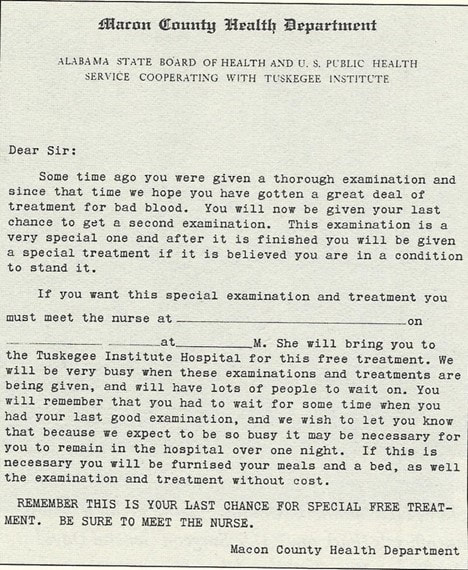 After the group was chosen, the study was mainly confined to frequent visits by nurse Rivers to inquire into how the men’s condition and occasional visits to the clinic to have blood drawn and more spinal taps conducted. However, the PHS also sought to prevent the men from seeking treatment from other sources. For instance, Dr. Vonderlehr met with groups of black doctors in the area asking them to not treat the men. In 1941, the PHS went as far as to provide the draft board with a list of names of men who were to be excluded from Syphilis treatment if they were drafted for World War II.[22] Most damningly, the researchers continued this after penicillin was discovered to be an effective cure for Syphilis and had been successfully used in treatment campaigns across the country.[23] The rest of the PHS researchers’ activity in the interim were geared towards securing bodies for autopsy once the men died. The doctors needed the autopsies to analyze the impact Syphilis had on the men’s bodies, but rural black populations were strongly opposed to this and if the men died at home instead of the Tuskegee hospital, the doctors may not get the body. Thus, the doctors used nurse Rivers to track the men’s movement to ensure the men died at the hospital or persuade their families to assent to autopsy by referring to it as an “operation”. For extra incentive, the doctors also offered to cover the burial costs of the men, which was a major inducement as a dignified burial would have been a major expense to these families.[24] Importantly, the doctors kept their intentions under wraps, with Dr. Vonderlehr noting, "Naturally, it is not my intention to let it be generally known that the main object of the present activities is the bringing of the men to necropsy.”[25] While it may not have been a major impetus to start the project, a profit motive certainly provided justification for its continuation. Perhaps the only actual contribution the study made to science was to serve as a source of Syphilis infected blood. Tests available at the time were notoriously inaccurate, but, because scientists would not know how to culture Syphilis independently in a lab until the 1950s, they required a constant supply of Syphilis infected blood to develop new tests. As part of a broader group of studies known as the Cooperative Clinical Group, samples obtained from the men through continued blood drawing and spinal taps, were supplied to the PHS to develop more sensitive tests. Using these samples, the PHS did manage to develop two more accurate tests, which the PHS then marketed globally making a nice profit.[26] Despite many PHS employees raising ethical concerns over the years, the project was continued until 1972, when a former PHS employee informed a journalist friend who broke the story for the Associated Press. As public outcry grew, the study was swiftly ended in March of 1973. After this, the Department of Health, Education and Welfare (HEW) commissioned an investigation which issued a milquetoast condemnation, which many members of the investigation claimed had been watered down against their will.[27] In 1973, Macon County lawyer, Fred Gray, filed a class-action lawsuit on behalf of the participants of the Tuskegee Study. They eventually settled out of court in 1974 for a fraction of what they had sued for. Each living subject in the experimental group were given $37,500 each, with $15,000 for their heirs, and nearly $1 million in legal fees to Fred Gray which was to be taken from the men’s payments. Those living members of the control group were given less.[28] As for the scientific value of the study, the results were ultimately worthless. During the study 12 men in the control group contracted Syphilis and were simply switched over to the experimental group.[29] Additionally, despite the best efforts of researchers, many of the men did receive some treatment over the years, compromising their untreated status.[30] Ultimately, the cost for this worthless information was at least 16 men who died directly from Syphilis, although the number could possibly be much greater.[31] And, since the men were not notified of their infection, they likely infected others.[32] The legacy of the Tuskegee Syphilis Study is far reaching. It is still often cited as a reason for black Americans’ distrust of the medical profession. And, while the Tuskegee study is well known among black people, it is far from the singular reason for black distrust in modern medicine. It was part of a broader and longer legacy of testing on minorities in the United States and people in the global south. However, one of the most famous accusations against the Tuskegee Study- that doctors deliberately infected black men- is a misconception.[33] The PHS did not purposely infect people at Tuskegee; they did that in Guatemala. Following World War II, it was known that Penicillin could be used as an effective cure for Syphilis and several other diseases, but researchers also wanted to know if penicillin could be used as a prophylaxis against venereal disease. During the war, the military had distributed prophylaxis ointments, but they were painful when used, incentivizing the government to find less painful ways of guarding against venereal disease.[34] Previously, in 1944, the PHS had done experiments on prophylaxis against gonorrhea at the Terre Haute Federal Penitentiary in the U.S. “Volunteers” were injected with gonorrhea, but the project was abandoned after the doctors had trouble getting subjects to exhibit symptoms.[35] After this failure, the PHS set its sites on the global south to answer this question. In 1946 the PHS dispatched Dr. Julius Butler- who had been involved in the Terre Haute experiment and would go on to be involved in the Tuskegee study- to Guatemala to test the possibilities of using penicillin to prevent contraction of venereal disease. At the time, much of Guatemala was owned by the United Fruit Company putting it firmly in the control of the U.S. empire. Additionally, the little public health infrastructure that existed was in large part controlled by the U.S. and the leading venereal disease public health official was the PHS trained Dr. Juan Funes.[36] The PHS again enlisted the most vulnerable populations. Throughout the study, subjects included, prisoners, orphans, patients in Guatemala’s only mental asylum, and soldiers stationed in the capital. They began with inmates at Guatemala City’s Central Penitentiary. At the time, Guatemala had legal prostitution and prostitutes could visit incarcerated men. Using this, the PHS payed prostitutes who had tested positive for Syphilis or Gonorrhea to visit the men in prison. If a prostitute did not have Syphilis, the researchers would place an inoculum on the woman’s cervix, hoping this would transmit the disease. The men were given tests before and after the visits from the prostitutes and were divided into groups to be given various chemical and biological prophylaxis and the results observed. However, unlike the Tuskegee study, subjects were supposed to be given adequate penicillin to cure them.[37] The researchers quickly ran into difficulties, as prostitutes and prisoners proved much harder to control than they had expected, and not enough men were contracting the disease. Also, there was still the problem with the sensitivity of available tests, which frequently gave off false positives and negatives.[38] The researchers quickly abandoned the prison experiment and turned to the national orphanage. They conducted blood tests on 439 children and observed the results, hoping to develop more reliable testing methods.[39] Finally, they turned to the nation’s only mental asylum. Here, because they were not able to introduce prostitutes, the PHS doctors directly inoculated patients by introducing Syphilitic material directly to the genitalia, telling asylum officials this was just another form of drug.[40] Subjects were then given various forms of prophylaxis, and, if the subject became infected, they were supposed to be cured. The PHS combined both methods of infection on soldiers living in Guatemala City’s barracks, using both direct inoculation and prostitutes and, again, providing various forms of prophylaxis to be tested.[41] According to the U.S. Bioethical Issues Commission, in total, 1308 subjects were inoculated with some form of STD, 678 people received treatment, and over 5,000 were included in diagnostic studies. The Guatemalan government puts the total inoculated at 2,082. During the course of the study, 83 subjects died, though it is not clear whether or not these were as a result of inoculations.[42] So, what can we learn from these studies? The most obvious lesson is the role racist and eugenicist theories have played in the history of American medicine. It is important to understand these are not aberrations. Testing on vulnerable people, particularly slaves, has been a common feature of U.S. medicine over the past two centuries- see Marion Sims and the development of modern gynecology. Further, these studies were supported at the highest levels of powerful government institutions, showing how access to political and economic power can shape scientific research. Throughout both these studies, the PHS used both to induce cooperation from smaller institutions such as the Tuskegee Institute and Guatemalan public health officials. Often these institutions leveraged their collaboration in the studies to gain supplies for treatment of people who would not have received treatment otherwise, perfectly illustrating the problems of power imbalances in research. Finally, in the age of Covid, it shows us how unethical medical researchers can prey on the most vulnerable populations, particularly those in the clutches of U.S. imperialism. Citations [1] Washington, Harriet. Medical Apartheid: The Dark History of Medical Experimentation on Black Americans from Colonial Times to the Present, 138. New York City, NY: Broadway Books, 2008. [2] Blake, Lindsay. The Tuskegee Syphilis Study: Medical Research Versus Human Rights. https://augusta.openrepository.com/bitstream/handle/10675.2/577096/Blake_Tuskegee%20Paper.pdf?sequence=1&isAllowed=y [3] Brandt, Allan M. 1978. "Racism and research: The case of the Tuskegee Syphilis study." The Hastings Center Report 8(6): 21-29. [4] Washington, Harriet. Medical Apartheid: The Dark History of Medical Experimentation on Black Americans from Colonial Times to the Present. New York City, NY: Broadway Books, 2008 [5] Ibid, 139 [6] Brandt, Allan M. 1978. "Racism and research: The case of the Tuskegee Syphilis study." The Hastings Center Report 8(6): 21-29. [7] Ibid [8] Washington, Harriet. Medical Apartheid: The Dark History of Medical Experimentation on Black Americans from Colonial Times to the Present, 137. New York City, NY: Broadway Books, 2008 [9] “Foundations of Oppression: The Antebellum South Appalachian Class Dynamic.” libcom.org. Accessed November 10, 2020. https://libcom.org/history/foundations-oppression-antebellum-south-appalachian-class-dynamic. [10] Washington, Harriet. Medical Apartheid: The Dark History of Medical Experimentation on Black Americans from Colonial Times to the Present, 137. New York City, NY: Broadway Books, 2008 [11] Blake, Lindsay. The Tuskegee Syphilis Study: Medical Research Versus Human Rights. https://augusta.openrepository.com/bitstream/handle/10675.2/577096/Blake_Tuskegee%20Paper.pdf?sequence=1&isAllowed=y [12] Ibid [13] Ibid [14] Brandt, Allan M. 1978. "Racism and research: The case of the Tuskegee Syphilis study." The Hastings Center Report 8(6): 21-29. [15] Blake, Lindsay. The Tuskegee Syphilis Study: Medical Research Versus Human Rights. https://augusta.openrepository.com/bitstream/handle/10675.2/577096/Blake_Tuskegee%20Paper.pdf?sequence=1&isAllowed=y [16] Ibid [17] Brandt, Allan M. 1978. "Racism and research: The case of the Tuskegee Syphilis study." The Hastings Center Report 8(6): 21-29. [18] Ibid [19] Reverby, S.M. Ethical Failures and History Lessons: The U.S. Public Health Service Research Studies in Tuskegee and Guatemala. Public Health Rev 34, 13 (2012). https://doi.org/10.1007/BF03391665 [20] Brandt, Allan M. 1978. "Racism and research: The case of the Tuskegee Syphilis study." The Hastings Center Report 8(6): 21-29. [21] “The Experiment.” Tuskegee Syphilis Experiment. Accessed November 11, 2020. https://tuskegeesyphilisexperimentt.weebly.com/the-experiment.html. [22] Ibid [23] Washington, Harriet. Medical Apartheid: The Dark History of Medical Experimentation on Black Americans from Colonial Times to the Present, 144-145. New York City, NY: Broadway Books, 2008 [24] Ibid, 142-143 [25] Brandt, Allan M. 1978. "Racism and research: The case of the Tuskegee Syphilis study." The Hastings Center Report 8(6): 21-29. [26] Washington, Harriet. Medical Apartheid: The Dark History of Medical Experimentation on Black Americans from Colonial Times to the Present, . New York City, NY: Broadway Books, 2008 [27] Roy B. The Tuskegee syphilis experiment: medical ethics, constitutionalism, and property in the body. Harv J Minor Public Health. 1995 Fall-Winter;1(1):11-5. PMID: 11656513. [28] Blake, Lindsay. The Tuskegee Syphilis Study: Medical Research Versus Human Rights. https://augusta.openrepository.com/bitstream/handle/10675.2/577096/Blake_Tuskegee%20Paper.pdf?sequence=1&isAllowed=y [29] Reverby, S.M. Ethical Failures and History Lessons: The U.S. Public Health Service Research Studies in Tuskegee and Guatemala. Public Health Rev 34, 13 (2012). https://doi.org/10.1007/BF03391665 [30] Ibid [31] Ibid [32] Ibid [33] REVERBY, S.M. (2001), More than Fact and Fiction: Cultural Memory and the Tuskegee Syphilis Study. Hastings Center Report, 31: 22-28. https://doi.org/10.2307/3527701 [34] Reverby, S. (2011). “Normal Exposure” and Inoculation Syphilis: A PHS “Tuskegee” Doctor in Guatemala, 1946–1948. Journal of Policy History, 23(1), 6-28. doi:10.1017/S0898030610000291 [35] Reverby, S.M. Ethical Failures and History Lessons: The U.S. Public Health Service Research Studies in Tuskegee and Guatemala. Public Health Rev 34, 13 (2012). https://doi.org/10.1007/BF03391665 [36] Ibid [37] Reverby, S. (2011). “Normal Exposure” and Inoculation Syphilis: A PHS “Tuskegee” Doctor in Guatemala, 1946–1948. Journal of Policy History, 23(1), 6-28. doi:10.1017/S0898030610000291 [38] Ibid [39] Ibid [40] Ibid [41] Ibid [42] Reverby, S.M. Ethical Failures and History Lessons: The U.S. Public Health Service Research Studies in Tuskegee and Guatemala. Public Health Rev 34, 13 (2012). https://doi.org/10.1007/BF03391665 About the Author:
I'm Alex Zambito. I'm born and raised in Savannah, GA. I graduated from the Georgia Institute of Technology in 2017 with a degree in History and Sociology. I am currently seeking a Masters in History at Brooklyn College. My Interest include the history of Socialist experiments and proletarian struggles across the world. 10/28/2020 Venezuela’s Anti-Blockade Law - A Critique of Maduro and the Lies of Western Media: By. Edward Liger SmithRead NowNicolas Maduro and the Venezuelan Constituent Assembly have passed an anti-blockade law in an effort to circumvent crippling sanctions from the United States, and jump start the Venezuelan economy. The law will look to increase foreign trade in Venezuela, which many Venezuelan Socialists now fear will lead to an increase in privatizations, particularly in the oil industry, as well as an increase of foreign capital moving into Venezuela. Voices from the revolutionary left in Venezuela have also expressed concern that the law will lead to less government transparency in business dealings. Hashtag #NoApruebo (I don’t approve) was seen trending on Twitter in Venezuela at one point, as Venezuelans voiced their concerns that the law is a betrayal of Bolivarian Socialist values. President Maduro has argued that the law is necessary in the face of the US economic blockade. The past four years have seen the Trump Administration ramp up sanctions, which began in the 2000s with George Bush, and were escalated further under Obama. The Anti-Blockade law shows how many struggles in Venezuela stem from US sanctions. While the US media portrays Maduro as an evil dictator, destroying his own countries’ economy, and oppressing his own people. In reality, the primary critique of Maduro from the working masses of Venezuela themselves, is his inability to combat US sanctions with the same success as his predecessor Hugo Chavez. The anti-blockade law, and subsequent public response, can reveal much about the current situation in Venezuela. A situation which Western corporate media has consistently lied about, in an effort to manufacture public support for regime change in Venezuela. The public outcry against the anti-blockade law on Venezuelan Twitter reveals that many of the Western media narratives about Venezuela are inaccurate. The nonprofit outlet Human Rights Watch (HWR) claims Venezuela “imposes prison sentences of up to 20 years on those who publish messages of intolerance and hatred in media or social media.”[1] HRW says that the Government aggressively targets those who speak negatively about them. The public outcry against the Anti-Blockade law provides an example of how censorship in Venezuela is largely overblown by Western Media. Valid accusations of police brutality, and Government violence in Venezuela, are always met with loud public outcry from the masses in opposition. There are of course valid critiques of Maduro and the Venezuelan Government, however the reality in Venezuela is far from the totalitarian dictatorship it’s made out to be by outlets like HRW. Many Western Media outlets cite HRW as a source when discussing Venezuela, despite the fact that HRW has faced criticism for having former CIA members, and multinational business executives on their board of directors. Rather than sending journalists to investigate Venezuela, HRW publishes reports from members of the US backed Venezuelan Opposition, who are the minority party in terms of public support. This gives us a glimpse into how lies can be perpetrated on a mass scale in order to sway public opinion in favor of regime change. Even the name Human Rights Watch, gives readers the impression of a non-biased organization reporting on human rights abuses out of concern, when in reality the organization is controlled by corporate executives, and former CIA officials.[2] And most of the so called reporting, is from far right members of the US backed Venezuelan opposition. HRW is just one of many NGOs who feign concern for human rights, while spreading lies, or exaggerations to manufacture support for regime change. The work of HRW is frequently cited by Western media outlets when discussing Venezuela. A survey conducted by Fair.org found that “Zero Percent of Elite Commentators Oppose Regime Change in Venezuela.” [3] This is in the US, who claim the Venezuelan media is one sided and controlled by the Government. It is hard not to see the irony of a country whose media offers no scrutiny to the idea of overthrowing another countries’ leader in favor of a far right alternative, accusing another country of having a corrupt media apparatus. In reality Venezuela has a mixture of state and opposition media, with the privately owned Venivision dominating the Venezuelan TV and News Market.[4] A far cry from the hegemonic US media, who loudly beat the war drums for the US Empire at every turn. While the anti-blockade law provides an opportunity for us to critique Maduro and the PSUV Government, the critique stems from the President’s inability to combat US Imperialism. The people of Venezuela are not calling for their President to be ousted, but rather they are demanding he remain faithful to the ideals of the Bolivarian Revolution. A 2017 poll found that 75% of Venezuelan’s still support Socialism.[5] While Venezuelans have their critiques of Maduro, they ultimately recognize that their economic hardships are mostly being caused by the United States, and the economic blockade. The ultimate irony of the US Venezuela situation is the fact that Venezuela is used in the US as a talking point to argue that “socialism fails every time it’s tried.” Meanwhile, within Venezuela, the masses are critiquing Maduro for not being socialist enough. Arguing Maduro should nationalize more industry, and allow for less privatization of the economy. The economy needs to be diversified, and sectors outside of the oil industry need to be strengthened. Outside of those in the Venezuelan Opposition Party, the people of Venezuela largely want more Socialism, not less. In a recent interview concerning the anti-blockade law Venezuelan Chavista leader Telémaco Figueroa said “Socialism will not happen if we join hands with the bourgeoisie. It is we, the working people, who are called upon to carry out the task of saving humanity”[6] It is clear the working masses of Venezuela remain committed to building socialism, and recognize the enemy in their fight is the imperialist US blockade, and the bourgeois opportunists within their own country. It is vitally important for US leftists to understand the situation in Venezuela. Many who speak out against the blockade within the US are labeled as “dictator defenders,” even by those who see themselves as leftists. However, it is not Nicolas Maduro who those like me are defending. It is folks like Telémaco Figueroa, and the working masses of Venezuela who I choose to defend. Working masses who will loudly critique Maduro when necessary, but who also realize that their struggles originate from the US economic blockade, which is itself a product of capitalism and neoliberalism. I choose to stand with the working masses of Venezuela, and against the criminal economic blockade being imposed by my own country. Those Western leftists calling for regime change should reflect on what it truly means to be anti-imperialist. It is not Maduro who we must stand behind, but rather the working masses of Venezuela. A revolutionary people who remain committed to building socialism while facing pure economic warfare from the US. I stand with the people of Venezuela, and the Bolivarian Revolution as a whole. VIVA LA REVOLUCION!!! Citations. [1] “World Report 2019: Rights Trends in Venezuela.” Human Rights Watch, January 17, 2019. https://www.hrw.org/world-report/2019/country-chapters/venezuela. [2] Bhatt, Keane. “The Hypocrisy of Human Rights Watch.” NACLA, 2013. https://nacla.org/article/hypocrisy-human-rights-watch. [3] Teddy Ostrow, Helga I. Fellay, Ian, Gpcus, Doug Tarnopol, John Wheat Gibson, Wondering Woman, et al. “Zero Percent of Elite Commentators Oppose Regime Change in Venezuela.” FAIR, April 30, 2019. https://fair.org/home/zero-percent-of-elite-commentators-oppose-regime-change-in-venezuela/. [4] Lucas Koerner., Ricardo Vaz Ricardo Vaz is a political analyst and editor at Venezuelanalysis., Doug Latimer, Janice Olson, EL Comandante, Kc, Wondering Woman, , Arkan, and Michel St-Laurent. “There's Far More Diversity in Venezuela's 'Muzzled' Media Than in US Corporate Press.” FAIR, May 20, 2019. https://fair.org/home/theres-far-more-diversity-in-venezuelas-muzzled-media-than-in-us-corporate-press/. [5] Mallett-Outtrim, Ryan. “75% Of Venezuelans Support Socialism: Poll.” Venezuelanalysis.com, August 2, 2019. https://venezuelanalysis.com/news/13251. [6] Venezuelanalysis.com, Cira Pascual Marquina –. “The Controversial Anti-Blockade Law: A Conversation with Telémaco Figueroa.” Venezuelanalysis.com, October 27, 2020. https://venezuelanalysis.com/analysis/15029. About the Author:
My name is Edward and I am from Sauk City, Wisconsin. I received my B.A. in Political Science from Loras College, where I was a former NCAA wrestling All-American, and active wrestling coach. My main interest are in Geopolitics and the role of American imperialism with relation to socialist states, specifically China and Venezuela. I also worked for Bernie Sanders' campaign in 2020. Naomi Klein’s 2007 book The Shock Doctrine: The Rise of Disaster Capitalism details a long history of the United States using times of disaster as an opportunity to push for neoliberal policies. Klein begins her book using Hurricane Katrina as an example. In the aftermath of Katrina, famed free market economist Milton Friedman wrote an op-ed for the Wall Street Journal. Freidman said “Most New Orleans schools are in Ruin… This is a tragedy. It is also an opportunity to radically reform the Education system.”[1] By radically reforming the education system, Freidman of course meant transitioning from Government funded public schools, to privately managed charter schools. Freidman saw that New Orlean’s education system had been completely decimated by the hurricane, and would need to be rebuilt. Friedman urged New Orleans to seize the opportunity and rebuild their school system from scratch with a focus on privately operated schools. The Bush administration heeded Friedman’s advice, and began dumping millions of dollars into the creation of new charter schools in New Orleans. In a matter of 19 months, the school board went from managing 123 Public Schools to 4, the number of Charter schools increased from 7 to 31, and the teacher’s union contract was shredded, leading to forty-seven hundred teachers being fired.[2] The free market advocates had successfully used the chaos created in the wake of a natural disaster to implement neoliberal policies, while framing these policies as the solution to the problems many New Orleans residents were facing. This playbook is what Naomi Klein calls “The Shock Doctrine.” Using chaos in the wake of natural or political disaster as an opportunity to push for neoliberal free market policy. The Covid-19 Pandemic provides another clear example of the shock doctrine, and what Naomi Klein calls in her book “disaster capitalism.” An area of heavy focus in Klein’s book, is the 1973 coup in Chile. The CIA famously allied with Agusto Pinochet’s military government, who overthrew and killed socialist leader Salvador Allende.[3] Pinochet’s government was notoriously brutal. Upon taking power Pinochet ordered the massacre of approximately 20,000 people suspected of being communists. The political murders took place in the Estadio Nacional Julio Martinez Pradones, which is Chile’s official national fútbol stadium. Pinochet’s rapid seize of power, and following acts of political violence, left the Chilean people in a place of fear and chaos. It was at this time, the aforementioned Milton Freidman became chief economic advisor to Agusto Pinochet. In addition, many Freidman trained economists from the Chicago School became advisors to Pinochet. Chile would then be subjected to a series of free market neoliberal economic reforms. All government spending besides military was cut 10%, price controls were lifted, and unlimited foreign imports were now allowed. Additionally, leftists and union activists were hunted and killed by the Pinochet military dictatorship.[4] These policies had a disastrous effect on average Chilean workers. Unemployment hit as high as 30%, while simultaneously corporate profits soared.[5] Katrina shows how the shock doctrine is applied domestically, while Chile provides an example of how the Shock Doctrine playbook is used as a tool of imperialism. Currently the US is using the Covid-19 pandemic as a chance to destabilize Venezuela, as they did Chile years ago. Prior to Pinochet taking power, the US had placed Chile under economic embargo, blocking them from trading with most the world. This same strategy has been used on Venezuela for years, however it has been ramped up to new heights as of late. Venezuela now has 150 economic sanctions placed on their country by the United States.[6] The US has blatantly ramped up sanctions on Venezuela, during a time when the Latin American country is attempting to fight against the Covid-19 pandemic. As the UN and EU call for the US to alleviate sanctions during the pandemic, the Trump administration has instead created new sanctions. Including sanctions imposed on March 12, cracking down on a Russian firm, which was helping to sell Venezuelan oil. Venezuelan expert Jeffery Sachs says “sanctions have weakened both countries’ (Iran and Venezuela) health infrastructure by curtailing access to foreign exchange and the capacity to import key medical inputs”[7] The increase in sanctions follow the shock doctrine playbook closely. The US is attempting to use the Global Pandemic as a tool to achieve the regime change they desperately want. After blocking Venezuela from importing medical supplies, the US can turn and President Maduro, and the Venezuelan Government for people’s suffering. The US backed Venezuelan opposition party, will no doubt parrot this anti Government narrative to struggling Venezuelans. Were the US to be successful in overthrowing the Venezuelan Government, Venezuela would no doubt follow the same path as Chile. Juan Guaidó, or another neoliberal puppet from the Venezuelan opposition party, would take power and immediately implement neoliberal reforms. US sanctions would be lifted, and GDP along with corporate profits would skyrocket, while social programs and unions would be destroyed. Free Market advocates would claim victory, and point to Venezuela’s increased GDP as a success story of capitalism, claiming that the country had been saved from the evils of socialism. These Free Market advocates would never mention the US of sanctions used to starve Venezuela out during a pandemic. This is a playbook the free market advocates have been using for years. The US destabilizes a region using sanctions or other measures, then when a US friendly leader is appointed, the sanctions are relieved, and GDP skyrockets. The Free Market economists then claim victory, as the country in question becomes a source of cheap resources and labour for multi-national corporations. Venezuela sits on 300 billion barrels of oil, the largest oil reserves in the world.[8] Now blocked off from trading with the rest of the world, the oil based economy now has an abundance of commodities to sell, but nobody to sell them too. The government is trying desperately to sell the countries’ oil to anyone who will buy it, in order to properly fund the Venezuelan healthcare infrastructure. Now a pandemic is tearing through the country, and the response from the US has been to increase sanctions and destabilize Venezuela further. This is what Naomi Klein calls Disaster Capitalism. In a world that makes sense, the global community would come together during a pandemic. The resources and productive power of all human beings should be used to help every nation fight this deadly pandemic. Instead the imperialists who rule the world see the pandemic as an opportunity. An opportunity to destabilize enemy nations, and implement neoliberal policy reforms. This reveals the true nature of capitalism. A system which incentivizes only greed, and the acquisition of more commodities. It is a system which creates a psychology among the ruling class, where even in a pandemic which effects the whole of humanity, the system remains focused on profit. Capitalists no longer view Venezuela as a country with millions of regular people living their day to day lives. Venezuela is nothing but a metaphorical gold mine to them. A giant pool of oil that can be extracted and sold at a profit. For the ruling class this Pandemic is not a horrible tragedy, but an excellent business opportunity. If the pandemic can be used as a tool to destabilize Venezuela and allow corporations to access those 300 billion barrels of oil, that is exactly what will happen. Greed takes precedent to human life, and natural disasters are no longer tragedies, but tools for destabilization. This is disaster capitalism, and it is the modern state of human civilization. Citations [1] Friedman, Milton. “The Promise of Vouchers.” The Wall Street Journal. Dow Jones & Company, December 5, 2005. https://www.wsj.com/articles/SB113374845791113764. [2] Klein, Naomi. “Introduction.” Essay. In The Shock Doctrine: the Rise of Disaster Capitalism, 5–5. London: Penguin, 2014. [3] “CIA Cover-Up on Chile.” National Security Archive, August 11, 2017. https://nsarchive.gwu.edu/briefing-book/chile/2016-09-09/cia-cover-chile. [4] The Pinochet Myth. Youtube.com, 2018. https://www.youtube.com/watch?v=gIwJCtboXQA&t=87s. [5] Klein, Naomi. “Introduction.” Essay. In The Shock Doctrine: the Rise of Disaster Capitalism, 5–5. London: Penguin, 2014. [6] Service, Congressional Research. “Venezuela: Overview of US Sancitons.” FAS.org, 2020. https://fas.org/sgp/crs/row/IF10715.pdf. [7] D. Sachs and Francisco Rodriguez – Project Syndicate, Jeffery. “A Pandemic Is No Time for US Economic Sanctions.” Venezuelanalysis.com, July 8, 2020. https://venezuelanalysis.com/analysis/14822. [8] “Top Ten Countries with World's Largest Oil Reserves, from Venezuela to Iraq.” NS Energy, April 5, 2019. https://www.nsenergybusiness.com/features/newstop-ten-countries-with-worlds-largest-oil-reserves-5793487/. In my last essay, I discussed how capitalist hegemons have used their control over food supply to shape rules of international commerce. I also demonstrated how these policies have led to economic shocks and displacement in developing countries, leading to mass migration in search of economic opportunity. I believe this history is essential to understand the migration that has been a focal point of American and European politics in recent years. In this essay, I will attempt to explore the issue of migration in capitalist development, hoping to provide historical context for our current conceptions and policies around immigration. One of Marx and Engels's favorite examples was that of the Irish. Up until the mid-19th century, Irish society was structured around a system of tenant farming with most of the land owned by English and Anglo-Irish families. This landed gentry introduced the potato to Ireland in the mid-1700s as a subsistence crop for the rural poor; by the 1840s it had become the staple crop of Ireland with much of the population nearly completely dependent on the potato for their diet. Thus, when the potato blight hit in 1845, the Irish were left with little to eat, even though they were still exporting various agricultural commodities to England. During and after the famine, the British aristocracy took the opportunity to push small-landholders off their land.[1] As Marx put it, "If any property it ever was true that it was robbery, it is literally true of the property of the British aristocracy. Robbery of Church property, robbery of commons, fraudulous [sic] transformation accompanied by murder, of feudal and patriarchal property into private property."[2] The result was the death of nearly 1 million Irish and the additional emigration of 1 million more. Thousands of these newly-landless Irish, migrated to English cities seeking any form of economic opportunity.[3] As I pointed out in my last essay, this sudden influx of workers allowed British capitalists to supplement their industrial reserve army with an injection of a subordinate group to perform degraded labor, intensifying competition in the labor market and driving down wages. Stoked by members of the bourgeoisie to divide the working class, anti-Irish sentiment spread rapidly across England, with violent attacks against Irish migrants becoming commonplace. This stance is probably best exemplified by Benjamin Disraeli who wrote in 1836: "[The Irish] hate our order, our civilization, our enterprising industry, our pure religion. This wild, reckless, indolent, uncertain and superstitious race have no sympathy with the English character. Their ideal of human felicity is an alternation of clannish broils and coarse idolatry. Their history describes an unbroken circle of bigotry and blood."[4] These same tropes have often been repeated in different ways and we have seen them reappear in modern American political discourse in recent years. Though billed as a "Land of Immigrants" in the modern liberal lexicon, the actual history of migration in America is much more muddied than this simple platitude indicates. As Aziz Rana put it: "Throughout American history, the tension between capitalism and both democratic self-government and economic independence has largely been resolved by native expropriation and/or racialized economic subordination."[5] From its inception the United States has been an experiment in what Rana and others refer to as "settler colonialism". Despite the proclamations of politicians extolling the American virtues of acceptance and equal opportunity, race and class have structured American societies from the earliest days of the Jamestown colony. During the early colonial period, British officials considered America a depository for their “excess” population, i.e. the poor. To encourage this “rubbish” to migrate to the “New World” the British government created a system of land-grants promising fifty acres to those who made the journey. At first, this helped promote equitable land distribution, but, with the establishment of the “headright system” in 1618, land was allotted based on the number of people whose travel expenses a settler paid for, granting fifty additional acres per head. This incentive, mixed with the large expense of the journey, led to the broad use of indentured servitude, with many of the early settlers coming to America via this arrangement.[6] Importantly, the additional land was given whether the servant survived their indenture or not- leading to extremely exploitative labor conditions. Obviously, this system of allocation led to a vastly unequal distribution of land with much of the best land accruing to the wealthy and politically connected. Eventually, most of the small farmers were squeezed out of the market resulting in a mass amount of landless poor who would become “squatters” in peripheral areas clearing land for subsistence farming. As formal British settlements expanded to these peripheral areas, squatters, who held no formal title to the land they cleared, were again pushed off their land repeating the process. Thus, it is no surprise that several founders, such as Thomas Jefferson, Benjamin Franklin, and John Adams, saw western expansion as a necessary safety valve for excess population. This became a major point of contention between the colonists and the British following the acquisition of French territory in North America after the Seven Years’ War.[7] After signing the Treaty of Paris, the British government issued the Royal Proclamation of 1763, forbidding all settlement in territory west of the Appalachian Mountains and designating this area as an “Indian Reserve”.[8] Not only did this limit western expansion, but many also feared having native civilizations so near British settlements. This is reflected in the Declaration of Independence where Jefferson accused England of having “endeavoured [sic] to bring on the Inhabitants of our Frontiers, the merciless Indian Savages, whose known Rule of Warfare, is an undistinguished Destruction of all Ages, Sexes, and Conditions.”[9] This statement is indicative of how the American project was conceived. From the earliest days of colonization American leaders have sought to manipulate the demographics of the growing nation, shaping who would be allotted full citizenship and who would not. With the addition of vast new western territories, via the Northwest Ordinance and the Louisiana Purchase, and the expansion of American industry, the young nation required new sources of immigrant labor to fuel western expansion and development. Thus, many early American capitalists supported broadly open immigration policies, with 33 million immigrants entering the U.S. between 1820 and 1920. Indeed, during much of the 19th century American industry was dependent on foreign labor with first- and second-generation immigrants constituting 57 percent of manufacturing[10] and 64 percent of mining laborers by the 1880s.[11] But before we wax poetic about America’s tradition of acceptance, we need to remember that this openness has always been qualified. As Suzy Lee argues: “Capitalists may prefer the opening of borders to the extent that immigration policy permits large flows of immigrant labor, but they also prefer an immigration system that does not confer many rights to these entrants.”[12] Essentially, business interests want to ensure a constant supply of disenfranchised workers who would then be forced into subordinated forms of labor. Traditionally, this subordinate labor had been supplied by natives, indentured servants, and African slaves; but, with the abolition of these variations of bonded servitude, a new system would need to be devised to serve the same function. In the 1860s, the federal government created the “United States Emigrant Office” to promote immigration and legalized the use of contract migration which was ultimately very similar to indentured servitude.[13] These policies were designed to attract migrants from Europe and Asia to work in eastern factories or, as was most common for the Chinese, to develop the west.[14] Between the years 1849 and 1880 the population of Chinese immigrants in the U.S. had grown from 650 to over 300,000.[15] Of course, this massive influx of Chinese people was accompanied by laws intended to ensure their status as a subordinated group, such as placing exorbitant taxes on foreign-born miners.[16] Importantly, Chinese immigrants were excluded from the Naturalization Act of 1870 which only extended citizenship rights to formerly enslaved black people, which also allowed many Western states to pass Alien Land Laws prohibiting “aliens ineligible for citizenship” from acquiring land.[17] Further, we see the U.S. system of deportation emerge with the passage of the Paige Act in 1875, which mainly targeted Asian women for deportation. This Nativist backlash to Chinese immigration was more direct in the Chinese Exclusion Act passed in 1882, which placed a ten-year moratorium on all Chinese labor immigration and forbade any state from extending citizenship to Chinese resident aliens. Ten-years later, the Geary Act passed extending Chinese exclusion as well as requiring Chinese people to register and obtain a certificate of residence, without which they would be subject to deportation. The Geary Act was made permanent in 1902 and shaped immigration policy for the early decades of the 20th century.[18] The anti-Chinese sentiment of the time is reflected in Justice Harlan’s much celebrated dissent in the Supreme Court Case, Plessy v. Ferguson, where the justice proclaims: “There is a race so different from our own that we do not permit those belonging to it to become citizens of the United States. Persons belonging to it are, with few exceptions, absolutely excluded from our country. I allude to the Chinese race.”[19] Here we also see a notable shift in government policy towards “closing the gates”, made possible by the scarcity of remaining unsettled western land and growing mechanization in American industry, producing a domestic labor surplus and decreasing demand for immigrant labor. This change in policy was consolidated by the Quota Acts of the 1920s establishing a racialized quota system meant to favor immigration from European nations as well as creating systems of visas and deportation. However, certain industries, such as agriculture in western states, still depended on immigrant labor, leading Congress to exclude immigration from Mexican and other Latin American countries from the Quota Acts. These restrictions on immigration and the severity of enforcement would fluctuate depending on the labor needs of business. As Aziz Rana summarizes: “Most of the 20th century is state and corporate actors keeping the border fluid to ensure pliable labor supply from Mexico, then subjecting them to extreme forms of coercive violence in the U.S. when businesses view their labor as unnecessary.”[20] In the 1950s, the Immigration and Naturalization Service (INS, precursor to ICE), campaigned to shift Mexican immigration flows away from unauthorized migration into formal channels such as the Bracero guest-worker program. This also provides us another example of early deportation systems, with the INS’s Operation Wetback, which involved the mass detainment of undocumented immigrants and immediately placing them in the formal guest-worker program.[21] The Bracero program, along with racial quotas and western-hemisphere exclusion were ended in the 1960s after a mass movement of organized labor and insurgent farmworkers successfully pressured policymakers. This temporarily weakened companies dependent on immigrant labor, but, eventually, this was compensated for by a reversion of immigration flows into undocumented channels, accompanied by the explosion of “undocumented” status for Mexican immigrants.[22] In the decades since the 1960s, Congress has passed various legislation attempting to increase border security and restrict unauthorized immigration to no avail. Border enforcement only captures approximately one-third of migrants attempting to cross and those who are not captured are more likely to remain instead of migrating seasonally. The result is an estimated population of 11 million undocumented immigrants residing in the U.S. effectively serving as a guest-worker program. To understand this shift in immigration policy we must also analyze the structure and effects of the neoliberal global order which has developed in recent decades. Aziz Rana describes it as: “The story about the profound global iniquities hard written into the international order, from which the U.S. gains the most benefit. The U.S. has constructed international legal arrangements that allows its capital to flow anywhere, while controlling immigration.”[23] As I described in my last essay, developed western nations, through control of food supply and global organizations such as the IMF and WTO, forced developing nations to undergo a process of economic restructuring, opening domestic markets to foreign commodities and investment. Thus, neoliberal policies, by destroying domestic industries and displacing mass amounts of people, have ensured an overwhelming surplus population used as a source of cheap labor. This is made possible by the concentration of capital into fewer, larger, transnational companies who can use this cheap labor to outsource parts of the production process to developing nations, leading to the “configuration of enclave economies operating as appendages in global commodity chains.”[24] Currently, between 55 and 66 million people in the southern hemisphere work in these types of enclaves. Corresponding with these neoliberal reforms in developing nations has been the restructuring of industrial relations in developed countries weakening labor-rights and expanding employer control. For companies this has meant greater discretion in wage determination, work organization, and decisions over hiring-and-firing. For the working class this has meant decreased job security, intensification of work, and stagnation of wages. In broader economic terms it has meant the expansion of differentiation and precarious employment in the global division of labor, devaluing the cost of labor and lowering wages. Precarious employment “is a type of employment that is unstable, insecure, and revocable.”[25] Currently, in the United States the percentage of workers employed part-time and under non-standard labor relations were around 17% and 10%, respectively, with over 1.5 billion people globally work in conditions of vulnerability.[26] These forms of employment are normally characterized by low pay, insufficient social benefits, and lack of legal labor protections, with this mass of insecure workers serving a similar function to Marx’s “Industrial Reserve Army”.[27] It is, therefore, no surprise that an increasing number of Americans report feeling insecure in their jobs.[28] And as many immigration scholars have pointed out, immigrants are the ultimate precarious workers, and, with the mass displacement neoliberal policies have wrought in developing nations, millions of workers have begun migrating to developed nations for economic opportunity. Though immigrant workers are technically entitled to the same labor protections as native workers, their ability to exercise these rights is contingent on permission to be present in the country. This is obvious in the case of undocumented immigrants, but even many authorized migrant workers are vulnerable to having their “legal” status changed to “illegal” if their employer sponsorship is revoked, making migrant groups ripe for exploitation.[29] These various aspects of the neoliberal world order have combined to cause the growth of job-insecurity and wage stagnation in developed nations, along with the mass exploitation of migrant workers and workers in developing nations. With this background in mind, how should we on the left respond to the growing nativist sentiment in American political discourse? First, we need to recognize the two dimensions of immigration policy as restrictions on migrant flows and the labor rights of those migrants. Second, we must acknowledge that these two dimensions cannot be fully separated and have a dialectical relationship. As we have seen, certain sectors of American industry (i.e. agriculture and service industry) are still dependent on securing flows of migrant workers, but they are also interested in restricting immigrant access to labor rights. It has therefore been tempting for many American politicians to focus on increasing rights of immigrants, while simultaneously supporting current restrictions on immigration. But, as I discussed above, access to these rights is contingent on permission to reside within the country. Further, as attempts at restricting immigration and expanding border security over recent decades have proven ineffective, even many of the industries dependent on immigrant labor, have become less resistant to migration controls. As it turns out, massive investments in militarized border security, broad deportation apparatuses, and detention facilities, may not do much to prevent or deter undocumented immigration, but they are effective at subjecting migrant workers to extreme forms of violence making them less likely to join in labor organizing. This shows that if we want to improve immigrant rights, we must also seek to deconstruct the national apparatus of immigration control and detention. This would allow migrant workers to exercise their labor rights and provide labor organizations with a mass of potential new members. This is significant because studies have shown immigrant workers are more likely to join unions than native workers and immigrants often work in the most vulnerable industries who cannot easily outsource labor.[30] In summation, I believe leftist policy should focus on promoting awareness of the neoliberal roots of the deteriorating living standards and working conditions experienced by the working-class over recent decades. This includes teaching the history of rising wages, strong job protections, and better working conditions resulting from labor organizing, and the way these benefits have been eroded by an assault on unions by employers and the government. Further, it must include opening borders and organizing workers in vulnerable industries. But most importantly, it will require solidarity with migrant workers, recognizing them as an asset rather than a problem. Citations [1] History.com Editors. Irish Potato Famine. 17 Oct. 2017, www.history.com/topics/immigration/irish-potato-famine. [2] Marx, "The Duchess of Sutherland and Slavery," New York Daily Tribune, February 9, 1853. [3] MOKYR, JOEL, and CORMAC Ó GRADA. “What Do People Die of during Famines: the Great Irish Famine in Comparative Perspective.” European Review of Economic History, vol. 6, no. 3, 2002, pp. 339–363. JSTOR, www.jstor.org/stable/41377928. Accessed 15 Sept. 2020. [4] Benjamin Disraeli, Letter to The Times [Q.d.], www.ricorso.net/rx/library/criticism/guest/Disraeli_B.htm. [5] Denvir, Daniel, and Aziz Rana. “Rethinking Migration with Aziz Rana.” 2019. [6] Isenberg, Nancy. “Taking out the Trash: Waste People in the New World.” Essay. In White Trash, 17–42. Penguin USA, 2017. [7] Isenberg, Nancy. “Andrew Jackson's Cracker Country: The Squatter as Common Man.” Essay. In White Trash, 105–32. Penguin USA, 2017. [8]“Royal Proclamation, 1763.” Accessed September 15, 2020. https://indigenousfoundations.arts.ubc.ca/royal_proclamation_1763/. [9] Thomas Jefferson, et al, July 4, Copy of Declaration of Independence. -07-04, 1776. Manuscript/Mixed Material. https://www.loc.gov/item/mtjbib000159/. [10] Charles Hirschman and Elizabeth Mogford, "Immigration and the American Industrial Revolution From 1880 to 1920," Social Science Research 38, no. 4 (2009): 897-920. [11] Sukkoo Kim, "Immigration, Industrial Revolution and Urban Growth in the United States, 1820-1920: Factor Endowments, Technology, and Geography," National Bureau of Economic Research Working Paper No. 12900 (2007). [12] Lee, Suzy, “The Case for Open Borders.” Accessed September 15, 2020. https://catalyst-journal.com/vol2/no4/the-case-for-open-borders. [13] Ibid. [14] Denvir, Daniel, and Aziz Rana. “Rethinking Migration with Aziz Rana.” 2019. [15] Learning, Lumen. “US History II (OS Collection).” Accessed September 15, 2020. https://courses.lumenlearning.com/suny-ushistory2os2xmaster/chapter/the-impact-of-expansion-on-chinese-immigrants-and-hispanic-citizens/. [16] “Foreign Miner's License · HERB: Resources for Teachers.” Accessed September 15, 2020. https://herb.ashp.cuny.edu/items/show/1714. [17] Rana, Aziz, "Settlers and Immigrants in the Formation of American Law" (2011). Cornell Law Faculty Publications. Paper 1075. http://scholarship.law.cornell.edu/facpub/1075 [18] An act to execute certain treaty stipulations relating to the Chinese, May 6, 1882; Enrolled Acts and Resolutions of Congress, 1789-1996; General Records of the United States Government; Record Group 11; National Archives. [19] Chin, Gabriel J. “The Great Dissenter Had Limits,” October 23, 2018. https://www.baltimoresun.com/news/bs-xpm-1996-05-12-1996133020-story.html. [20] Denvir, Daniel, and Aziz Rana. “Rethinking Migration with Aziz Rana.” 2019. [21] Heer, Jeet. “Operation Wetback Revisited,” April 25, 2016. https://newrepublic.com/article/132988/operation-wetback-revisited. [22] Kitty Calavita, Inside the State: The Bracero Program, Immigration, and the I.N.S. [23] Denvir, Daniel, and Aziz Rana. “Rethinking Migration with Aziz Rana.” 2019. [24]Wise, Raul Delgado, and Humberto Marquez Covarrubias. “Strategic Dimensions of Neoliberal Globalization: The Exporting of Labor Force and Unequal Exchange.” Advances in Applied Sociology 02, no. 02 (2012): 127–34. https://doi.org/10.4236/aasoci.2012.22017. [25] Loren Balhorn Oliver Nachtwey, Loren Balhorn, Oliver Nachtwey, Editors, Nicole Aschoff, Faris Giacaman, Daniel Kinderman, Umair Javed, Loren Balhorn Oliver Nachtwey, and Suzy Lee. “Berlin Is Not (Yet) Weimar.” Accessed September 15, 2020. https://catalyst-journal.com/vol2/no4/berlin-is-not-yet-weimar. [26] Kalleberg, Arne. “The Social Contract in an Era of Precarious Work,” 2012. https://inequality.stanford.edu/sites/default/files/media/_media/pdf/pathways/fall_2012/Pathways_Fall_2012%20_Kalleberg.pdf. [27] Ibid [28] Ibid [29] Lee, Suzy, “The Case for Open Borders.” Accessed September 15, 2020. https://catalyst-journal.com/vol2/no4/the-case-for-open-borders. [30] “Farm Labor.” Accessed September 15, 2020. https://www.ers.usda.gov/topics/farm-economy/farm-labor/. 9/11/2020 Neo-Colonialism in Venezuela and its Coverage in Western Media. By: Edward Liger SmithRead NowAny politically active individual in the United States advocating for Socialism has likely heard the argument “what about Venezuela?.” In 1998, Venezuela elected President Hugo Chavez of the United Socialist Party of Venezuela, and are currently led by President Nicolàs Maduro of the same party. Beginning around 2012 Venezuela began experiencing economic slowdowns which have worsened since that time. The country is currently experiencing what Economists refer to as stagflation, meaning high inflation combined with high unemployment. Reports now show the Venezuelan citizenry are experiencing food and medical shortages creating a humanitarian crisis in the country. In 2018, the Organization of American States (OAS) concluded that the Venezuelan elections were fraudulent, and had been illegally influenced by Maduro in order to maintain his position as President. These elections were used as justification for The United States, Britain, German, France, and many other Western powers to support a 2019 coup attempting to install Venezuelan opposition leader Juan Guaido as President. The coup failed, however, and Maduro remains in power. Despite the failed attempt, the aforementioned Western countries, as well as some right wing Latin American Governments, such as Jair Bolsonaro’s Brazil, now recognize Guaido as the rightful President of Venezuela. The vast majority of Western Media have concluded that Maduro and his socialist policies are to blame for Venezuela’s Political and Economic turmoil. Corporately owned Western outlets, such as the Washington Post, blame nationalization of industry and irresponsible government spending for Venezuela’s economic collapse. This narrative often fails to include any information about the economic sanctions imposed on Venezuela or their effect on the Venezuelan citizenry. These sanctions, which began under Bush in 2005, have only increased under both the Obama and Trump administrations; the Congressional Research Service reports 144 different sanctions imposed by the United States on Venezuela(FAS). The timing of these sanctions seems to coincide with the Venezuelan economic slowdowns that have led to the current humanitarian crisis. To understand what is happening in Venezuela it is essential to consider the impacts of both the US sanctions as well as mistakes made by the Socialist Party. This essay will attempt to answer the seemingly simple question “What about Venezuela?”. Looking at all factors involved including sanctions, CIA intervention, and Venezuelan Government policies. This essay will also analyze the hegemonic Western media narrative about Venezuela and the financial motivations which exist for the media to encourage regime change in the country. Since 1912, Venezuela has been an economy based on exporting oil. To this day, the entire economy and standard of living for people in Venezuela is dependent on how the oil industry is being managed. The vast amounts of oil underneath the country was a metaphorical gold mine for Royal Dutch Shell, and Rockefeller Standard Oil in the early 1900’s. In 1936, Venezuela began to take control of their oil industry while cutting out foreign companies, attempting to “Sow the Oil”. This plan aimed to take oil revenue and use it to invest in other industries and social programs, diversifying and modernizing the Venezuelan Economy. By 1976 Carlos Andres Perez fully nationalized Venezuelan oil with a goal of redistributing more of the wealth it created to workers. Although the Perez administration would take a turn towards neoliberal policy, allowing multi-national corporations to share in Venezuelan oil riches. This lead to a poverty rate of over 50% and two attempted coups by Hugo Chavez. Perez would eventually be convicted by the Venezuelan Supreme court of embezzlement. The Venezuelan economy has always been somewhat of a roller coaster. When global oil prices are up, so is the Venezuelan economy and vice versa. In 1998, Hugo Chavez was elected in Venezuela and began visiting every country, especially those membered with The Organization of the Petroleum Exporting Countries (OPEC), urging them to set a quota on oil production. This quota was meant to keep production of oil low enough so that prices remained higher and more stable. Chavez’s efforts were successful as oil prices rose to their highest levels since 1985. Chavez also “renationalized” the Venezuelan oil company PDVSA which he argued was acting independently of the state, becoming its own entity which prioritized their own profit over the betterment of Venezuela. Since 1912 the Venezuelan economy has been tied to oil and has found itself in a constant struggle to keep global oil prices high, to diversify their economy, and to remove possibilities of foreign companies profiting from their oil reserves. This history is vitally important for understanding the current economic and political situation in the country. The main flaw in the Venezuelan Economy is that it is not adequately diversified. Since the early 1900’s, the country has been completely dependent on oil which has led to multiple negative side effects. Economists have prescribed Venezuela with Dutch Disease, meaning the country’s oil industry has become disproportionately large, and other industries have suffered as a result. This Dutch Disease phenomenon was first seen in Holland in the 1970s when the country discovered oil. Essentially, as the oil market of a company becomes strong, that country’s currency is strengthened globally as a result of the new revenue. This makes it more expensive for other industries to export their goods, as the costs for goods has now increased due to the spike in oil revenue. A journal entitled Sowing the Oil states, “The discovery of oil and the conversion to a petro-economy caused an influx of foreign exchange in the country, making food imports cheaper than domestic production and a resultant massive rural exodus.” (Clark). A main goal of Venezuelan Government since 1999 has been to combat Dutch Disease by creating food sovereignty in the country. The plan has been to use the money brought in through oil exports to create state run farms allowing more domestic food production. Overall, these policies had success lowering poverty from 49% to 26% between 2000 and 2010. Along with this, malnutrition became almost nonexistent in Venezuela, raising average calorie consumption from 91% of recommended levels to 101.6%. (Weisbrot). Additional successes include the Mission Robinson program which taught 1.5 new Venezuelans to read and write, prompting UNESCO to declare in 2005 that Venezuela had abolished illiteracy. Infant mortality in Venezuela dropped by 49% from 1999 to 2010. 700,000 new homes have been built to combat homelessness. (Lamrani). In order to implement these policies, Chavez, and Maduro after him, needed to maintain control of the Venezuelan oil company, PDVSA. Prior to his election, Chavez felt that PDVSA was functioning as a State within the State. In order to enact the policies of food sovereignty, Chavez fired many directors of the PDVSA and strengthened state control over the oil company. This allowed for the Government to use oil profits as they see fit. This meant more focus on endogenous development, meaning the country could use the revenue from imports to increase equity and human development. The goals of the Venezuelan government have always been at odds with those of the United States. Venezuela is run by a Socialist party which has nationalized their oil using the revenues to increase social programs and domestic food growth. The United States on the other hand, promotes capitalism and the autonomy for private entities to make decisions that are based on what is in their financial best interest. This philosophical clash has created a situation where the more the Venezuelan state gains control over their oil, the less profit there is to be made for private fossil fuel companies. Citgo is the only US Company which remains in Venezuela, and it is forced to make large payments to the Venezuelan State in order to remain. This could be the motivation behind the strong sanctions which the US has imposed on Venezuela since Chavez was elected. As Venezuelan oil sovereignty has increased so have the sanctions from the United States. The conflict between the two countries peaked in 2018 when Juan Guaido and the US backed opposition party attempted a coup on the Maduro. The United States has now escalated their position from imposing economic sanctions to outright refusing to recognize Maduro as the sitting President. The United States Government has become closely linked to private oil companies within the country. This has led the United States to impose economic warfare on Venezuela in the form of sanctions, mostly on Venezuelan oil. In addition, the US has maximized global oil production in countries such as Saudi Arabia, which keeps private profits high and the price per barrel of oil low. This economic warfare has become more visible during the Trump administration, whose members speak openly about meeting with oil executives to kneecap the Venezuelan economy. The sole remaining US Company in Venezuela is Citgo, which maintains refineries in both the US and Venezuela. The Citgo refineries in Venezuela are owned by the PDVSA, meaning most of their profits go to the Venezuelan Government. In 2019 Trump and former National Security Advisor, John Bolton, attempted to halt this cash flow. The Washington Post reports “The administration’s new sanctions order the company to divert its payments for Venezuelan crude into a US bank account that Maduro would be unable to access.” (Mufson). Bolton also told the post he had a “very productive meeting with three Citgo executives.” This meeting between the US government and the oil executives is a perfect microcosm of what US economic policy has been in Venezuela. The US state and oil executives have become so closely tied that the National Security Advisor openly admits urging Citgo to divert money created by Venezuelan labor into a US bank account. While some might define this action as theft, the Post article written by Steven Mufson is clearly supportive of this new sanction. The article calls Citgo “the last remaining crown jewel of Venezuela’s failing economy.” The article later states, “only Citgo has provided cash that Maduro has used to ensure the loyalty of his supporters.” Referring to Venezuelan social programs as “payments to ensure loyalty”. Furthering the idea that Maduro is a corrupt dictator only concerned with furthering his own power. The article goes on to praise Citgo who saw economic gains after sanctions allowed them to simply take the oil revenue for themselves rather than paying it to the State where it was produced. This reporting from one of the largest and most respected media outlets in the US has a clear bias towards private business. The article fails to explore how these new sanctions affect the Venezuelan people. Simultaneously, the author accuses the Venezuelan Government of corruption while not questioning whether it is ethical for a US secretary of foreign affairs to meet with top oil executives at a private fossil fuel company. This narrative is perpetrated by almost every news source in the country and provides a hegemonic narrative with a one sided view about the crisis in Venezuela that completely absolves the US of any blame. The justification given for the sanctions and attempted coup in Venezuela in the narrative popular with the US media is that Maduro is an authoritarian dictator who needs be removed. The United States rejected Venezuela’s electoral process in 2018, arguing that the election was undemocratic and had been altered by Maduro. Maduro received 68% of the vote in 2018, US media reported low voter turnout and irregularities in the voting schedule as evidence that the elections were fraudulent. Many academics have questioned the claims of illegitimate elections as Venezuela is known for their clean and fair elections. A report on the 2018 Venezuelan elections and subsequent media coverage said “The supposed dictatorial Venezuelan Government pleaded with the UN to send as many observers as possible. Elections in Venezuela are already probably the most heavily monitored around the world. Successive reports from hostile sources such as the European Union and Carter Center have strongly praised the election system” (McLeod). The organization CEELA comprised of Latin American election officials, many from countries hostile to Venezuela, praised the 2018 elections for their scrutiny. CEELA President Nicanor Moscoso said “We can emphasize that these elections must be recognized because they are the result of the will of the Venezuelan people.” Despite these reports, the US and many other countries refuse to recognize Maduro as President. Another reason given for the need to overthrow Maduro is that he has cracked down on any dissent in Venezuela, even torturing those who dare to oppose the Venezuelan Government. The organization “Human Rights Watch” has been one of the main perpetrators of this narrative. In 2017 they published a report entitled Crackdown on Dissent. Brutality, Torture, and Political Persecution in Venezuela. In this article, Human Rights Watch reports between April and September of 2018. “88 cases involving at least 314 people who were victims of serious human rights violations” (Vivanco). It is unclear how Human Rights Watch received this information. However, what is known is the organization wants increased international pressure on Venezuela. The article concludes with a ‘recommendation’ paragraph which reads “To ensure accountability for and deter the repetition of human rights abuses documented in this report, it is critically important to redouble international pressure on the Venezuelan Government.” Human Rights Watch is heavily funded by billionaire Capitalist George Soros who in 2010 pledged to give $100 million to the organization over 10 years (Pilkington). Along with this pledge, in 2020 the group was caught taking a $470,000 donation from Saudi Arabian real estate magnate Mohamed Bin Issa Al Jaber under the stipulation that the money could not be used to support LGBTQ advocacy (Emmons). In addition, Human Rights Watch has also come under fire for a revolving door on their board for US government members including NATO secretary, Javier Solana, Colombian ambassador, Myles Frechette, and CIA analyst, Miguel Diaz (Democracy Now). This revolving door allows Human Rights Watch to act as a mouthpiece for the US Government and the interests of their donors. The organization has been one of the strongest advocates for regime change in Venezuela. Their claims about Maduro and calls for regime change need to be looked at with scrutiny and conflicts of interests need to be addressed. Another one of the most powerful voices for regime change in Venezuela has come from the Atlantic Council, a multimillion dollar think tank in Washington DC. In 2017 the Atlantic Council published a research report on their Economic Sanctions Initiative, which in their own words is meant to “build a platform for dialogue between the public and the private sector to investigate how to improve the design and implementation of economic sanctions. The initiative has a focus that goes beyond a purely national security perspective on sanctions to bridge the gap with the broader business perspective” (Forrer). This publicly available statement from the Atlantic Council helps to reveal what exactly is motivating these economic sanctions. The group openly admits that they are attempting to create a partnership between the public and private sectors. In other words, allowing private capital to use the state as a tool to create better business opportunities abroad. The Atlantic Council’s board of directors is a who’s who of powerful U.S. businessmen, including Council Chairman, John F.W. Rogers, who also resides as an executive officer of Goldman Sachs. (Goldman Sachs). Chairman of the Atlantic Council International advisory board is former US treasury secretary, David McCormick, who is also the CEO of Bridgewater Associates, the self-proclaimed “world’s largest hedge fund” (Bridgewater). It’s far from a conspiracy theory to say that private business interests influence sanctions imposed by the United State Government. The Atlantic Council has close ties to both the state and private business, and as can be seen with David McCormick, often acts as a revolving door between the two groups. This relationship has allowed The Atlantic Council to have great influence over US economic policy dating all the way back to 2006 when their report on the global oil markets targeted Venezuela as a “major energy producer” who had “re-nationalized their oil assets”. The Atlantic Council goes on to say, “it was seen as an increasing challenge to U.S. dominance in global energy and political affairs” (Atlantic Council 2006). Rarely mentioned in the Atlantic Council briefings are concerns about human rights or fear of authoritarian power grabs by the Venezuelan Government. Those encouraging and crafting the sanctions seem to be primarily concerned with global oil markets rather than providing humanitarian aid. Despite the United States public “commitment of humanitarian support for Venezuelan people” (US Treasury). A report done in 2019 by economist, Jeffery Sachs, linked 40,000 Venezuelan deaths as a direct result of US sanctions since 2017. (Sachs). Sachs makes the argument that the economic collapse in Venezuela is being purposefully orchestrated by the U.S. Government. The Trump administration has had the goal of regime change in Venezuela since 2017, when Trump initiated the idea to advisors of a full on military intervention in Venezuela, and even saying publicly in 2017 “we have many options for Venezuela, and by the way I’m not going to rule out a military option” (Merica). After being met with pushback from those within his administration as well as many Latin American allies, Trump instead has opted to metaphorically strangle the Venezuelan economy through sanctions. The goal being to create more instability in the region, making it easier to instill a puppet President in Gauido who will hand the PDVSA over to U.S. Business interests. Sachs argues that in 2017, a new batch of U.S. sanctions prevented the PDVSA from accessing global oil markets, and prevented the company from restructuring its loans. The report finds that these sanctions are what triggered the hyperinflation Venezuela has experienced since 2017. After these sanctions were implemented oil revenue plummeted. As was mentioned earlier, the Venezuelan economy hinges entirely on the success of its oil revenue. As a result of decreased income, funding for medicine, food, and social welfare programs plummeted along with oil revenue. We also know that since 2017, the U.S. has directly intercepted money from Citgo which is supposed to be paid to the Venezuelan Government. John Bolton boasted about this fact when he was still with the Trump administration in 2019. (Mufson). Jeffery Sachs is clear that the numbers in his report are rough estimates based off what has been studied in Venezuelan universities. While nobody can know the exact death toll, Sachs says that we need to look at the clear fact that U.S. policy has created and exacerbated the Venezuelan economic crisis in order to destabilize the region and create regime change. May 2020 saw the first coup attempt in Latin America in years. Two former Green Beret’s attempted to enter Venezuela through Macuto Port. It was later discovered that their plan was to travel to Caracas and simply take out Nicolas Maduro. The attempted coup was organized by the company Silvercorp, a company known for supplying bodyguards, who thought they should try their hand in mercenary work. The two men attempting the coup were captured by Venezuelan fisherman before they ever reached land in Venezuela. They have since been sentenced with up to 20 years in prison for the failed coup attempt. The US of course denied involvement with the coup, despite the fact that they placed a multi-million dollar bounty on Maduro’s head for supposed drug trafficking. It is highly likely that the Silvercorp mercenaries were hoping to capitalize on that bounty. This incident demonstrates how deeply anti-Venezuelan propaganda has penetrated the US public consciousness. The US Government, and private media, have manufactured a culture in the US where people are willing to sacrifice 20 years in a Venezuelan prison, for an ill-fated attempt to take down the Venezuelan president, and also make some quick money. The mercenaries believed they would be welcomed as liberators, freeing the Venezuelan people from their tyrannical dictatorship. What they found in reality were simple fisherman, who remained loyal to the Venezuelan Government, and were willing to risk their lives to expel US imperialists. No situation illustrates US-Venezuela relations better than the Silvercorp coup of 2020. Another factor that can’t be overlooked is Venezuela’s relationship to the International Monetary Fund (IMF). Maduro referred to the IMF in 2020 as “bloodsucking assassins” as well as a “tool of U.S. imperialism” (Emersberger). As the Covid-19 pandemic has swept across the globe, the IMF has provided some legitimacy to Maduro’s claims. Being a country already struggling to fund its healthcare services, the Venezuelan people are at high risk for being killed by the virus (Reeves). To help keep hospitals running as they are flooded with covid-19 patients, Maduro requested a loan of $5 million from the IMF. The IMF has rejected the request claiming that there is no certainty whether the International Community recognizes Maduro or not. This action comes even though 105 countries voted at the United Nations assembly for Maduro to be included into the human rights council, with only 50 countries voting against. In addition to this, the IMF immediately offered loans to the opposition party who removed Hugo Chavez from office for a full 47 hours via coup in 2002. (Emersberger). The IMF has a long history of assisting with U.S. foreign policy interests and global business interests alike. Although the original goal of the IMF was to prevent global economic crises, it has come under fire for acting as a tool of imperialism, especially at the behest of the United States. The Organization’s headquarters are stationed in Washington D.C. and the U.S. has the most votes on IMF decisions, and is the only country with the power to veto any actions voted on by the rest of the IMF council (Rivera). Those who sit on the IMF council are not elected democratically but are appointed by the United States and Europe (Hickel). Given the amount of U.S. control over the IMF it should be no surprise that the organization rejected Venezuela’s request for a loan. This situation highlights the hypocrisy of the claim that the United States is concerned with humanitarian issues in Venezuela. In a global panic surrounding the Corona Virus, the IMF is refusing to fund the failing Venezuelan hospitals. The US focus seems to be on further destabilizing Venezuela by refusing their request for life saving loans, while placing the blame on the Venezuelan Government by claiming it’s unclear who their leader is. The statement from the IMF on Corona Virus says they currently have $1 trillion prepared, which it will use to “shield effected people and firms with large, timely, targeted fiscal and financial sector measures.” (Georgieva). Keeping the Venezuelan hospitals afloat would appear to be a worthy goal for an organization like the IMF tasked with keeping an eye on the global economy. The refusal to bail out the Venezuelan hospitals is evidence that the IMF acts as a tool of U.S. foreign policy interest rather than an organization entirely focused on the public good. Continuing with the topic of Corona virus, an analysis of the US response to covid-19 in relation to Venezuela can also help to reveal their intentions in the region. As the pandemic has swept across the entire world, severely hindering the global economy, the US justice department has charged Maduro for being an illegal drug trafficker. The hope being that the global pandemic offers a prime opportunity for regime change in Venezuela. An article published by the New York Times in late March titled “U.S. Counts on Global Crises to Press Again for Power Shift in Venezuela” (Jakes). The US offered to relieve some of the harsh sanctions on Venezuela during the pandemic, so long as Maduro relinquishes power to opposition leader Juan Guaido. The Times article fails to give an overview of the sanctions, or the Venezuelan situation, and only features interviews from high ranking US officials. One of these being Elliot Abrams, a diplomat who made a name for himself in the Reagan administration. The Times article asked Abrams about the Pandemic, and the recent crash of global oil prices with him saying “If any good can come out of those, maybe it is the combination of pressures on the regime that leads them to negotiate seriously.” This statement reveals the brutality of US foreign policy in Venezuela, and the dedication to regime change in the country. At a time when citizens in both the US and Venezuela are suffering from a pandemic, the goal of the government remains fixed on regime change. Venezuela remains desperate for funds to keep their hospitals running. A true humanitarian approach to Venezuela would be to relieve sanctions, and supply them with the loan to keep hospitals running. Instead the US looks to capitalize on the pandemic by destabilizing Venezuela further, and withholding aid until Maduro steps down. The pandemic reveals that the goal of the US in Venezuela has less to do with human rights, and everything to do with regime change. Another common accusation hurled at the Venezuelan government is the censorship of independent media. A Times article from 2019 said of Venezuelan media “Most television is state-run, and authorities ban the few independent TV and radio stations from covering Venezuela’s crisis as it unfolds.” (Nugent). This statement is simply false as the last study conducted on Venezuelan media in 2013 found that of the three major media outlets in Venezuela only 25% of the public watches the state run VTV. The most popular news outlet is Venevision which is independently owned by billionaire Gustavo Cisneros, with 36% viewership. In addition to this are the privately owned Televen, and Globovision who account for a combined 37% of viewership. (Mccoy). The Time article is either ignorant to these statistics, or the author is choosing to lie purposefully in order to further encourage regime change. The cries of censorship from the US appear hypocritical when analyzing the Venezuelan media in comparison with the Hegemonic US corporate media. In 2019 a survey from FAIR found “no voices in elite corporate media that opposed regime change” (Ostrow). When it comes to regime change in any country it is difficult to find any voices in the US media championing diplomacy rather than increasing sanctions or military aggression. As Noam Chomsky once said “any dictator would admire the uniformity and obedience of the US media.” This rings true for the case in Venezuela as every mainstream media outlet calls for regime change in unison. The primary error of the Socialist party in Venezuela has been the inability to diversify their economy beyond oil. When Hugo Chavez took power in 1998 he inherited a country suffering from Dutch Disease, with an oil industry which dwarfed all other industry in Venezuela. Having an economy which is over reliant on oil has made Venezuela an easy target for destabilization through economic sanctions. Along with this the vast oil reserves make Venezuela a gold mine for multi-national fossil fuel corporations. Venezuela have found themselves in a situation similar to Cuba after the fall of the USSR, hurriedly attempting to diversify in an attempt to survive the trade war being waged upon them by the world’s largest superpower. Venezuela has been critiqued as being a failure of socialism, but in reality Venezuela is not socialist enough. For comparison look to Norway, a country similar to Venezuela with a nationalized oil industry, and large oil reserves to pull from. Unlike Venezuela Norway is considered an economic success, maintaining a healthy welfare state, and ranking 7th globally in quality of life by the Economist. Unlike Venezuela, Norway has amassed a trillion dollars in capital, which pays for Government spending and the welfare state. In total the Norwegian Government owns 76% of the countries non home national wealth. (Breunig). Although exact statistics on Venezuela are not available, we know their numbers are nowhere near this. In addition Venezuela has used their oil wealth to create social programs, but have not created large amounts of collectively owned capital in the same way Norway has. This process of creating collectively owned capital using oil revenue can prevent crises if the oil market is to crash “By purchasing shares rather than spending directly, these funds grow in comparison to their fossil-fuel income. For jurisdictions that are dependent on finite resources, this builds up a durable buffer stock of renewable financial income that can be used to pick up the slack from a declining fossil fuel industry.” (Gowan). Norway’s key to success has been their ability to further collectivize the nation’s wealth, while further diversifying their economy. Venezuela on the other hand has failed to create this collectively owned capital, which the economy can fall back on in times of oil crisis. The irony of this being that the solution for Venezuela, the poster child for the failure of socialism, is more socialism, or collectivization of the nation’s wealth. Of course another distinct difference between these two countries, is that Norway has never been forced to deal with crippling economic sanctions. The luxury of being located in the European Global North has allowed Norway to mostly avoid becoming the target of imperialism. Venezuela on the other hand, must attempt to diversify their economy in the face of crippling sanctions, and constant foreign intervention. Since sanctions have increased Venezuela has been experiencing what is known as hyperinflation. This occurs when a country experiences extreme inflation, meaning their currency loses its value, making the price of goods and services increase. Western media sources often blame Venezuela’s decision to print money as the reasoning for this hyperinflation they are now experiencing. An article by the economist reads “The worthlessness of Venezuela’s currency is the result of inflation, 46,000% a year, which in turn is largely caused by the printing of money to finance the Government’s deficit of 30% GDP.” The idea is that the increased amount of Venezuelan currency in circulation made it less valuable on a global scale when compared to other countries. This assertion requires further investigation, especially when considering all the factors at play in Venezuela. Firstly we know that printing money does not always lead to hyperinflation. The best example of this is the United States, who have provided enormous corporate bailouts during the 2008 recession, and currently during the Corona pandemic. This has brought the country almost $25 trillion in debt, which outweighs the US GDP of around $20 trillion. The US will continue to take on debt during the pandemic, most recently agreeing to a $2 trillion dollar stimulus package to bailout major corporations including the airline industry according to Business Insider. Despite printing trillions for corporate bailouts, the United States has avoided experiencing hyperinflation. This is evidence that printing money is not in fact the root cause of the hyperinflation phenomenon. If it were the case that printing money caused hyperinflation, the US would have experienced the phenomenon a while ago. Many economists now dispute the idea that hyperinflation is caused by the printing of money. A Forbes article from 2011 responding to the recession explained how inflation is far too complex to simply blame on the printing of money. The article by economist John T. Harvey explains that alternate factors such as global oil prices have far more to do with inflation than printing money. In addition to this much of the money in circulation at this point is digital, and not backed by any kind of physical currency. The inflation analogy given in introductory economics courses says to imagine a helicopter dropping money into one country. If a country does this they will then have more currency in circulation which devalues in comparison to other currencies in the world. However, the fact that much of the money in circulation is electronic complicates this theory. Money is no longer dependent on the amount of physical monetary value in circulation. Therefore, the US has been free to increase debt by handing stimulus money to the private sector without facing hyperinflation. The Harvey article is extremely technical, and involves a thorough mathematical analysis of factors which lead to inflation. His argument simply stated being “It is conventional wisdom that printing money causes inflation. This is why we are seeing so many warnings today of… how the Federal Government’s deficit will lead to skyrocketing prices. The only problem is, it’s not true. That’s not how inflation works.“(Harvey). The concept of inflation is far more complex than the media often makes it out to be. A deeper analysis is needed to truly understand the hyperinflation which Venezuela is currently experiencing. To better understand hyperinflation we can look to the historical examples of when this economic phenomenon has occurred. Every time throughout history the economy experiencing hyperinflation has been subject to many external shocks. The primary example of this was Germany in the early 1920s. Following the First World War the treaty of Versailles was signed, concluding that Germany had started the war, and demanding they pay large reparations to the allied countries. The book When Money Dies by Adam Fergusson explains what happened in Germany following World War 1 which led to their hyperinflation. The books says of the Treaty of Versailles “what spelt doom were the clauses that made Germany responsible for the war and demanded colossal reparations- in money and in kind- to meet the allies cost” (Fergusson). It is clear that the outside shock caused by the allies is what caused the German economy to implode. The time that followed the treaty was a period of great economic instability for the people of Germany, which laid the foundation for the rise of fascism. Adolph Hitler and the Nazi party took advantage of this economic insecurity, unifying people against the allies who had a part in sending Germany into hyperinflation. Much can be learned from the historical example of Germany’s hyperinflation almost 100 years ago. We know now that printing money is not the main factor which leads a country to hyperinflation. Outside shocks to a country’s economy are what send them spiraling into extreme inflation. Although there is no treaty demanding Venezuela pay the US reparations, as stated earlier in this paper, Citgo is now diverting money owed to the Venezuelan Government into US bank accounts (Mufson). Other outside shocks of course include the harsh economic sanctions, and the US influence over OPEC oil production used to deplete the amount of money Venezuela can sell their oil for (Lawler). Venezuela’s money printing habits likely have far less to do with the hyperinflation than does the external shock to their economy caused by this multitude of factors. Unfortunately hyperinflation has strong negative impacts on the Venezuelan populace. Citizens are often forced to use alternative forms of currency, or cross the border into Columbia for food. An article by Reuters on the subject interviewed Venezuelan Citizen Moises Hernandez, who works in San Antonio Venezuela. Hernandez often times crosses the border into Colombia for food, and is paid in Colombian Pesos. Hernandez is quotes as saying “unless we buy over there, we cannot eat.” (Armas). This leaves the question of how those who don’t live on the border pay for food when their currency has lost its value while food prices increase? The answer is many don’t as people suffer from hunger and poverty in the heart of the country. The idea that US intervention in Venezuela is based on protecting human rights begins to fall apart when this is taken into consideration. Even the highest estimates of deaths inflicted by the Maduro government fall well short of the death and suffering caused by the systematic economic destabilization of the country. Another charge often lobbed at Venezuela by Western media is their rejection of humanitarian aid from the United States. Maduro has used the Venezuelan military to blockade the border wherever the US attempts to ship humanitarian aid to the country. Opposition leader Juan Guaido on the other hand has been a strong proponent of allowing the humanitarian aid into the country. On the surface this seems like a simple issue, as Venezuela should accept the aid their people need. This is the media has helped to spin a narrative that Maduro is too proud to accept the aid, and would rather allow his people to suffer. An NPR articled parroted the talking points of the US foreign policy hawks such as Mike Pompeo saying “the Maduro regime must LET THE AID REACH THE STARVING PEOPLE.” (Wamsley). The only quote from Venezuela included in the article is from Maduro himself who said “never been, nor are we, a country of beggars.” This article along with many others relating to this topic portray the narrative that the US is trying to help, but Maduro’s pride is too great to accept the humanitarian aid. This from NPR, one of the most respected news outlets in America, who are sometimes accused of having a left wing bias. However, NPR’s willingness to champion regime change narratives in Venezuela bring into question their legitimacy as a left wing outlet. In reality the reason Maduro gave for rejecting humanitarian aid from the United States is a fear that the US will not be sending exclusively food and medicine, but guns and ammunition to arm the opposition party against the socialist government. Elliot Abrams who is currently one of the strongest and most powerful proponents of regime change in Venezuela, was a part of the Reagan administration who shipped weapons disguised as humanitarian aid to the Contra forces in Nicaragua. This is not a matter of speculation but fact, as the US officials have admitted that this happened in 1986. An LA Times article reads “Reagan administration aids deliberately used a 1986 program of ‘Humanitarian Aid’ for Nicaraguan rebels to help support the secret effort to deliver military aid to the contras, U.S. officials said.” (Mcmanus). The US history of disguising weapons as humanitarian aid, with the goal of regime change, reveals the real reason Maduro is skeptical of accepting aid from the United States. Contrary to the narrative from Western media that the so called dictator is too proud to accept aid, Maduro’s true goal is to prevent the US backed opposition party from further arming themselves against the Government. Not only does the US have a history of disguising arms as humanitarian aid in other Latin American countries, but have already been caught trying this tactic on Maduro’s Venezuela itself. During the Nicaraguan crisis the US used $27 million in congressionally approved humanitarian aid to hire a private consultant who then shipped arms to the contra forces. This pattern was replicated almost exactly in Venezuela, where a Boeing 767 airplane owned by a private company in North Carolina was caught smuggling arms into Venezuela. Democracy Now reports “Venezuelan authorities claimed they had uncovered 19 assault weapons, 118 ammunition cartridges, and 90 military grade radio antennas on board a US plane flown from Miami into Valencia” (Goodman). It was also reported that his plane had recently made 40 trips between Miami and Venezuela. The failure of US media to report the history of the US shipment of weapons disguised as aid into Latin America, further shows the agenda of those crafting these narratives. Rather than a nuanced discussion of the conflict between the two countries, and the economic hardships, Maduro is portrayed as a villainous dictator who starves his own people. It is easy to see why many in this country do not have a nuanced view of US foreign policy when supposed left wing outlets such as NPR perpetuate this black and white narrative of Maduro as a villain. The stories of Maduro rejecting humanitarian aid are case studies in how the media can use selective facts and quotes to promote their preferred narrative. The narrative told about Venezuela in the Western Media is far from the whole story. The harsh economic sanctions intended to destabilize the country are rarely if ever critically analyzed by corporate media. A deeper dive into the sources of the information shows clear conflict of interest, as those who control the media often have business interest in freeing up the Venezuelan oil reserves to be extracted and sold by multinational corporations. With nine of ten United States elections being decided by the candidate who raises the most money, these corporations now appear to have a stranglehold on the United States Government. (Open Secrets). This corporate domination over the U.S. political system has allowed for the systematic destabilization of Venezuela, although the U.S. has yet to reach their ultimate goal of regime change in the country. As even supposed left wing democratic socialists such as Alexandria Ocasio Cortez come out in favor of regime change in Venezuela, it is important to look deeper into what is truly occurring in the country, and what the motives of U.S. corporations are in the country. It is equally as important to remain critical of how much power corporations are allowed to have over the CIA and other tools of government, international agencies such as the IMF and World Bank, as well as the Media who inform the public about issues of foreign policy. A more critical analysis of all these factors reveal that the situation in Venezuela is far more complicated than it appears on the surface. Works Cited Venezuela overview of U.S. sanctions. (2020, February 21). Retrieved March 2, 2020, from https://fas.org/sgp/crs/row/IF10715.pdf Booth, J. A., & Richard, P. B. (2014). Latin American political culture: Public opinion and democracy. CQ Press. Blank, D. (1984). 'Sowing the Oil'. The Wilson Quarterly (1976-),8(4), 63-78. Retrieved March 19, 2020, from www.jstor.org/stable/40256783 Wilpert, G. (2007, September 14). The Economics, Culture, and Politics of Oil in Venezuela. Retrieved March 19, 2020, from https://venezuelanalysis.com/analysis/74 W. M. CORDEN, BOOMING SECTOR AND DUTCH DISEASE ECONOMICS: SURVEY AND CONSOLIDATION , Oxford Economic Papers, Volume 36, Issue 3, November 1984, Pages 359–380, https://doi.org/10.1093/oxfordjournals.oep.a041643 Clark, P. (2010). Sowing the Oil? The Chavez Government's Policy Framework for an Alternative Food System in Venezuela. Humboldt Journal of Social Relations, 33(1/2), 135-165. Retrieved March 25, 2020, from www.jstor.org/stable/23263229 Weisbrot, M. (2009, February). The Chavez Administration at 10 Years: The Economy and Social Indicators. Retrieved March 25, 2020, from https://www.cepr.net/documents/publications/venezuela-2009-02.pdf Lamrani, S. (2019, August 01). 50 Truths about Hugo Chavez and the Bolivarian Revolution. Retrieved May 15, 2020, from https://venezuelanalysis.com/analysis/8133 McLeod, A. (2018). Manufacturing Consent for the 2018 Elections in Venezuela and Colombia. Glascow University Media Group, 2(2). Retrieved from https://hal.archives-ouvertes.fr/hal-02047706/document Mufson, S. (2019, January 30). Trump's sanctions hit Venezuela where it hurts: Its oil. Retrieved from https://www.washingtonpost.com/national/health-science/citgos-profits-propped-up-venezuelan-leaders--until-now/2019/01/30/f0342c0e-2324-11e9-90cd-dedb0c92dc17_story.html teleSUR/jc-MH. (2018, May 21). Ceela Electoral Experts Say Venezuela Vote Reflects 'Will of the People,' Must Be Respected. Retrieved from https://www.telesurenglish.net/news/Ceela-Electoral-Experts-Say-Venezuela-Vote-Reflects-Will-of-the-People-Must-Be-Respected-20180521-0017.html Vivanco, J. M. (2019, January 15). Crackdown on Dissent: Brutality, Torture, and Political Persecution in Venezuela. Retrieved March 25, 2020, from https://www.hrw.org/report/2017/11/29/crackdown-dissent/brutality-torture-and-political-persecution-venezuela Fernández, B., Fernández, B., Frase, P., Foner, E., Jones, E., Ackerman, S., … Blanc, E. (2014, August 6). Human Rights Watch's Revolving Door. Retrieved from https://www.jacobinmag.com/2014/06/human-rights-watchs-revolving-door/ Pilkington, E. (2010, September 7). George Soros gives $100 million to Human Rights Watch. Retrieved from https://www.theguardian.com/world/2010/sep/07/george-soros-100-million-human-rights-watch Emmons, A. (2020, March 2). Human Rights Watch Took Money From Saudi Businessman After Documenting His Coercive Labor Practices. Retrieved from https://theintercept.com/2020/03/02/human-rights-watch-took-money-from-saudi-businessman-after-documenting-his-coercive-labor-practices/ Debate: Is Human Rights Watch Too Close to U.S. Gov't to Criticize Its Foreign Policy? (n.d.). Retrieved from https://www.democracynow.org/2014/6/11/debate_is_human_rights_watch_too Executive Officers - John F. W. Rogers. (n.d.). Retrieved from https://www.goldmansachs.com/our-firm/leadership/executive-officers/john-f-w-rogers.html FORRER, J. (2017). (Rep.). Atlantic Council. Retrieved March 26, 2020, from www.jstor.org/stable/resrep16794 Executive Officers - John F. W. Rogers. (n.d.). Retrieved from https://www.goldmansachs.com/our-firm/leadership/executive-officers/john-f-w-rogers.html David McCormick. (n.d.). Retrieved from https://www.bridgewater.com/leadership/david-mccormick/ ATLANTIC COUNCIL. (2006). U.S.-China Energy Security Cooperation Dialogue (pp. 5-7, Rep.). Atlantic Council. Retrieved April 10, 2020, from www.jstor.org/stable/resrep17101.5 U.S. Department of the Treasury. (2020, March 27). Retrieved from https://home.treasury.gov/news/press-releases/sm752 Economist Jeffrey Sachs: U.S. Sanctions Have Devastated Venezuela & Killed Over 40,000 Since 2017. (n.d.). Retrieved from https://www.democracynow.org/2019/5/1/economist_jeffrey_sachs_us_sanctions_have Merica, D. (2017, August 11). Trump says he won't rule out military option in Venezuela. Retrieved from https://www.cnn.com/2017/08/11/politics/trump-xi-north-korea/index.html Emersberger, J. (2020, March 25). Media Struggle to Defend Washington's Cruelty Toward Venezuela and Iran as Coronavirus Spreads. Retrieved from https://fair.org/home/media-struggle-to-defend-washingtons-cruelty-toward-venezuela-and-iran-as-coronavirus-spreads/ Reeves, P. (2020, April 10). Many Venezuelan Hospitals Lack Basics To Function, Let Alone Handle COVID-19. Retrieved from https://www.npr.org/2020/04/10/831569313/many-venezuelan-hospitals-lack-basics-to-function-let-alone-handle-covid-19 Rivera, A. (n.d.). What Is the IMF and How Does It Work? Retrieved from https://www.leftvoice.org/what-is-the-imf-and-how-does-it-work Jason Hickel. (2019, October 16). Apartheid in the global governance system. Retrieved from https://www.jasonhickel.org/blog/2019/10/16/apartheid-in-the-global-governance-system Georgieva, K., & Imf. (2020, April 9). Confronting the Crisis: Priorities for the Global Economy. Retrieved from https://www.imf.org/en/News/Articles/2020/04/07/sp040920-SMs2020-Curtain-Raiser Jakes, L. (2020, March 31). U.S. Counts on Global Crises to Press Again for Power Shift in Venezuela. Retrieved May 6, 2020, from https://www.nytimes.com/2020/03/31/world/americas/coronavirus-venezuela-maduro-guaido.html?emci=8cbb9437-6273-ea11-a94c-00155d03b1e8&emdi=ba9cc165-6273-ea11-a94c-00155d03b1e8&ceid=4607783 Nugent, C. (2019, April 16). Inside the Battle to Get News to Venezuelans. Retrieved from https://time.com/5571504/venezuela-internet-press-freedom/ Mccoy, J. (2013). Presidential Elections in Venezuela. The Carter Center. Retrieved from https://www.cartercenter.org/resources/pdfs/news/peace_publications/election_reports/venezuela-pre-election-rpt-2013.pdf Ostrow, T. (2019, April 30). Zero Percent of Elite Commentators Oppose Regime Change in Venezuela. Retrieved from https://fair.org/home/zero-percent-of-elite-commentators-oppose-regime-change-in-venezuela/ Noam Chomsky Quotes. (n.d.). Retrieved from https://www.brainyquote.com/quotes/noam_chomsky_143312 Rankings. (n.d.). Retrieved from https://worldinfigures.com/rankings/topic/9 Bruenig, M. (2018, March 14). The State Owns 76% of Norway's Non-Home Wealth. Retrieved from https://www.peoplespolicyproject.org/2018/03/14/the-state-owns-76-of-norways-non-home-wealth/ Gowan, P., Frase, P., Beggs, M., Majumdar, N., Billet, A., & Bruenig, M. (n.d.). Why We Need a Social Wealth Fund. Retrieved April 23, 2020, from https://jacobinmag.com/2018/08/social-wealth-fund-alaska-peoples-policy-project Venezuelan cash is almost worthless, but also scarce. (n.d.). Retrieved from https://www.economist.com/the-americas/2018/07/12/venezuelan-cash-is-almost-worthless-but-also-scarce Zeballos-Roig, J. (2020, April 4). Here's why the depleted cruise line industry will be one of the biggest losers of the new $500 billion corporate bailout program. Retrieved from https://www.businessinsider.com/cruise-lines-coronavirus-corporate-bailout-program-economy-trump-2020-4 Harvey, J. T. (2012, May 24). Money Growth Does Not Cause Inflation! Retrieved from https://www.forbes.com/sites/johntharvey/2011/05/14/money-growth-does-not-cause-inflation/#9612c9542f58 Furgusson, A. (2010). When Money Dies. Public Affairs. Lawler, A. (2019, April 10). Venezuela reports collapse in oil supply, tightening global market: OPEC. Retrieved from https://www.reuters.com/article/us-oil-opec-report/venezuela-reports-collapse-in-oil-supply-tightening-global-market-opec-idUSKCN1RM1BT Armas, M. (2019, March 14). In Venezuela, not even the dollar is immune to effects of hyperinflation. Retrieved from https://www.reuters.com/article/us-venezuela-politics-inflation/in-venezuela-not-even-the-dollar-is-immune-to-effects-of-hyperinflation-idUSKCN1QV38P Wamsley, L. (2019, February 8). Humanitarian Aid Arrives For Venezuela - But Maduro Blocks It. Retrieved from https://www.npr.org/2019/02/08/692698637/humanitarian-aid-arrives-for-venezuela-but-maduro-blocks-it Mcmanus, D. (1987, May 19). Use of Humanitarian Aid Flights to Arm Contras Told. Retrieved from https://www.latimes.com/archives/la-xpm-1987-05-19-mn-1157-story.html Goodman, A. (2019). Venezuela Accuses U.S. of Secretly Shipping Arms After Weapons Found on Plane with Possible CIA Ties. Retrieved from https://www.democracynow.org/2019/2/13/venezuela_accuses_us_of_secretly_shipping Open Secrets, Money Wins Presidency and 9 of 10 Congressional Races in Priciest U.S. Election Ever. (2009, July 16). Retrieved May 12, 2020, from https://www.opensecrets.org/news/2008/11/money-wins-white-house-and/ One encouraging development over the past couple decades in American political discourse has been the greater interest in where our food comes from. Unfortunately, this consciousness of the origins of our food has largely come to be associated with veganism and PETA. Which is why I believe it is important to inject a Marxist perspective in order to rescue this issue from the depths of the pretentious, self-righteous vegan politics into which it has often descended. My goal in this essay will be to illustrate the development and consequences of modern industrialized agriculture. Additionally, I will seek to elaborate how global superpowers such as Great Britain and the United States have used control of food supply as a political weapon to exert pressure on disobedient nations and advance the interests of the global hegemon. Finally, I will attempt to demonstrate how these policies have generated many of our past and present mass migrations. A common feature of the early stages of capitalism is the development of "enclosures". Simply put, "enclosing" is a nice word for the forcible privatization of formerly common land. As Marx pointed out: "[a prerequisite for capitalism] is the separation of free labour from the objective conditions of its realization- from the means and material of labour. This means above all that the worker must be separated from the land, which functions as his natural laboratory. This means the dissolution both of free petty landownership and of communal landed property."[1] The appropriation of these lands results in the appearance of large estates and the spread of mono-culture. Mono-culture is the practice of cultivating one crop over a vast area of land, increasing crop yields and making an urban population possible. Unfortunately, this practice excludes the existence of small subsistence farmers and the resulting separation of the laborer from his means of subsistence creates a mass of newly landless people in need of work.[2] Additionally, the increased mechanization of agriculture means that not enough labor is required for all the newly landless workers available, and as the share of the population engaged in agricultural labor steadily declines an ever increasing number of people are left landless and jobless; these are the people who will migrate to cities and compose the urban proletariat.[3] These developments were the substantive content of the British Agricultural Revolution which took place from the 17th century to the 19th century and made the later Industrial Revolution possible. The story is nearly the same wherever capitalist development rears its ugly head and it has been one of the main exports of imperialist powers. As Josue de Castro explains in his book The Geography of Hunger, imperialist nations forced their colonies into mono-cultural production of export crops such as cotton, sugar, and tobacco in order to fuel British industry and feed a growing population.[4] This made up the substance of the British food regime as the dominant global power. The result was mass starvation and chronic malnutrition in colonies whose populations were no longer able to grow various subsistence crops.[5] Thus, Castro claimed: "Hunger has been chiefly created by the inhuman exploitation of colonial riches, by the Latifundia and one-crop culture which lay waste the colony, so that the exploiting country can take too cheaply the raw materials its prosperous industrial economy requires" This resulting in: "tragedies like that of China, where in the nineteenth century some hundred million individuals starved to death, or like that of India, where twenty million people died of hunger in the last thirty years of the [19th] century."[6] Further, the practice of intensive mono-culture tends to deplete soils of key nutrients faster than they can be recreated by nature leading to a rapid deterioration of soil quality, fueling industrial agriculture's thirst for new arable land.[7] Additionally, runoff from chemical fertilizers and pesticides damages local environments, often contaminating water and killing fish.[8] The come up is that these rural areas are left devastated once the agricultural industry has lost interest in them. My own homeland of the southeastern United States is a case-in-point. As de Castro put it: "Few regions of the world have been so ruthlessly sacked and plundered, so wasted by ill-conceived use and by permanent maladjustment of man to his environment."[9] As soon as the first American colonies were established, they were pressured by their corporate sponsors, who were interested in quick profits, into cultivation of export crops on a large scale, establishing cotton, sugar, and tobacco as the main crops of the south.[10] The mono-culture thus practiced in the South led to "the greatest stripping of topsoil ever seen anywhere in the world", and rendered one-third of the South's land completely eroded by 1933. This rapid erosion, alongside an economy based on commercial crops, resulted in a severely malnourished population, with 73 per cent of the population receiving an inadequate diet by 1943.[11] Much of this exploitation was carried out under a system of slavery and aristocratic landholdings, but after the abolition of slavery, it was replaced by the semi-feudal system of share-cropping which broke up many of the large landholdings into smaller plots worked by individual families but was nevertheless rife with exploitation.[12] It also created ample investment opportunities for northern land speculators, leading to a rapid rise in absentee ownership with 66 per cent of southern farms in the hands of absentee owners.[13] As the sharecropping was drawn to an end and industrial capital moved in: "the economic disorganization caused by capitalist land exploitation, mechanized farming and cheap-labor industries resulted in the expulsion of large numbers of tenants and sharecroppers", who composed the hundreds of thousands of people who migrated from the south to the western and northern U.S.[14] This event led to the mass starvation of thousands of southern migrants not to mention the morbidity from chronic malnutrition and disease. This mechanization and industrialization of southern, as well as broader U.S. agriculture, formed the basis for U.S. policies post-WWII and the food regime it would shape as the global hegemon. The increased yields due to mechanization led many U.S. farmers and policy makers to fear overproduction driving down commodity prices, instigating a set of government policies known as supply management. "Supply management" was the combination of the often-contradictory policies of high import tariffs to protect domestic agricultural industry and production controls on certain agricultural commodities, mixed with price supports and export subsidies. These production controls, meant to limit overproduction, were tied to acres under cultivation, not the volume produced; additionally, price subsidies guaranteeing minimum prices were based on volume. This combination encouraged farmers to increase production per acre as much as possible. This compounded with the development and widespread use of chemical fertilizer led to the very overproduction supply management was supposed to prevent.[15] Now the U.S. was faced with the problem of the disposing of surplus agricultural commodities, marking the major distinction between the U.S. and British food regimes: whereas the British structured their regime to ensure the inflow of cheap natural resources, the American regime was designed to ensure markets for domestic agricultural surpluses. This was accomplished by establishing export subsidies and food aide programs designed to dump surplus agricultural production in "needy" nations. The first instance of U.S. food aide occurred after World War II under the Marshall Plan, which provided food and industrial support to feed and reconstruct Europe. This worked as a safety valve for U.S. agricultural surplus for a while, but as Europe's agricultural output rose enough to feed its own population, the U.S. was forced to find new markets for its surplus. The answer came in 1954 with the creation of PL480 which expanded food aide to "friendly", "needy" nations.[16] At this time, in the mid-20th century, many "developing" nations were experiencing an explosion in population growth, and in order to feed their growing populations, they resorted to accepting food aide from the U.S. and other "developed" nations needing to dump excess agricultural commodities, particularly wheat. But, unlike Europe under the Marshall Plan, this aide did not include assistance in developing agricultural production and this injection of massive amounts of foreign commodities decimated domestic agriculture in "developing" nations, contributing to the mass rural-to-urban migration around this time.[17] It also resulted in a massive growth in poverty and growing dependence on the U.S. and other "developed" nations for their food. This dependence also led to the development of diets based on one type of food, particularly grains.[18] This is significant because diets reliant on a single food-type are generally lacking in nutrients needed for a sufficient diet, leading to general malnourishment and disability.[19] The U.S. was then able to use its control over food supply as a political weapon against nations who defied U.S. policy. One such case was President Johnson's withholding of food aide from India because he was displeased with the position the government of Prime Minister Gandhi had taken regarding the Vietnam War.[20] But this ability to control food supply is important in a broader aspect as well. According to Dr. Bill Winders in his book The Politics of Food Supply: "food regimes... help to solidify the position of the world economic hegemon by reinforcing its preferred patterns of production, trade, and development."[21] These policies allowed the U.S. to shape recovery in Europe and development in poorer nations, but as the agricultural production in other rich nations recovered and eventually began producing surpluses, competition for global markets, particularly from Europe and Canada, increased. The use of supply management policies spread to other surplus-producing countries, as well as the use of food aide to dispose of these surpluses. The U.S. food regime operated smoothly as long as prices were low and supply abundant, but it began to crack during the food crisis of the 1970s. When the Soviet Union purchased record amounts of U.S. grain between 1972 and 1974, grain suddenly became less available and prices spiked.[22] And, as I noted above, the injection of food aide into "developing" nations destroyed local agriculture, leaving these nations unable to cope with food shortages. This crisis made the contradictions in the U.S. food regime apparent to many economic actors in agriculture, leading many to push for changes to policy. This was influenced by three factors: As the number of countries practicing supply management continued to increase, competition for export markets became ever more intense throughout the 1970s and 1980s; the collapse of the Soviet Union in the early 1990s created potential new markets in former communist bloc nations; and the growing importance of agribusiness operating globally.[23] These three developments created a general push for greater trade liberalization in agriculture. This trade liberalization was established in the mid-90s in the form of free trade deals such as NAFTA and, the ironically named, FAIR Act, as well as the creation of the World Trade Organization (WTO) to enforce these rules of liberalization.[24] This liberalization entailed the retrenchment of major aspects of supply management such as the elimination of production controls and price supports. Taking NAFTA as an example, we can examine the effects this had on global economic conditions. Throughout much of the 20th century, Mexico had maintained trade barriers to protect its domestic production of corn, which was a staple of Mexican diets. NAFTA tore down these trade barriers, opening the Mexican market to U.S. agricultural imports destroying Mexico's domestic agricultural industry which could not compete with cheaper U.S. commodities.[25] In this shift towards trade liberalization we also see an instance where the global hegemon shapes trade policy in its favor. Throughout much of the 20th century, the U.S. pushed for protectionism in agricultural policy, which shielded domestic producers from competition; as other nations followed suit, the number of markets open to U.S. commodities decreased while its competitors increased; thus, trade liberalization was a method to open new markets for "developed" nations, while crushing growing competition in "developing" nations. The collapse of Mexican agriculture coincided with the expansion of the livestock industry, which relied less on family farms and more on contracted operation of large "factory farms".[26] This increased demand for "feed grains" needed to raise livestock helped U.S. farmers and agribusinesses, but left many former Mexican farmers and agricultural laborers landless and jobless. Thus, we see the reappearance of a common theme in imperialist food policy: thousands of poor people, having lost all means of subsistence, migrating in search of a way to make a living. Engels observed a similar phenomenon among the Irish, displaced by famine and enclosures, who migrated to English cities noting, "this competition of the workers among themselves is... the sharpest weapon against the Proletariat in the hands of the Bourgeoisie."[27] This is partially caused by what Marx and Engels termed the "Industrial Reserve Army"- a constant pool of unemployed laborers which capitalists can draw from.[28] According to Marx and Engels, unemployment is required by Capitalism in order to make workers easily replaceable, increasing labor-force competition and keeping wages low. Thus, the displacement of these new migrants give capitalists a convenient way to supplement this reserve army with laborers willing to work for less due to their social vulnerability, driving down wages with increased competition. And in appropriately Machiavellian fashion, the Bourgeoisie then uses this mass of people its policies displaced as a scapegoat for difficulties the working class now faces. The nativist tendencies of the "MAGA" crowd bear a striking resemblance to the reception Irish immigrants received in Britain, and the treatment reserved for "okies" who moved west.[29] In these various instances we are able to see how the chaotic nature of capitalist development in agriculture generates shocks in the political economy of rural areas, leading to mass displacement and rural-to-urban migration. Also, through the analysis of the British and U.S. food regimes, we are able to see how global superpowers leverage their control of food supply to shape international rules of commerce in favor of the global hegemon. These policies have often created the shocks in rural life that produce mass displacement and migration. These mass of displaced persons are then used to supplement the "Industrial Reserve Army", which increases labor competition and drives down wages. Finally, the Bourgeoisie use nativist resentments towards immigrants to divert attention away from the policies on the macro-level which are generating these migrants; instead of recognizing the similarities between their struggle and that of immigrants, the working class is encouraged to blame immigrants for their problems obscuring their underlying causes. I believe this analysis of agricultural policy illuminates many of the issues around immigration in our current political context. With this background established, in my next article, I will attempt to analyze the broader issue of immigration. Citations. 1. Marx, Karl, Eric John Hobsbawm, and Jack Cohen. Pre-capitalist Economic Formations. New York: International Publ., 1984, 67 2. Marx, Karl, “The Duchess of Sutherland and Slavery,” New York Daily Tribune, February 9, 1853. 3. Ibid 4. Castro, Josue d́e. Geography of Hunger. London: Victor Gollancz, 1955. 5. Ibid, 7. 6. Ibid 7. Wilson, Victoria. "How the Growth of Monoculture Crops Is Destroying Our Planet and Still Leaving Us Hungry." One Green Planet. October 29, 2018. Accessed June 19, 2020. https://www.onegreenplanet.org/animalsandnature/monoculture-crops-environment/#:~:text=Instead of rotating different crops,key nutrient in crop growth. 8."Clear Choices Wants You!" Clear Choices Clean Water. Accessed June 19, 2020. https://indiana.clearchoicescleanwater.org/lawns/fertilizer-impacts#:~:text=Too much fertilizer can actually,dead zones” in coastal areas. 9. Castro, Josue d́e. Geography of Hunger. London: Victor Gollancz, 1955, 128 10. Ibid, 130 11. National Research Council, Food and Nutrition Board, Committee on Diagnosis and Pathology of Nutritional Deficiencies, Inadequate Diets and Nutritional Deficiencies in the United States. Bulletin Number 109. Washington, D.C. November 1943. 12. Castro, Josue d́e. Geography of Hunger. London: Victor Gollancz, 1955, 132 13. Hawk, Emory Q., Economic History of the South. New York, 1934. 14. Castro, Josue d́e. Geography of Hunger. London: Victor Gollancz, 1955, 137 15. Winders, Bill. The Politics of Food Supply: U.S. Agricultural Policy in the World Economy. New Haven, CT: Yale University Press, 2012, 53-60 16. Richards, Lynn, and Lynn Richards. "The Context of Foreign Aid: Modern Imperialism." Review of Radical Political Economics 9, no. 4 (1977): 43-75. doi:10.1177/048661347700900404. 17. Winders, Bill. The Politics of Food Supply: U.S. Agricultural Policy in the World Economy. New Haven, CT: Yale University Press, 2012, 136 18. Ibid 19. Castro, Josue d́e. Geography of Hunger. London: Victor Gollancz, 1955, 31 20. Winders, Bill. The Politics of Food Supply: U.S. Agricultural Policy in the World Economy. New Haven, CT: Yale University Press, 2012, 131. 21. Ibid, 134 22. Ibid, 144-150 23. Ibid, 153-159 24. Ibid, 181 25. Ibid, 182 26. Ibid, 186-187 27. Engels, Friedrich. Condition of the Working Class in England. London: Penguin Books, 1987, 112 28. Marx, Karl. Capital. London: Penguin Classics, 1990, 784-785 29. Gregory, James N. "Dust Bowl Legacies: The Okie Impact on California, 1939-1989." California History 68, no. 3 (1989): 74-85. doi:10.2307/25462394. A newly released ad from the Trump campaign paints Joe Biden as being soft on China. The ad shows a ghastly colorized photo of Joe Biden, with the bolded text “BIDEN STANDS UP FOR CHINA” displayed across the former Vice President’s face.[1] The Biden campaign’s response has been to criticize Trump’s trade war on China, which they argue has hurt working Americans, particularly farmers. Biden’s Campaign has promised to unite with allies, who they say the Trump administration has alienated, in order to make a bilateral effort towards putting pressure on China. What is missing from the 2020 candidates, is an electoral option that doesn’t engage in economic warfare with China at all. Many Chinese people recognize that this year’s US elections offer a choice between two Chinese foreign policy Hawks. Deputy Director of the Lian An Academy think tank in Beijing, Yu Wanli says in an interview with South China Morning Post “Mr. Biden has never been a China Friendly guy and China knows it, but at least Biden is open to negotiation.”[2] The Chinese public may be more optimistic about a Biden Presidency, than another four years of Trump, who remains openly hostile towards the country. However, the people hold no false hope that Biden will be friendly towards China, and will continue to put pressure on the country, if only in a different way. With the choice between two hawkish administrations, I have become fearful that the United States could be heading towards war with China. Not a trade war through sanctions and tariffs, but a hot war with drone strikes, and the potential for the second use of nuclear weapons as a weapon of war in human history. No matter your feelings on China, or the Chinese Communist Party, everyone can acknowledge a war between the United States and China would be devastating on a human level. The goal of this article is to explain why US leaders are so hostile towards China, and why every US citizen should resist war with China at all costs. An Abbreviated History of US- China Relation Let us run through a brief history of US-China relations, starting from the Communist revolution in China led by Mao Zedong from 1948-1952. In the Chinese Civil war, Mao and his communist party fought mostly against the Kuomintang Nationalist Party. Both parties supported Chinese independence from the Japanese, but Mao’s party wished to establish a Marxist economic system, while the Nationalists would continue with capitalism, albeit capitalism independent from Japanese colonizers. The United States heavily funded the Kuomintang Nationalist Army, which was formed in Taiwan, and remains independent of China to this day. The Chinese Communist Party on the other hand received funding from the Soviet Union, making China one of the many proxy battlefields that came about during the Cold War, and the ideological war being waged between Communism and Capitalism. By 1949 the Communists controlled most of China, and the war began to draw to an end. When the fighting ceased an estimated 1.5 million communists, 600,000 nationalists, and 5 million civilians, had been killed. [3] Following the Communist victory, and establishment of the People’s Republic of China (PRC) in 1949, Harry Truman and the United States refused to recognize the new Chinese Government and continued funding the Kuomintang in Taiwan. Additionally, the PRC and United States fought against each other during both the Korean and Vietnam wars. [4] Wars which were also proxy battlefields between the Capitalist and Communist nations during the Cold War. It is worth mentioning that Mao Anying, the son of PRC leader Mao Zedong, was killed by a US airstrike during the Korean War.[5] Relations between China and the United States following the Chinese civil war were marked by hostility, and warfare, which was fought on the proxy battlefields of Korea and Vietnam. However, in the 1970s relations between China and the US would take a turn. By 1970 China had emerged as an important geopolitical player, including increasing steel production by four times. In addition, agriculture had skyrocketed in the country. Despite many who died during the famine which occurred during implementation of Mao’s Great Leap Forward policy, the country did in the end greatly increase agricultural output.[6] Another factor in the increase of US China diplomacy, was the fact that China had split with the Soviet Union, after the Khrushchev’s denunciation of Stalin’s foreign policy. This originally turned the Cold War from a Bi-polar, to a tri-polar war. However, it would eventually allow the US and China to repair relations, now having the USSR as a common enemy of sorts. In 1972 Richard Nixon travelled to the Peoples Republic of China to speak with Chinese leadership for the first time in 25 years.[7] At this point, relations between the countries became more diplomatic than ever before. This would only increase with the rise of Deng Xiaoping as leader of the PRC in 1978. China’s rapid industrialization had US business interests salivating at the opportunity to gain access to Chinese markets. At this point Deng made one of the most important geopolitical decisions of the 20th century, choosing to open China to foreign capital. Deng himself was exiled by the Cultural Revolution of Mao before rising to power in the Communist Party. While in Power he denounced both Mao, and the Cultural Revolution, and proposed a new economic path for China. China would remain a Marxist-Leninist state, striving for the creation of socialism. However, they would simultaneously allow foreign capital into the country. In addition, Chinese State-run industries, such as steel, would begin trading goods on the global market, and use the revenue to reinvest in China. Deng’s reforms brought US- China diplomacy to its peak. The US seemed to have no problem with China’s Marxist ideology, so long as US capital was allowed to make a profit in China. In 1978 Jimmy Carter announced that he US would recognize the People’s Republic of China for the first time in history.[8] The US and China had seemingly found a sort of middle ground between Marxist and Capitalist ideology. However, the US may have underestimated the speed and extent to which China would continue to grow. Over the next 40-year period, China has continued to grow their economy. Currently China is the second most powerful economy on the planet, with a GDP only bested by that of the United States. China has come to dominate the steel industry globally through their state-run steel companies. [9] This allows vast amounts of money to flow to the Chinese state, which is of course, reinvested in China. In addition, China’s tech sector has expanded at an astounding rate, now making up 30% of the Chinese GDP.[10] China’s centrally planned economy has allowed them to put the most resources into sectors of the economy which are the most lucrative on the global market. A positive effect of China’s rapid growth has been the raising of 850 million people from poverty, according to the World Bank. [11] The Playbook for US Foreign Intervention So why, in the year 2020, are tensions between the US and China escalating once again? The answer, as is the case with most US foreign intervention, can be found by studying the current situation of the global economy. The US playbook on foreign intervention since the mass public outrage sparked by the brutality of US forces in Vietnam, has been to portray whatever regime the US wishes to overthrow as an unimaginable evil, who are oppressing their country’s civilians. The US then postures as the hero in this situation, asserting that we will use our vast military power to overthrow the evil regime, and liberate the oppressed civilians. The war in Iraq offers a salient example of this strategy, as the US public was promised the war would be a short campaign to overthrow Saddam Hussein, liberate the Iraqi people, and then withdraw US troops. Former Secretary of State Donald Rumsfeld famously said of the intervention in Iraq “Five days, five weeks, or five months, but it certainly isn’t going to last any longer than that” [12] Fast forward 17 years from Rumsfeld’s comments, and the United States remains in Iraq, trying to stabilize a region thrown into chaos after the overthrow of the regime in power. Even most corporate media outlets now admit the Iraq war was fought for control of Iraqi oil. Prior to the invasion US media uniformly told the public that the goal of intervention in Iraq was to overthrow the brutal dictator that was Saddam Hussein, when in reality the goal was to free up new oil markets for corporate America to exploit. Journalist Antonio Juasz explains in his 2013 write up on the war that “Before the 2003 invasion. Iraq’s domestic oil industry was nationalized and closed to Western oil companies. A decade of war later, it is largely privatized, and utterly dominated by foreign firms.”[13] The report was published by CNN, who now openly admit the catastrophic role they played in pushing public opinion towards support for war in Iraq. However, CNN claims that the press has learned from their mistakes.[14] This claim is false. The corporate media have continued to use the same playbook from Iraq, to push for more US intervention abroad. This includes China, who corporate media now portrays as possibly the greatest evil of the 21st century. The Economic Reasoning for US Sponsored Regime Change in China So, if the economic basis for regime change in Iraq was oil, what is the true motivation, or economic basis, for regime change in China? As we said earlier, China has gone from a colonized nation to the second most powerful economy on earth in the 70 years following the Communist Revolution. While the US developed a cooperative relationship with China following Deng’s decision to open China up to foreign capital, China has now begun to challenge the United States as the world’s leading economic superpower. Since the fall of the Soviet Union in 1991, the United States has felt little resistance to their economic global dominance, nor their policies of military intervention in foreign countries. That is quickly changing however, as now in the year 2020, China provides the US with a rival in geopolitical dominance. The newfound competition between pro Communist China, and the pro Capitalist United States, is creating a sort of 20th century cold war between the two nations. The Chinese tech sector clearly presents a challenge to US tech, where companies like Apple have long dominated the Global tech market. Kenneth Lee of the South China Morning Post writes “For the past few decades, the US market has dominated the listing of technology stock” He goes on to say later “However, investor interest in the United States- and the resulting effect on share prices- has been declining for Chinese Issuers”[15] It is clear that Chinese based tech companies are now challenging US companies in an unprecedented fashion. Tech giants such as Apple now face stiff completion from the Chinese phone producers Huawei and ZTE. In a letter to Shareholders, Apple CEO Tim Cook wrote “Lower than anticipated iPhone revenue, primarily in greater China, accounts for all of our revenue shortfall.” [16] US tech companies are no longer profiting from China’s policy of allowing foreign capital inside the country. Chinese companies are simply offering a better product, cutting into the revenue of firms like Apple, who are accustomed to seeing revenue from selling their products to China’s population of 1.3 billion. Apple was recently outed for purposely slowing down their phones when users update the IOS software. This of course would encourage IPhone users to buy the newest version of the IPhone, in order to have a fully functioning device.[17] It should come as no surprise that Chinese citizens with a better alternative available to them, would stop purchasing from apple, and instead buy a phone that won’t break when updated. However, rather than creating a better product than the Chinese companies, the way advocates of the so called “free market” argue that firms will always do, US tech giants have begun pressuring the Government to use sanctions, and other methods to hamper China’s economy. This, as well as other economic sectors such as agriculture, are what have been the true motivation for Trump’s trade war being waged against China. The tech industry spends $582 million lobbying the US government for this purpose exactly.[18] When big tech loses their stranglehold on a foreign market, they can call in the state apparatus to do something about it. If economic sanctions fail to reestablish US tech dominance in China, it is likely that the US tech sector will begin pushing the Government towards real military intervention. This is why I have chosen to write this article. To argue to my fellow Americans that risking a hot war between the two largest world superpowers, is not worth increasing the profits of the already vastly wealthy US tech giants. US Media Reasoning for Regime Change in China A simple google search of China will reveal that the US media has begun reporting frequently on human rights abuses committed by the Chinese Government. The Chinese are typically described in Western Media as authoritarian, a dictatorship, a “regime”, and it is frequently mentioned that they are communist, or Marxist. This is wording the Media uses to invoke fear, or negative feelings towards foreign governments. Fear is a powerful emotion, which often can override our critical thinking skills. If the American public fears China, they are more likely to support regime change in the country. Prior to the Covid-19 breakout, which President Trump has dubbed “Kung Flu”, in an attempt shift blame for the pandemic from himself onto China, the primary criticism the US media used to spread contempt towards China, is the Chinese Government’s treatment of Uygur Muslims. A quick google search will show that any US media outlet in existence can be found condemning China’s treatment of the Uyghurs. The media claims that China is doing a genocide of the Uyghur Muslim population, attempting an ethnic cleansing of the Uyghur people. Atrocities such as forced sterilization are among the list of accusations being hurled at the Chinese Government by the West. Recently, 22 Western countries signed a letter condemning China for their treatment of the Uyghurs. On the other hand, 37 countries, more than half of which are Muslim majority nations, have come to China’s defense. China, and the nations who support them, claim the camps are ethically run vocational training facilities, which also focus on de-radicalization from extremist ideology. They claim that this was a response to a spike in extremist terrorism committed by the Uyghurs. Honestly, I’m not here to tell you which side is correct. I have never been to China, I’ve never investigated the Uyghur territory, and therefore, I will not pretend that I have enough knowledge to inform you about what exactly is happening. However, I will tell you that it is extremely naïve to believe that the United States Government cares deeply for the Human Rights of Muslims. If the US had such respect for the lives of Muslims, they would not have invaded Iraq, killing over 200,000 Muslim Civilians.[19] If the US really feels they must protect Islamic people, then why are they funding a bombing campaign in the Islamic country of Yemen, which targets the water sanitation facilities that Yemeni Civilians depend on?[20] Friends, I am not arguing that China is a perfect country, who are above criticism. What I am telling you is that the United States is following the exact same playbook in China, as they have with every other foreign intervention since World War 2. They claim that a state enemy is committing unimaginable human rights abuses, which gets the public to support military or economic intervention. In reality the reasoning for every intervention is purely economic, and is driven by a ruling class of CEOS and stockholders, who have near full control over the US Government. Do not fall for this same playbook once again. Criticize China’s human rights violations if you wish, but when the US Government begins pushing for intervention in China, the response from the public must be a loud, and resounding “NO”. Conclusion: Why We Do Not Want WarIn conclusion, the US does not need any more wars. The official stance of the Chinese Government towards the US is to have a harmonious relationship, which allows for the peaceful development of both countries. This is a policy which the US should adopt towards China. We can always be critical of their policies; however, the US Government can no longer be allowed to act as an apparatus which serves only to further the accumulation of capital. The Human cost of a war between two nuclear powers in the 21st century is unimaginable. We must loudly reject any attempts by our government to interfere with Chinese affairs. This includes bringing an end to the trade war, as well as removing US presence from Hong Kong and Taiwan. China is not a perfect country, but that does not mean we should invade them. Let’s begin to focus our resources here at home. [1] Axelrod, T. (2020, May 07). Trump campaign releases new ad attacking Biden on China. Retrieved September 02, 2020, from https://thehill.com/homenews/campaign/496591-trump-campaign-releases-new-ad-attacking-biden-on-china [2] Zhou, C., & Huang, K. (2020, June 06). Why Beijing sees US election as battle of 'anti-China hawks'. Retrieved September 02, 2020, from https://www.scmp.com/news/china/diplomacy/article/3087873/either-way-anti-china-hawk-wins-why-beijing-does-not-expect [3] The Editors of Encyclopaedia Britannica. (2020, February 18). The tide turns (1947–48). Retrieved September 02, 2020, from https://www.britannica.com/event/Chinese-Civil-War/The-tide-turns-1947-48 [4] Editors, H. (2009, November 13). United States announces that it will recognize communist China. Retrieved September 02, 2020, from https://www.history.com/this-day-in-history/united-states-announces-that-it-will-recognize-communist-china [5] Roblin, S. (2017, May 07). A U.S. Bombing Run in North Korea Wiped Out Mao Zedong's Dynasty. Retrieved September 02, 2020, from https://nationalinterest.org/blog/the-buzz/us-bombing-run-north-korea-wiped-out-mao-zedongs-dynasty-20550 [6] Ghosh, I. (2019, October 12). The People's Republic of China: 70 Years of Economic History. Retrieved September 02, 2020, from https://www.visualcapitalist.com/china-economic-growth-history/ [7] Editors, H. (2009, November 13). President Nixon arrives in China for talks. Retrieved September 02, 2020, from https://www.history.com/this-day-in-history/nixon-arrives-in-china-for-talks [8] Editors, H. (2009, November 13). United States announces that it will recognize communist China. Retrieved September 02, 2020, from https://www.history.com/this-day-in-history/united-states-announces-that-it-will-recognize-communist-china [9] Braw, E. (2020, May 19). Don't Let China Steal Your Steel Industry. Retrieved September 02, 2020, from https://foreignpolicy.com/2020/05/19/dont-let-china-steal-your-steel-industry/ [10] Dace, H. (n.d.). China's Tech Landscape: A Primer. Retrieved September 02, 2020, from https://institute.global/policy/chinas-tech-landscape-primer [11] Overview. (n.d.). Retrieved September 02, 2020, from https://www.worldbank.org/en/country/china/overview [12] Esterbrook, J. (2002, November 15). Rumsfeld: It Would Be A Short War. Retrieved September 04, 2020, from https://www.cbsnews.com/news/rumsfeld-it-would-be-a-short-war/ [13] Juhasz, A. (2013, April 15). Why the war in Iraq was fought for Big Oil. Retrieved September 04, 2020, from https://www.cnn.com/2013/03/19/opinion/iraq-war-oil-juhasz/index.html [14] Waldman, P. (2013, March 19). Opinion: Duped on Iraq War, has press learned? Retrieved September 04, 2020, from https://www.cnn.com/2013/03/19/opinion/waldman-media-iraq/index.html [15] Lee, K. (2020, September 01). Why US-listed Chinese tech firms are heading to Hong Kong. Retrieved September 04, 2020, from https://www.scmp.com/comment/opinion/article/3099420/how-us-china-tensions-are-pushing-us-listed-chinese-tech-firms-hong [16] Howley, D. (2019, January 03). Apple's Chinese competitors figured out how to make better Apple products than Apple. Retrieved September 04, 2020, from https://finance.yahoo.com/news/apples-chinese-competitors-figured-better-184935389.html [17] Sulleyman, A. (n.d.). Apple admits it deliberately slows down iPhones as they get older. Retrieved September 04, 2020, from https://www.independent.co.uk/life-style/gadgets-and-tech/news/apple-iphones-slow-down-old-models-smartphone-speed-ios-updates-a8121906.html [18] Henney, M. (2019). Big tech has spent $582M lobbying Congress. Here's where that money went. Retrieved 2020, from https://www.foxbusiness.com/technology/amazon-apple-facebook-google-microsoft-lobbying-congress [19] Iraq Body Count. (2020). Retrieved September 04, 2020, from https://www.iraqbodycount.org/ [20] Summers, K. (2019, January 28). The US's Role in the Hidden Genocide in Yemen. Retrieved September 04, 2020, from https://www.american.edu/sis/news/20190128-the-us-s-role-in-the-hidden-genocide-in-yemen.cfm In late December, news broke from Wuhan China that a new virus was making its way through the population. Covid-19 was spreading through the country of 1.3 billion people, forcing them into a total lockdown for two months. At the time of writing this, the World Health Organization reports that China has seen 82,985 cases, and 4,634 deaths. When the disease first broke out in Wuhan, doctors did not know what to make of it, initially labeling the virus as Pneumonia. This misdiagnosis allowed the virus, which often doesn’t show symptoms until days after contraction, to spread from the travel hub of Wuhan, to the rest of China, and eventually the world. Eight months later the United States leads the world in with cases with 5.64 million, as well as deaths with 175K, according to the Center for Disease Control and Prevention. Claims of the virus being a hoax, or some sort of biological weapon created by the Chinese have perpetrated the American consciousness. President Trump has labeled the virus “Kung Flu” in an attempt to push blame for the virus onto the Chinese. Now that we are months into the virus, we have a chance to reflect on how Governing bodies around the world have handled the virus response, and what the results have been. This article will objectively analyze the Government responses of China, Japan, Sweden, Cuba, and the United States, in terms of lockdown protocol, economic relief policy, and healthcare sector response. China Population: 1.3 Billion Cases: 84,951 Deaths: 4,634 Let us begin where the Virus started, in China. The response to COVID-19 fell on the shoulders of the Chinese Communist Party, headed by Xi Xingping. Despite claims that China attempted to hide the Virus from the world, Xi Xingping was issuing warnings to other countries to “take the virus seriously” in late December. UFC women’s Strawweight Champion Zhang Weili, the first Chinese champion in UFC history, spoke about Covid-19 in her post fight speech on March 7th, 2020. Although China originally misdiagnosed the virus, claims that they tried to hide it from the world appear fraudulent. The slogan “China lied people died” seems less based on reality, and more in an attempt to place blame for the Virus on a nefarious other. On the 23rd of January China closed all public transportation and banned citizens from leaving Wuhan. China continued to lock down cities until over 780 million people in total were under strict lockdown, only being allowed to leave to purchase provisions twice a week.[1] Financially China’s banks and financial institutions have propped up both large and small businesses, in order to help them sustain themselves during the virus and recover when it has run its course. In addition, individuals received payments to support themselves while being unable to work during quarantine.[2] This has allowed them to avoid the financial instability and unrest felt by other countries around the world. China also began producing for the sake of protecting their population, which may appear as a foreign concept to many countries where production is only carried out for the sake of profit. China began by producing 1.6 million test kits per week in order to track and trace the virus. In addition, China built multiple hospitals within two weeks in order to treat those who contracted the virus.[3] This was vitally important in containing the virus, as 16% of people who contract Covid require hospitalization. For reference, only 0.2% of influenza patients are admitted to a hospital.[4] The response of the Chinese Healthcare system was to quickly mobilize doctors and health experts; 1,800 epidemiologists were tasked with tracing those who had been exposed to the virus. 20,000 doctors were brought from outside providences, into Hubei where the outbreak was at its worst. These tracing methods, and mobilization of the healthcare sector, as well as production for the sake of treating the sick were vital in China being able to contain the virus. The Chinese culture appears, from the outside looking in, to be far more concerned with the public good, and trusting of their Government than countries such as the United States. This has allowed China to keep their Covid numbers low despite being the largest, most crowded country on the planet. Japan Population: 126 million Cases: 61,914 Deaths: 1,179 Next, let us turn to the capitalist nation of Japan. The first outbreak In Japan occurred on the Daimond Princess cruise ship outside of Tokyo. (7). Passengers were quarantined on the ship itself until the virus ran its course. The Japanese Government did not originally have testing kits available to conclude whether the outbreak was in fact Covid 19. Since the outbreak Japan moved to a regional method of addressing the virus. Rather than having their response handled by a national organization such as the Center for Disease Control (CDC) in America, the Japanese had smaller Public Health Centers (PHCs) focus on containing the virus in specific locations[5]. This was an attempt to allow health officials to focus on specific regions, which may have different factors at play when it comes to containing the spread of Covid. Any Japanese citizens with symptoms have been encouraged to call in to a PHC. Health experts then determine whether the caller should be tested or treated for the virus. After spread of the virus increased, Japan chose to declare a national state of Emergency. This strengthened the existing healthcare infrastructure, with measures such as converting hotels into makeshift hospitals. The strategy has allowed Japan to flatten the curve, doing so better than countries of similar size, such as Italy. PHCs regional sphere of influence allowed them to make specific adjustments when the country suffered from a second wave of outbreak. The main fault with the system was an original unequal distribution of recourses. Many PHCs were heavily staffed, while others were understaffed. Declaring a state of emergency and creating a communication network between the PHCs was vital to distributing recourses where they were most needed. As far as lockdown protocol, the Japanese government simply made a mask mandate for anyone going outside[6]. Part of Japanese culture is wearing a mask when you are sick with the flu or cold. This made it easy for the Japanese public to adjust to wearing masks in public until Covid had passed. New York Times author Motoko Rich writes that during her time in Tokyo when there was no pandemic, she had grown accustomed to seeing people where masks in public.[7] Economically Japan has enacted an almost trillion-dollar bailout to protect their economy during the pandemic[8]. Billions of dollars will go to cash handouts for individuals, and bailouts for small business owners. Although the government did not force firms to shut down, many shops chose to close, and many workers have been telecommuting to work. Although the Japanese economy has dipped slightly, it shows impressive resilience to the virus. Another factor in this could be the Japanese culture of hard work, which discourages staying home unless entirely necessary. Japan managed to flatten the curve through an innovative healthcare infrastructure, as well as a culture which had no problem accepting a mask mandate. Sweden Population: 10 million Cases: 86,068 Deaths: 5,810 Many Covid sceptics have pointed to Sweden as a country who were able to flatten the curve without a government mandated lockdown. While most of Europe and Sweden’s Scandanavian neighbors have shut down their economies and mandated quarantine, Sweden chose to forgo a lock down in favor of “herd immunity.” The idea that young people will get the virus, and make a full recovery, while also developing immunity to the virus. There is no mask mandate, gatherings of 50 or more people are banned, and residents are encouraged but not mandated to work from home. Instead the Swedish government launched a massive information campaign to warn people about the danger of the virus, as well as how to avoid contracting it. Swedish Epidemiologist Mozhu Ding says Sweden’s ability to flatten the curve is “likely a combination of measures taken by individuals, businesses, and a widespread information campaign”[9]. Sweden experienced lower levels of both cases, and deaths, when compared to European countries such as Spain and Britain. Many Swedish Academics have been critical of the response; however, 25 Swedish academics published an op ed in USA today titled “Sweden hoped herd immunity would curb Covid-19. Don’t do what we did. It’s not working.”[10] The academics argue that Sweden has a death toll “nearly five times greater than that of the other Scandanavian countries combine”[11] Sweden has the highest population of the Scandinavian countries, and so they should be expected to have higher numbers. However, both the percentage of contracted cases by population, and per capita cases have been much higher in Sweden than their neighbors. Sweden hoped that the herd immunity would allow their economy to thrive while the rest of the world was stagnant. However, the global economic slowdown caused by the pandemic has also affected the Swedes. The Swedish Central Bank announced that the GDP is down 4.5% from last year.[12] The Swedish strategy has received much praise from Americans, but has also come under fire from experts, including those within the country. In April 2,000 Swedish scientists signed an open letter urging the Government to reconsider their strategy and issue a nationwide lockdown. The Swedish Prime Minister has defended the decision to forgo lockdown, arguing that his strategy both protects individuals, and limits the spread of infection. Sweden is committed to continue with a policy of testing and tracing the virus while encouraging individuals to take precautions. There is no plan to enact a lockdown at this point. Cuba Population: 11 million Cases: 3,565 Deaths: 88 Since the 1959 Revolution led by Fidel Castro and Che Guevara, Cuba has been an incredibly important geopolitical player. The country has found themselves under economic embargo from the United States and has suffered greatly from the 1991 collapse of the Soviet Union, who were the main trading partners of Cuba. During this time period many Cubans fled the country to settle in Miami, Florida. Since the 90s however, Cuba has made a recovery, and now trains more doctors than any other country in the world in free government funded universities. Even Western media, which is notoriously hostile towards the Cuban Government, admits that Cuba is a success story in their response to Covid-19. The Guardian released a stunning article titled “Cuba sets example with successful programme to contain Corona Virus.”[13] Although the article takes many pot shots at the Cuban Government, they admit that even despite Latin America being a hot spot for Covid at the time the article was published, Cuba’s numbers remain incredibly low in comparison. Although Cuba is reliant on the tourism industry, they chose to close their borders until the pandemic has passed. This has disallowed new cases from coming into the country via tourist. Cuba has mobilized its vast number of doctors to walk the streets and screen every house in the country on a nearly daily basis. American University Professor William Leogrande says, “There is no country in the hemisphere that does anything approaching this”[14] In reality there is no country in the world who has taken the same precautions as Cuba. Even the hyper intense Chinese response simply did not have the ability to screen every home, due to the population of 1.3 billion. Any Cuban who tests positive for the virus is immediately hospitalized, and those in contact are placed in 14-day isolation centers. Cuba has survived economically, as they are not a country reliant on exporting goods. Rationing food and supplies in time of Crisis is nothing new for the Cuban people who have long lived under a 60-year embargo from the world’s largest economic superpower. After containing the Virus in their own country, Cuba has begun exporting their surplus of doctors in order to assist in other countries. Holding true to Fidel Castro’s famous line “medicos y no bombas” in which he claimed that while other countries export bombs, Cuba will instead export doctors. The United States has urged countries to reject Cuban medical support, claiming that the doctors are unpaid, and are simply part of a geopolitical ploy to gain the goodwill and financial support of other countries. Right Wing Brazilian leader Jair Bolsonaro expelled 10,000 Cuban doctors upon taking office, claiming that they are “terrorists disguised in Uniforms.” Recently as Brazil struggles to contain the spread of Covid, Bolsonaro has requested Cuba return the 10,000 doctors to Brazil in order to help the now overcrowded hospitals.[15] Although some criticize Cuba’s “isolation camps” as coercive, there can be no denying that the small communist run island is a success story when it comes to fighting the global Pandemic. The United States of America Population: 328 million Cases: 5,680,000 Deaths: 176,000 The United States currently stands as the world leader in both cases and deaths related to the Covid-19 virus. During the Pandemic, the United States has seen mass protests demanding racial justice, after the police murder of George Floyd. One of the most politically polarized nations in the world has become even more divided over issues of police brutality, as well as the Government response to the Covid-19 Pandemic. Democrats have accused President Trump of calling the virus a hoax, however, this is false, as Trump never claimed the virus was a hoax, but rather said the Democrats criticisms of how Trump handled the Pandemic were a “hoax.” This serves as an example of how hyper politicized the Corona Virus has become, as the US approaches the 2020 election. Elected Democrats have rushed to attack Trump over his handling of Covid, while providing little in the way of substantive alternatives to the Trump administration’s response. Nancy Pelosi and the Democratic majority caucus have continually failed to push through a second $1,200 stimulus check, as 40 million Americans now risk eviction, while 26 million adults say they have struggled to afford food during the pandemic.[16] President Trump has repeatedly stated his opposition to any kind of lockdown. The brash US President has repeatedly looked to blame China for the Virus, which has now taken over 150,000 American lives. Trump drew backlash at a campaign event earlier this year, when he referred to the virus as “kung flu.” He can also be seen on Twitter referring to the pandemic as the “china virus”, a term which his supporters have eagerly adopted. As many states and localities now issue mask mandates, herds Trump supporters can often be seen protesting, claiming that the mandate in an infringement on their civil liberties. Leading up to the pandemic the US economy was in a 12-year period of expansion since the housing crises of 2008. Those who study economics will know the capitalist mode of production is prone to crises, which in modern times occur every 6-12 years. Libertarian economist Peter Schiff argues “The economy is a bubble; corona virus is the pin.” Meaning that the US economy was ready for a collapse, and Corona virus is simply what will spur the newest recession.[17] As has been the policy of the US government for years in times of recession, the federal reserve has injected over $6 million of liquidity into the stock market, in order to prevent a complete collapse. This has increased the US debt to $26 trillion.[18] Much to the dismay of any remaining principled conservatives who believed Trump’s campaign promise to eliminate the debt within 8 years. Given that 84% of stock is held by the richest 10% of Americans[19], this most recent bailout is sure to increase the ever-expanding wealth inequality between workers and owners in the United States. Whereas other countries have locked down their borders or had those entering the country quarantine for two weeks in hotels, the United States continues the border policy of capturing asylum seekers and keeping them in closed quarter detention centers. Many refugees have tested positive for the virus, and rather than be quarantined, they are kept in tight quarters, which of course increases the spread of the virus. In terms of foreign policy, the United States has taken the opposite approach to Cuba, using the virus as an opportunity to heighten attacks on geopolitical rivals. As the Venezuelan Government struggles to handle the Covid pandemic at a time when the oil dependent nation is already deeply impoverished, the US has added to the already existing 144 economic sanctions on Venezuela[20]. The US has sanctioned both Iran and Russia for trading oil with Venezuela, whose economy is entirely dependent on revenue from oil exports. The US no doubt hopes that Covid will add to the destabilization of Venezuela and prompt an overthrow of President Nicolas Maduro. It can also not be ignored that the United States remains as the only developed country on the globe who does not guarantee healthcare to its citizens as a right. Therefore, there are many uninsured Americans who would be denied treatment after contracting the disease, or who would be treated, but would then leave the hospital under the massive burden of medical debt. Finally, it must be noted that 36.5% of the American population is Obese[21]. The CDC warns that obese individuals face a much higher likelihood of losing their fight with covid-19.[22] The Covid-19 pandemic in many ways shines a light on what many have criticized about the American system for years. Polarization, lack of healthcare, wealth inequality, rampant imperialism, and total and absolute distrust of the Government, have all taken shape in new ways during the Global Pandemic. It remains to be seen how this will affect the 2020 election cycle. Takeaways The Covid pandemic gives us a deeper glimpse into the nature of capitalism and US imperialism. The United States is a country which generally only carries out large scale production for the sake of profit. Not since World War 2 has the US seen a mass mobilization of industry for the sake of human good. During the war, the government demanded that private firms began producing weapons to aid in the fight against the Nazi death machine. Now after nearly 40 years of neoliberal hegemony, with the United States as the world's largest imperial superpower, the country no longer has the power to mobilize production for the sake of fighting the enemy that is Covid-19. Covid has enhanced the contradictions which are inherent in the Capitalist system. Those who own stock have massively increased their wealth, while workers struggle to buy food, and are threatened with eviction by their profiteering landlords. Once again, the Federal Reserve has bailed out the richest in society as the economy threatens to tank. Neoliberal news outlets praise the countries so called “economic experts” for managing to save the stock market. It is entirely irrational to praise the economic response of an administration, at a time when record numbers of people are facing the prospect of being thrown out of their homes. Imperialism has not diminished, or been put on hold during the pandemic, but has instead increased. The US has increased public pressure and economic sanctions on State enemies Iran and Venezuela. In addition, China, the number two economy in the world, and sole competitor to US global domination, has seen wide scale attacks from the Trump Administration, the private US media, and the Biden campaign, which promises to be tougher on China than Trump. This shows the sheer brutality of imperialism, that even in a time of Global Pandemic which threatens the whole of human society, the United States chooses to increase their efforts to starve out and destabilize countries like Venezuela. The US will stop at nothing to obtain the world's largest oil reserves, which remain in the possession of the Venezuelan Government. The response of the US populace is perhaps the most telling phenomenon of all. Rather than organize to demand change to the systemic issues which have plagued our country for years, Americans have become even more polarized. While racial justice protests are welcome, they have made no effort to demand the US prison system be radically reformed. Even though this system holds 25% of the world’s prison population; many for nonviolent drug offenses with a disproportionate amount of these being people of color. There is also the less welcomed Anti Mask protest, who either believe the virus is a hoax, or that a mask mandate infringes on their freedom. Clearly there is no left-wing vehicle or organization which people can throw their effort into, that threatens the current power structure, or gets to the root of the systemic issues plaguing the country. Rioting, looting, and mask protests may be seen on the surface as responses to the George Floyd killing, or the mask mandates. However, I would argue that we must make a deeper analysis. Capitalism is not broken, it is working exactly how it is supposed to; leaving workers in poverty, while a few elite Americans acquire incomprehensible amounts of wealth. Imperialism, which is the highest stage of capitalism, continues to increase, as the US war machine continues to expand, and tactics such as sanctions are used to destabilize foreign countries. It is these contradictions which are leaving the American people angry with seemingly no solution for their problems. Therefore, the burden falls on us to show Americans the systemic issues within the society they live in. We must create a left-wing vehicle against wealth inequality, imperialism, and production only for the sake of profit. People are enraged but have few productive places to use their rage as a force for good. In addition, our society lacks the ability at this point to see the systemic issues which exist within it. A hegemonic corporate media keeps people blind to the real systemic issues which have always existed. Let's organize, let’s read, and let’s fight. The contradictions of capitalism are becoming greater and greater. It is well past time that we organize and fight for a new system that focuses development in terms of humanity and not profit.
Works Cited [1] Wren, A. (2020). China Stopped the coronavirus. Your Country Wont. Medium. [2] Zhang, A., Tsoi, V., & Pang, C. (2020, May 02). COVID-19: Chinese Government Financial Assistance Measures. Retrieved August 26, 2020, from https://www.whitecase.com/publications/alert/covid-19-chinese-government-financial-assistance-measures [3] Ibid. [4] Wang, J., Zhu, E., & Umlauf, T. (2020, February 06). How China Built Two Coronavirus Hospitals in Just Over a Week. Retrieved August 26, 2020, from https://www.wsj.com/articles/how-china-can-build-a-coronavirus-hospital-in-10-days-11580397751 [5] Hamaguchi Kay Negishi Masaya Higuchi Masafumi Funato June-Ho Kim, R. (2020, July 22). A Regionalized Public Health Model To Combat COVID-19: Lessons From Japan. Retrieved August 27, 2020, from https://www.healthaffairs.org/do/10.1377/hblog20200721.404992/full/ [6] Rich, M., & Hayashi, N. (2020, June 06). Is the Secret to Japan's Virus Success Right in Front of Its Face? Retrieved August 27, 2020, from https://www.nytimes.com/2020/06/06/world/asia/japan-coronavirus-masks.html [7] Ibid. [8] Disis, J. (2020, April 06). The global economy just got a $1 trillion infusion from Japan. Retrieved August 27, 2020, from https://www.cnn.com/2020/04/06/economy/japan-economic-stimulus-coronavirus/index.html [9] Fiore, K. (2020, July 29). How Did Sweden Flatten Its Curve Without a Lockdown? Retrieved August 27, 2020, from https://www.medpagetoday.com/infectiousdisease/covid19/87812 [10] Doctors, 2. (2020, July 27). Sweden hoped herd immunity would curb COVID-19. Don't do what we did. It's not working. Retrieved August 27, 2020, from https://www.usatoday.com/story/opinion/2020/07/21/coronavirus-swedish-herd-immunity-drove-up-death-toll-column/5472100002/ [11] Ibid. [12] Perper, R. (2020, July 09). Sweden's controversial anti-lockdown strategy resulted in a high death toll and no real economic gain, data shows. Retrieved August 27, 2020, from https://www.businessinsider.com/sweden-coronavirus-strategy-high-death-toll-no-economic-gain-data-2020-7 [13] Augustin, E. (2020, June 07). Cuba sets example with successful programme to contain coronavirus. Retrieved August 27, 2020, from https://www.theguardian.com/world/2020/jun/07/cuba-coronavirus-success-contact-tracing-isolation [14] Ibid. [15] Steve SweeneyThursday, M. (2020, March 26). US pressures countries to reject Cuban aid during coronavirus pandemic. Retrieved August 27, 2020, from https://morningstaronline.co.uk/article/w/us-pressures-countries-reject-cuban-aid-during-coronavirus-pandemic [16] Nova, A. (2020, August 17). Congress fails to reach stimulus deal, leaving tens of millions of Americans desperate for relief. Retrieved August 27, 2020, from https://www.cnbc.com/2020/08/14/with-no-stimulus-deal-millions-of-americans-are-desperate-for-relief.html [17] Schiff, P. (2020, February 26). The Economy Is a Bubble, Coronavirus Is the Pin. Retrieved August 27, 2020, from https://moneyandmarkets.com/peter-schiff-economy-bubble-coronavirus-pin/ [18] Van Dam, A. (2020, April 15). Analysis | The U.S. has thrown more than $6 trillion at the coronavirus crisis. That number could grow. Retrieved August 27, 2020, from https://www.washingtonpost.com/business/2020/04/15/coronavirus-economy-6-trillion/ [19] Wile, R. (2017). The Richest 10% of Americans Now Own 84% of All Stocks. Retrieved August 27, 2020, from https://money.com/stock-ownership-10-percent-richest/ [20] Koerner, R. (2020, April 16). [UPDATED] Venezuela Confirms Coronavirus Cases as US Slaps New Sanctions. Retrieved August 27, 2020, from https://venezuelanalysis.com/news/14811 [21] Holland, K. (2046, July 02). Obesity Facts in America. Retrieved August 27, 2020, from https://www.healthline.com/health/obesity-facts [22] Certain Medical Conditions and Risk for Severe COVID-19 Illness. (n.d.). Retrieved August 27, 2020, from https://www.cdc.gov/coronavirus/2019-ncov/need-extra-precautions/people-with-medical-conditions.html Additional Sources Langton, K. (2020, May 30). China lockdown: How long was China on lockdown? Retrieved August 27, 2020, from https://www.express.co.uk/travel/articles/1257717/china-lockdown-how-long-was-china-lockdown-timeframe-wuhan Wu, J., Cai, W., Watkins, D., & Glanz, J. (2020, March 22). How the Virus Got Out. Retrieved August 27, 2020, from https://www.nytimes.com/interactive/2020/03/22/world/coronavirus-spread.html CDC.Gov, Cases in the U.S. (n.d.). Retrieved August 27, 2020, from https://www.cdc.gov/coronavirus/2019-ncov/cases-updates/cases-in-us.html *Additional thanks to Logan Moore for aiding with research means. |
Details
Archives
July 2024
Categories
All
|
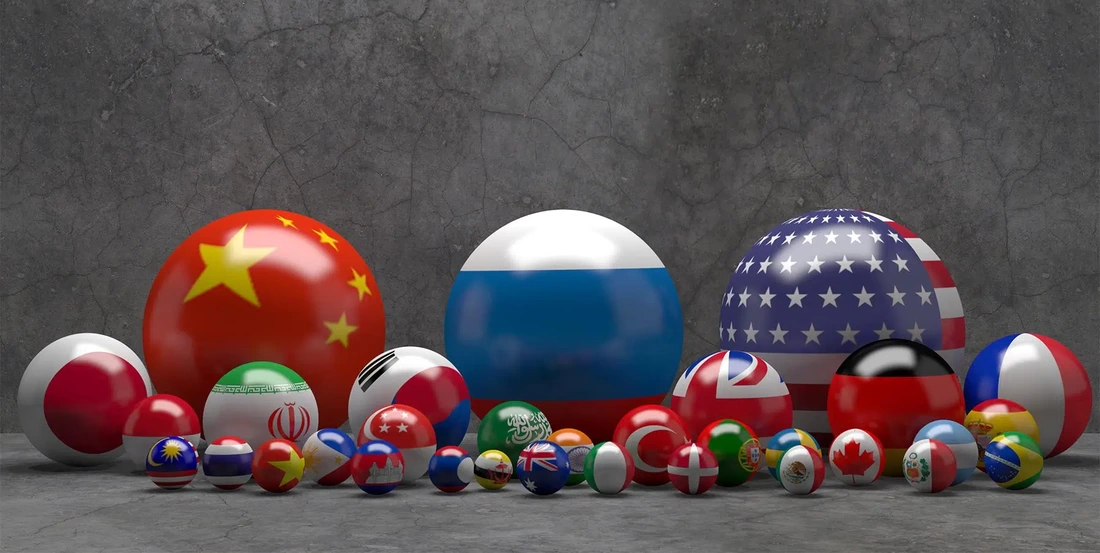

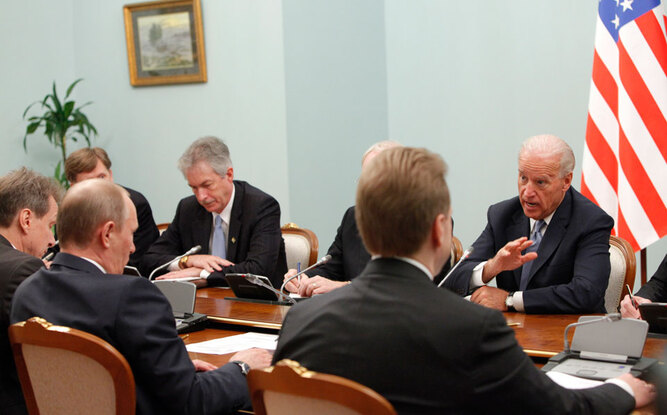
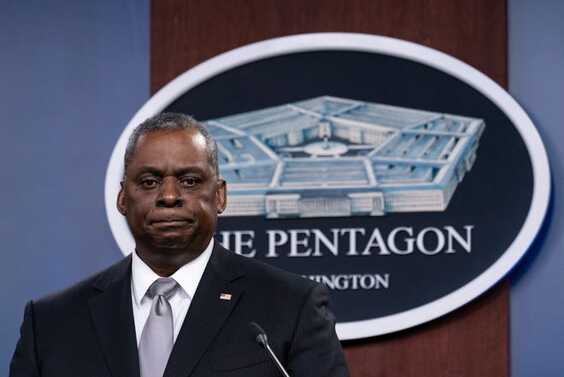
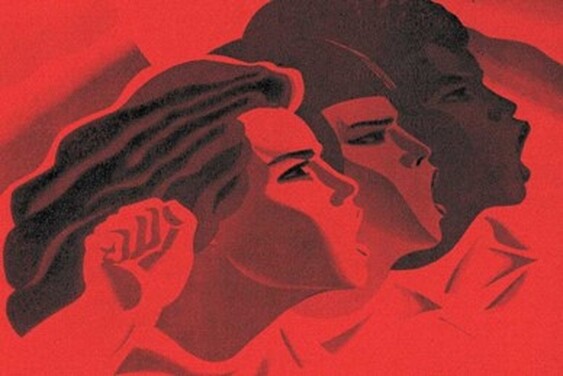
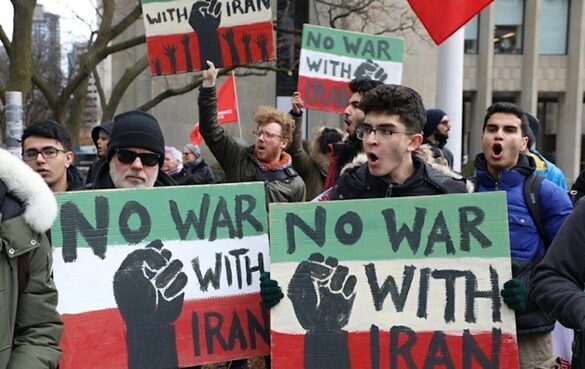
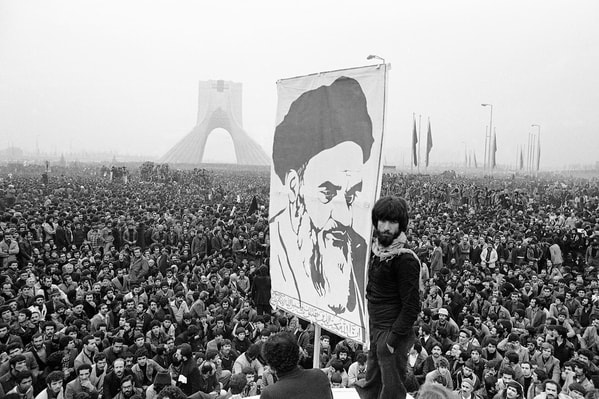
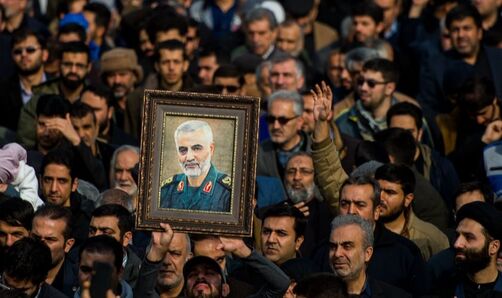

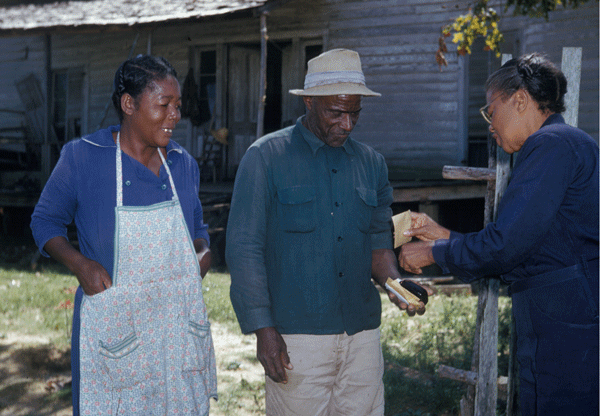

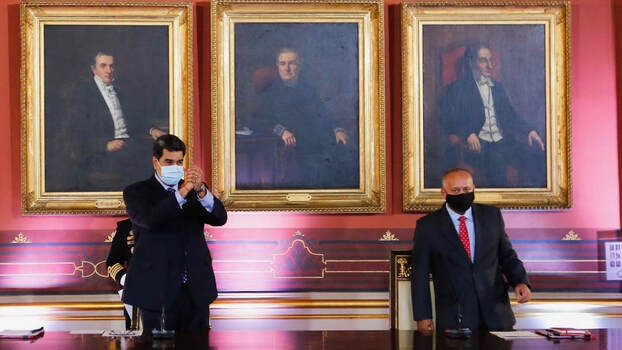
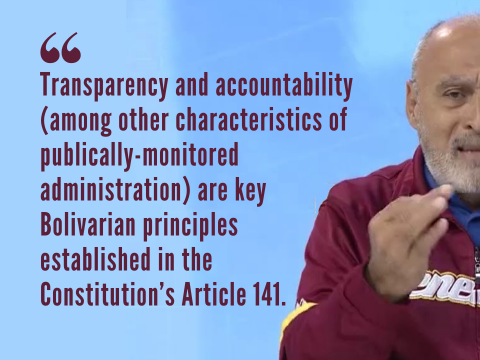

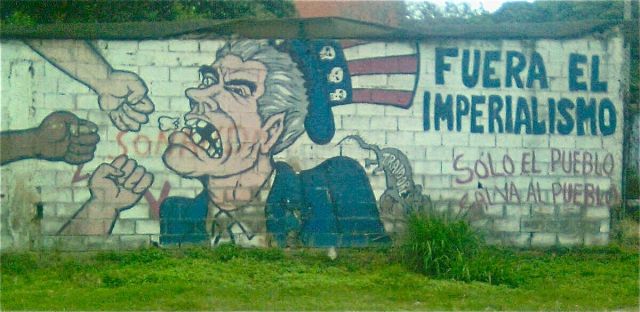
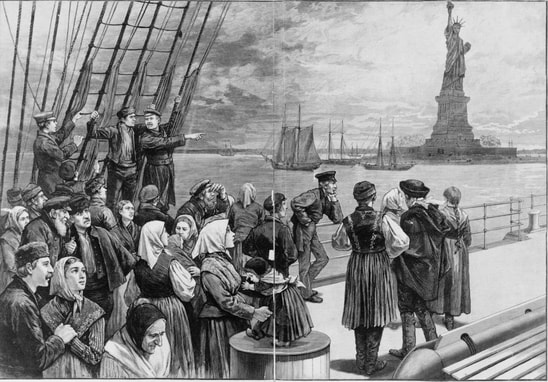
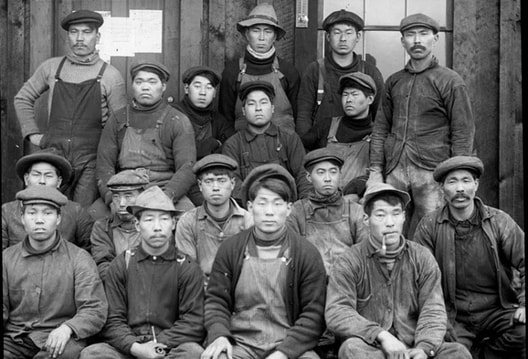
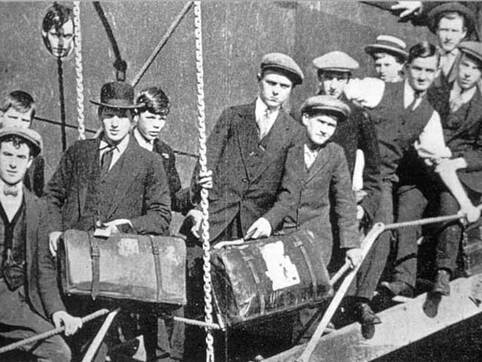
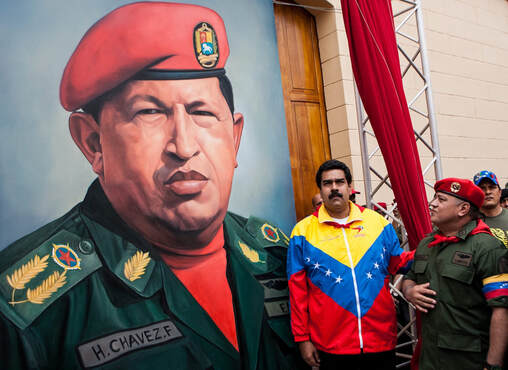
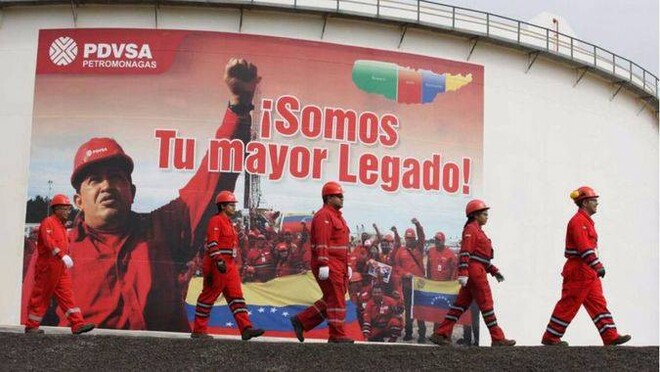
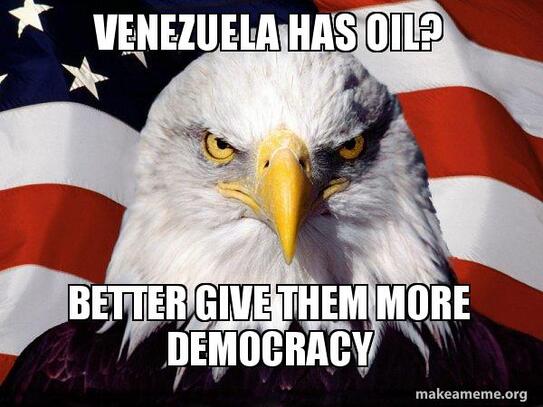
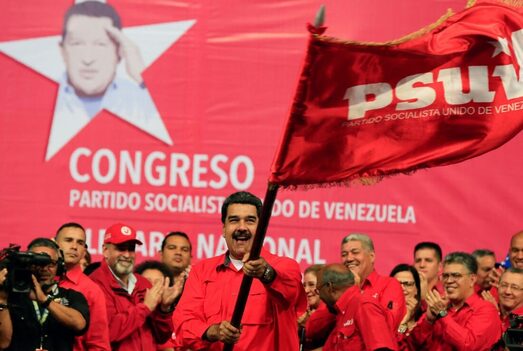
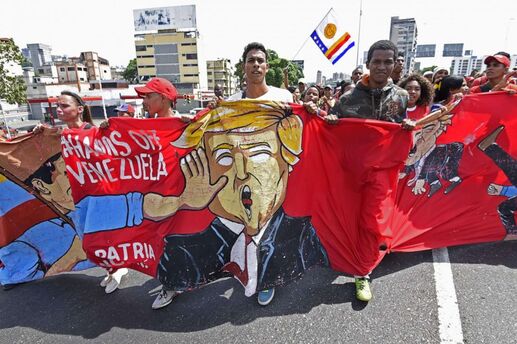
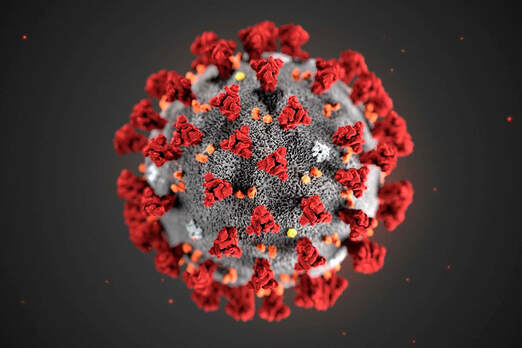
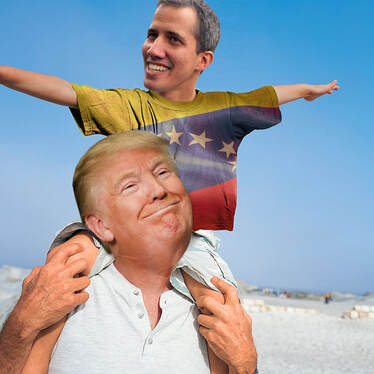
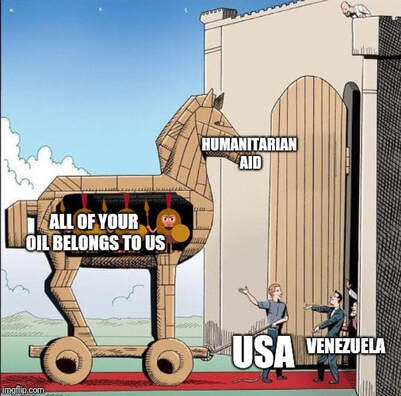
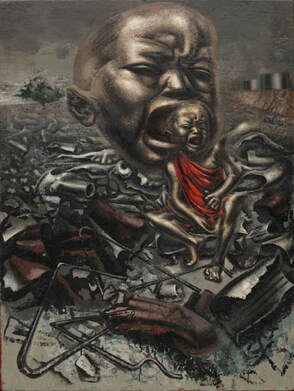
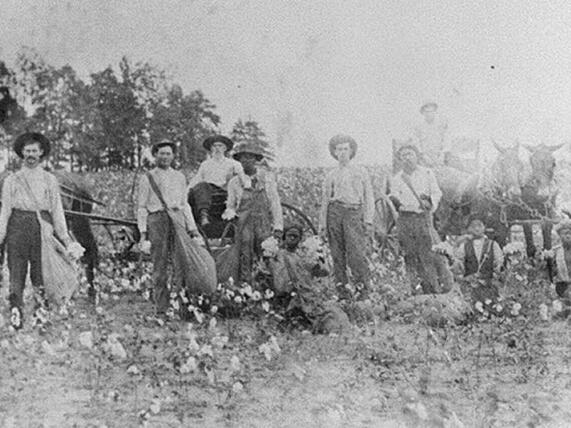
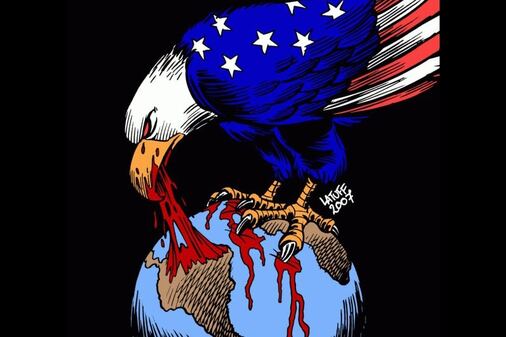
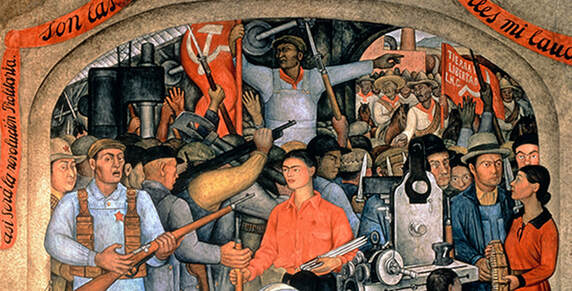
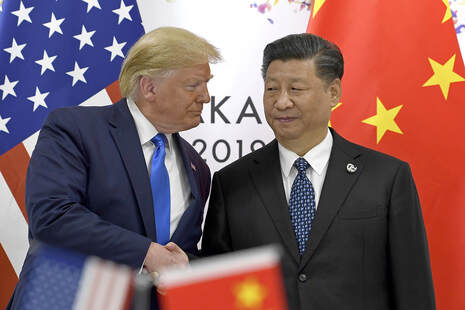
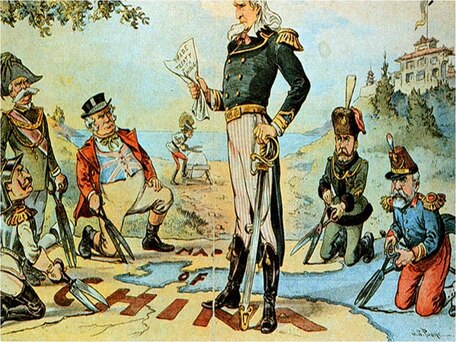
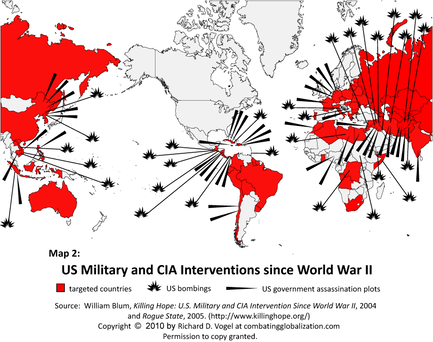
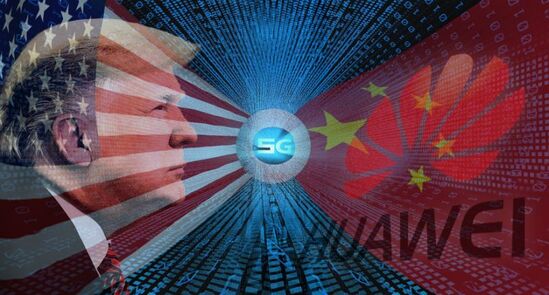
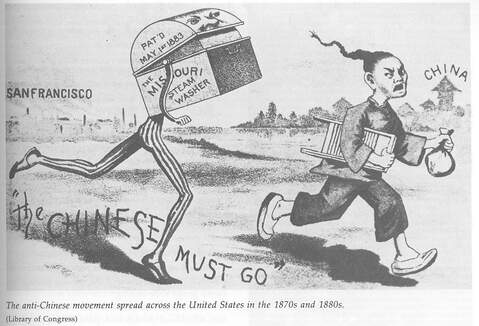
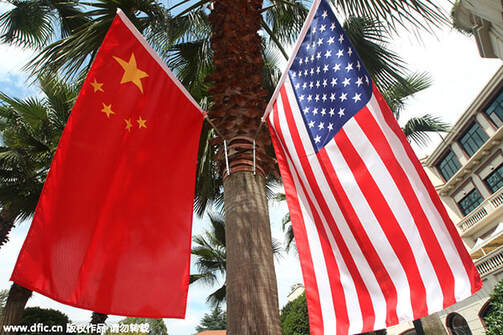
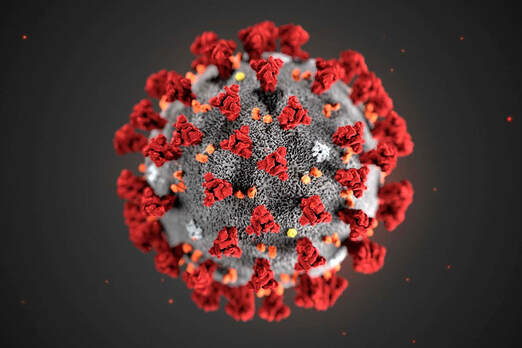
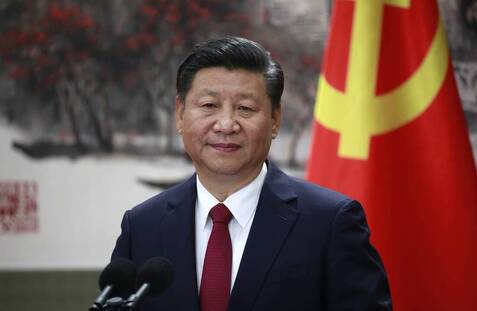
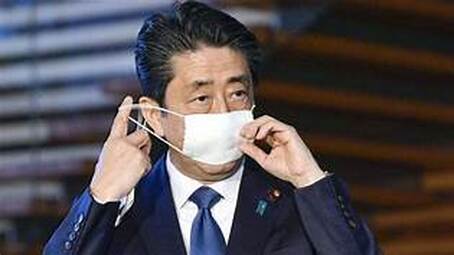
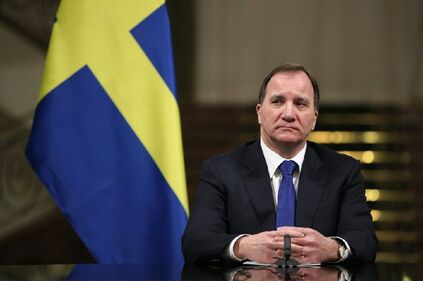
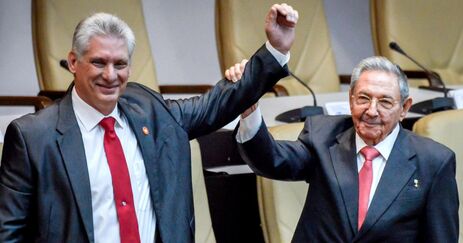
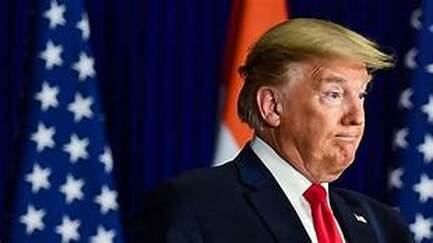
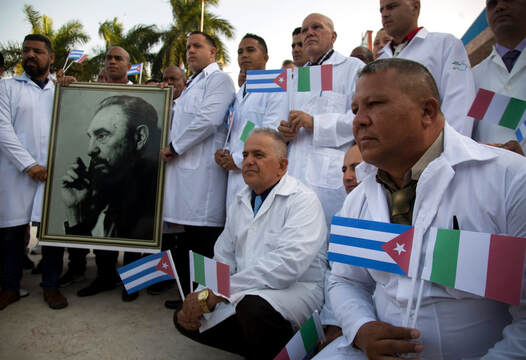
 RSS Feed
RSS Feed